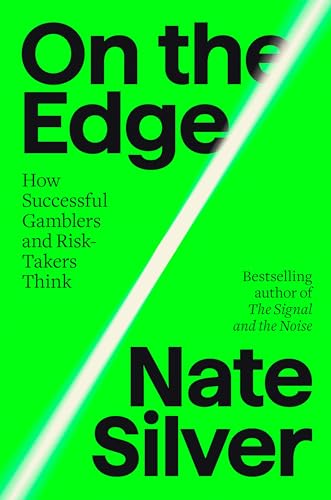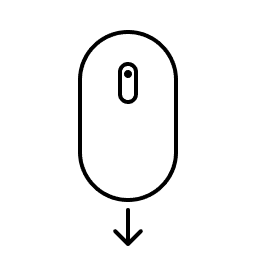Snippets about: Psychology
Scroll left and right !
Our Cognitive Biases Warp How We See Our Social Standing
"When we perform a task in front of others, we believe we're being judged far more harshly than we are. We also think people take single moments of our lives and make sweeping generalizations.
...
We're laughably wrong. The scientists found that most people aren't all that judgmental and quickly forget single errors. But because we overblow the implications of every social move we make—because we believe that everyone cares so deeply about our every public action—it causes us anxiety and stress."
Section: 1, Chapter: 7
Book: Scarcity Brain
Author: Michael Easter
Empathy Makes Us Tribal, Not Impartial
"Empathy is a spotlight focusing on certain people in the here and now. This makes us care more about them, but it leaves us insensitive to the long-term consequences of our acts and blind as well to the suffering of those we do not or cannot empathize with. Empathy is biased, pushing us in the direction of parochialism and racism."
"You cannot empathize with more than one or two people at a time. Try it." - Paul Bloom, The Case Against Empathy
Section: 3, Chapter: 8
Book: Bad Therapy
Author: Abigail Shrier
How "Problem Creep" Makes Solving One Issue Lead To Finding More
Psychologist David Levari conducted studies showing that when problems become rarer, we expand our definition of a "problem" to still find new ones. In one study, as threatening faces became less frequent, participants started deeming neutral faces as threatening. In another, as unethical research proposals became fewer, ambiguous proposals started seeming unethical.
This "prevalence-induced concept change" or "problem creep" happens unconsciously. As we experience fewer problems, we don't become more satisfied - we just move the goalposts. What used to be acceptable is now problematic. The same goes for comfort - as we get used to new comforts, our old comforts become unacceptable. Stairs were once a marvel, but now we need escalators. The problem creep phenomenon means solving issues doesn't necessarily make us happier, we just find new "problems."
Section: 1, Chapter: 4
Book: The Comfort Crisis
Author: Michael Easter
Information Asymmetry Exploited By Real Estate Agents
The authors argue that real estate agents utilize a similar information asymmetry as the KKK to further their own interests at the expense of their clients. An analysis of over 100,000 home sales in suburban Chicago showed that when real estate agents sell their own homes, they keep them on the market an average of 10 days longer and sell them for 3% more than comparable homes owned by their clients.
This is because agents have a strong informational advantage over their clients on market conditions, buyer interest, etc. But they only capture a small portion of incremental profits from a higher price on a client's home, so they have the incentive to sell it quicker even if that means a lower price. This is a prime example of an expert exploiting an information imbalance for personal gain.
Section: 1, Chapter: 2
Book: Freakonomics
Author: Steven D. Levitt, Stephen J. Dubner
Stereotype Threat
The book explores the concept of stereotype threat, where awareness of negative stereotypes associated with one's social identity can negatively impact performance and behavior. For example, women performing math tests under stereotype threat (aware of the stereotype that men are better at math) may experience anxiety and perform worse due to the added pressure and distraction.
Section: 4, Chapter: 6
Book: Supercommunicators
Author: Charles Duhigg
Sunk Costs
"Sunk Costs - Anchoring Decisions To Past Efforts That Can't Be Refunded - Are A Devil In A World Where People Change Over Time"
The sunk cost fallacy is powerful. We tend to stick with jobs, investments, and relationships because of how much we've already put into them. We're anchored to past commitments.
But when the world changes, you have to be willing to change too. Economies evolve, values shift, and people grow in unforeseen ways. Embracing the idea that sunk costs should often be abandoned and that you'll change in unforeseeable ways is an important part of navigating life.
Section: 1, Chapter: 14
Book: The Psychology of Money
Author: Morgan Housel
The Sneetches And The Desire To Belong
Dr. Seuss's story The Sneetches is a perfect example of our human need to belong. The Sneetches are divided into two groups - those with stars on their bellies and those without. The ones without stars desperately want to fit in with the "in" crowd. So when the opportunity arises to get stars put on their bellies, they jump at the chance - no matter the cost.
As humans, we have an innate desire to belong to a group that shares our values and beliefs. We seek out products, people and organizations that we perceive as being like us. The feeling of "belonging" that comes from these choices provides an intangible value far beyond features and benefits.
Great companies communicate a clear WHY that attracts customers, employees and investors who believe what they believe. These organizations don't just offer value - they represent values. They provide a way for people to signal to the outside world what they believe, through the products they buy or where they choose to work.
Section: 3, Chapter: 6
Book: Start with Why
Author: Simon Sinek
The Fundamental Attribution Error
We tend to believe that people's actions are a result of their innate character. Good people do good things, bad people do bad things.
But the Power of Context shows that people are actually powerfully influenced by their environment. The same person may act very differently depending on the situation.
Stanford psychologists found that normal, psychologically healthy students began acting sadistically when placed in a prison-like environment. And seminary students, when told they were late, failed to help a man in distress - contradicting their stated values.
"The convictions of your heart and the actual contents of your thoughts are less important, in the end, in guiding your actions than the immediate context of your behavior."
Character isn't static - it's flexible and responsive to circumstances. That means an epidemic can be tipped by small but critical changes in a situation.
Section: 1, Chapter: 4
Book: The Tipping Point
Author: Malcolm Gladwell
Your Brain Is Designed To Resist What You Really Want
When we achieve something we deeply desire, our brains don't allow us to simply relax and enjoy it. Research on dopamine reveals it's not the chemical that gives pleasure; it's the chemical that creates the pleasure of wanting more. This creates a cycle where achieving goals only makes us hungrier for the next thing.
This neurological pattern leads to self-sabotage in three key ways:
- When something matters deeply to us, we become hypersensitive to failure, causing us to resist the necessary work
- After going without something we want, we create negative associations with having it to justify our position
- When we finally get what we want, we fear losing it so much that we push it away
We get stuck in a state of "wanting" and struggle to transition to a state of "having."
Section: 1, Chapter: 4
Book: The Mountain Is You
Author: Brianna Wiest
Celebristan vs Freshmanistan - The Two Worlds Of Mimetic Desire
There are two kinds of models that affect our desires differently:
- People in Celebristan are models separated from us by time, space, money or status. There's little chance of directly competing with them (e.g. celebrities, the ultra-wealthy, the dead). We imitate them openly as their desires don't threaten ours.
- People in Freshmanistan are models in our immediate social world with whom we can compete directly (e.g. classmates, colleagues, neighbors). Rivalry is common as even minor differences get magnified. We have to secretly wonder at these models as openly imitating them would be embarrassing. In today's world of social media and diminished hierarchies, most of us live in Freshmanistan, vulnerable to the distortions mimetic desire causes there.
Section: 1, Chapter: 2
Book: Wanting
Author: Luke Burgis
The Two-Tiered Brain And Unconscious Visual Processing
Chapter 2 dives into how vision works as an example of the two-tiered conscious and unconscious processing in the brain. Much of the hard work of vision - like compensating for blind spots, saccades, and poor peripheral vision - happens automatically and unconsciously.
Conscious vision is more of a constructed model than a direct perception of reality. Studies of blindsight patients show visual processing can occur even when conscious awareness of vision is lost.
Section: 1, Chapter: 2
Book: Subliminal
Author: Leonard Mlodinow
Spot And Label Thought Biases
We all experience thought biases, especially when mood is low, that negatively color our perspective. Some common ones include mind reading (assuming you know what others think), overgeneralization (applying one negative event to everything), emotional reasoning (I feel it so it must be true), and all-or-nothing thinking.
Strategies to counter biased thoughts:
- Recognize thoughts are not facts but one possible interpretation
- Get in the habit of noticing and labeling biases when they occur
- Consider alternative perspectives by talking to others
- Practice mindfulness to step back and observe thoughts without judgement
Naming thought distortions helps you gain distance from them so they have less power over your emotions. You can't control what thoughts pop up, but you can change your relationship to them.
Section: 1, Chapter: 2
Book: Why Has Nobody Told Me This Before?
Author: Julie Smith
Why ADHD Shouldn't Be Considered A Disorder
Israeli psychologist Yaakov Ophir argues that ADHD fails to meet the medical criteria for a mental disorder:
- It's not "deviant." With up to 20% of children diagnosed, ADHD is too prevalent to be abnormal.
- It doesn't cause the child distress, only potential issues in certain environments.
- It doesn't prevent basic functioning and self-care.
- ADHD traits pose no inherent danger, and may even be advantageous in some contexts.
By definition, a mental disorder interferes with life activities across settings. Ophir contends that ADHD is better understood as a common set of traits that can be channeled positively with the right parenting and accommodations. Labeling it an illness requiring medication may do more harm than good.
Section: 2, Chapter: 10
Book: Bad Therapy
Author: Abigail Shrier
The Mind Is Divided Into Separate Parts That Often Conflict
Haidt explains that the human mind is divided in many ways that can lead to internal conflicts. The main division discussed is between the conscious/reasoned processes and the automatic/implicit processes. He uses the metaphor of a rider (controlled processes) on an elephant (automatic processes) to illustrate that the rider often struggles to control the much larger and more powerful elephant. While the rider can try to guide the elephant, ultimately the elephant determines most of our behavior.
Section: 1, Chapter: 1
Book: The Happiness Hypothesis
Author: Jonathan Haidt
Why Twentysomething Brains Go MIA
The twentysomething brain is still developing in a crucial area - the frontal lobe, responsible for decision making, planning, and controlling emotional impulses. This executive center doesn't fully mature until your late twenties/early thirties.
Meanwhile, the limbic system, controlling pleasure and reward, is in full force. Twentysomethings are wired to seek novelty and short-term gratification over long-term thinking. It's not lack of smarts but lack of perspective. With an imbalance between their "feeling brain" and "thinking brain", twentysomethings can neglect the future for the thrill of the moment.
Section: 3, Chapter: 11
Book: The Defining Decade
Author: Meg Jay
Broken Windows Theory: The Power Of Context
The Broken Windows theory argues that crime is the inevitable result of disorder:
- If a window is broken and left unrepaired, people conclude that no one cares and no one is in charge
- This sends a signal that anything goes and the sense of anarchy spreads
- Relatively minor problems like graffiti, public disorder, and panhandling are "small cracks" that invite more serious crimes
"The impetus to engage in a certain kind of behavior does not come from a certain kind of person but from a feature of the environment."
An epidemic can be tipped by tiny changes in context, in the same way that New York's crime epidemic tipped when the police began fixing "broken windows" like graffiti and fare-beating.
Section: 1, Chapter: 4
Book: The Tipping Point
Author: Malcolm Gladwell
Sunk-cost Fallacy Makes Us Cling To The Nonessential
Sunk-cost bias is the tendency to continue to invest time, money, or energy into something we know is a losing proposition simply because we have already incurred the cost that cannot be recouped. Examples include:
- Sitting through a bad movie because you've already paid for the ticket
- Continuing to pour money into a renovation project that's way over budget
- Staying in a job or career we're not passionate about because we've already invested so much time in it Essentialists avoid the sunk-cost trap by:
- Admitting when they've made a mistake and cutting their losses
- Setting a stopping point in advance for when they will pull the plug on something that isn't working
- Focusing on opportunity cost - what they could do with their time and energy if they walked away
Section: 3, Chapter: 12
Book: Essentialism
Author: Greg McKeown
Three Tactics To Deal With Mimetic Desire
- Name your models: Identify who your models are at work, home, and in life. Some are easy to name, like role models you admire. Others are harder, like rivals you secretly orbit around. Naming them gives you more control.
- Find sources of wisdom that withstand mimesis: In an age of overnight experts, carefully curate knowledge sources that are less subject to mimetic trends. Look for wise sources that have stood the test of time rather than crowd-anointed gurus.
- Create boundaries with unhealthy models: Distance yourself from models that bring out unhealthy mimetic desires and rivalry in you. Unfollow them on social media, don't ask about them, and create space to starve the toxic relationship.
Section: 1, Chapter: 1
Book: Wanting
Author: Luke Burgis
Kayaks And Superyachts
There are two approaches to life, represented by kayaks and superyachts:
The kayak: To be human is to occupy a little one-person kayak, borne along on the river of time. You're at the mercy of the current, able only to steer as best you can and react to whatever arises moment to moment.
The superyacht: Most of us prefer to feel like captains of superyachts, in control, programming our desired route, then watching it unfold from the comfort of a plush chair.
The desire for the superyacht experience leads us to create systems for self-improvement rather than simply doing meaningful things today. But the challenge is to recognize we're always in the kayak, never the superyacht - and to do something worthwhile anyway.
Section: 1, Chapter: 2
Book: Meditations for Mortals
Author: Oliver Burkeman
We Form Abstract Beliefs In A Flawed Way
Duke cites research showing that we form abstract beliefs in a backwards way - we hear something, assume it's true, and only sometimes get around to vetting it later, if at all.
Experiments found that even when questionable information was clearly labeled as false, people still tended to process it as true, especially when under time pressure. Our brains evolved to assume things we hear are true because doubting everything would be cognitively inefficient. But this means many of our beliefs about the world are not properly vetted. Even when presented with contradictory evidence, we often still cling to existing beliefs.
Section: 1, Chapter: 2
Book: Thinking in Bets
Author: Annie Duke
The Sins Of Intermediation
Social media's industrial-scale moderation programs reveal the platforms' inability to manage the content they distribute. Despite employing thousands of content reviewers who follow elaborate rulebooks detailing acceptable content ("crushed heads" allowed, "internal organs" banned), platforms continue to spread harmful material.
This moderation crisis exposes the fundamental paradox of social media: the systems promote disturbing content because people are drawn to it, then struggle to contain what they've amplified. Moderators, reviewing thousands of disturbing posts daily, often suffer psychological damage—one compared herself to a "sin eater," a pauper paid to absorb the sins of the deceased.
By obscuring this process, platforms maintain their utopian self-image while privately interpreting the public interest according to profit motives.
Section: 1, Chapter: 3
Book: Superbloom
Author: Nicholas Carr
The Fleeting Nature Of Working Memory
Chapter 3 covers working memory - the temporary, limited memory store for the present moment.
- Working memory only holds what you're paying attention to right now, for about 15-30 seconds. It's constantly updated as events unfold moment to moment.
- Visual working memory is like a "mental scratchpad" and auditory working memory is like a brief "mental soundtrack" or "echo".
- Working memory has a small capacity, able to hold only about 7 ± 2 "chunks" of information at a time. Chunking information into meaningful units can expand how much you can fit in working memory.
- Important information can be plucked from working memory and consolidated into long-term memory via the hippocampus if it captures your attention. The rest is quickly forgotten as working memory updates.
Section: 1, Chapter: 3
Book: Remember
Author: Lisa Genova
Consciousness Is Subjective Experience
At the heart of the mind-body problem lies the mystery of consciousness itself. Philosopher Thomas Nagel defined consciousness as essentially subjective experience - there is "something that it is like" to be a conscious creature.
Consciousness cannot be an illusion, because the very fact that things seem a certain way is what consciousness is in the first place. Even a brain in a vat having delusions is conscious simply by virtue of having experience at all. Consciousness, in this sense, is the one thing in this universe that cannot be an illusion.
Section: 1, Chapter: 2
Book: Waking Up
Author: Sam Harris
Gambling With The House's Money
When gamblers are ahead in a gambling session, they often take bigger risks than they would otherwise. It's as if they consider the winnings to be "the house's money," not their own, so they're more willing to risk it.
Conversely, when gamblers are in the hole, they tend to chase their losses with bigger bets, hoping to break even again. They become risk-seeking rather than risk-averse in the domain of losses.
Thaler observed both of these tendencies in his own regular poker games with friends. When players were ahead for the session, they played looser and more aggressively. When they were behind, they would often take big risks in hopes of getting back to even. The math of poker suggests neither approach is ideal - your overall wealth should determine your risk tolerance, not your results in one session. But these deep psychological tendencies are hard to overcome.
Section: 2, Chapter: 10
Book: Misbehaving
Author: Richard Thaler
Emotions Are More Than Just Conscious Feelings
Chapter 9 presents a "dual-process" theory of emotion. Our emotional experiences arise from two parallel brain systems:
- Conscious feelings, thoughts and perceptions
- Unconscious physiological arousal, like a racing heart or sweaty palms
Our mind integrates both streams of data, along with the surrounding context, to construct an overall emotional state. But we don't have direct conscious access to the causes of our physiological arousal.
This means the same state of arousal can be interpreted as different emotions depending on the situation and our beliefs. It also means our conscious reasons for our feelings are often post-hoc rationalizations rather than accurate insights.
Section: 2, Chapter: 9
Book: Subliminal
Author: Leonard Mlodinow
Heuristics: Shortcuts that Guide Our Decisions
When faced with difficult questions, System 1 often employs heuristics, mental shortcuts that provide quick and efficient answers.
Substitution: If a direct answer is not readily available, System 1 substitutes an easier, related question. For instance, when asked about our overall life satisfaction, we might answer based on our current mood.
The Affect Heuristic: Our emotions and feelings of like or dislike often guide our judgments and decisions, leading to biases and inconsistencies.
Representativeness: We judge the probability of something belonging to a category based on how well it matches the typical features of that category, often neglecting base-rate information.
Availability: We estimate the frequency or likelihood of events based on how easily we can recall or imagine similar events.
While heuristics can be useful in many situations, it's important to be aware of their limitations and potential biases. By understanding how heuristics work, we can improve our decision-making and avoid common errors in judgment.
Section: 1, Chapter: 9
Book: Thinking, Fast and Slow
Author: Daniel Kahneman
Positive Illusions About The Self Have Benefits
Having an overly positive self-view isn't necessarily maladaptive or delusional - it confers a number of psychological benefits. People with higher self-esteem, even if partially inflated, tend to be happier, healthier, more socially successful and more resilient in the face of stress and adversity.
Maintain a hopeful growth mindset about your abilities rather than a defeatist fixed one. At the same time, try to keep your self-serving biases in check by soliciting honest feedback from trusted others and checking your intuitions against real-world results. Strike a balance between self-confidence and self-honesty for optimal growth.
Section: 2, Chapter: 10
Book: Subliminal
Author: Leonard Mlodinow
How Modules Manipulate Feelings To Gain Control
Competing mental modules may vie for control of consciousness by manipulating our affective states. For example:
- A module oriented towards short-term mating may active feelings of attraction and fantasies of sexual pleasure to motivate pursuit of a potential mate.
- A module focused on social status may generate feelings of self-satisfaction after a "win" or envy and resentment towards rivals.
- A module for avoiding pathogens may create feelings of disgust towards things that could carry disease.
We may not be consciously aware of this competition, but subtle shifts in feeling guide which modules are steering our thoughts and behaviors at any given time. Gaining insight into these dynamics is a key goal of mindfulness meditation in a Buddhist context.
Section: 1, Chapter: 7
Book: Why Buddhism Is True
Author: Robert Wright
Grit Grows With Age And Life Experience
Grit tends to increase with age, especially from the 20s to the 40s. Data from the author's Grit Scale shows a positive correlation between age and grit.
Longitudinal studies show that people tend to become more conscientious, confident, caring, and emotionally stable with age and life experience - a pattern known as the "maturity principle" in psychology.
The same may be true for grit. Experience teaches us life lessons and builds the psychological resources needed for long-term perseverance.
Anecdotally, many grit paragons describe developing determination, resilience, and a sense of purpose over time, not being born with those traits.
Section: 1, Chapter: 5
Book: Grit
Author: Angela Duckworth
Positive Psychology Is Reviving The Ancient Emphasis On Virtue
Haidt discusses how the positive psychology movement, pioneered by Martin Seligman, is reviving some ancient wisdom about happiness and virtue.
Positive psychology focuses on identifying and cultivating individual and societal strengths and virtues, not just treating disorder and dysfunction.
Seligman and Peterson developed a framework of 6 core virtues and 24 specific character strengths, drawing on both ancient philosophies and modern psychological research. The framework provides a way for people to identify their signature strengths and organize their lives around them. Exercising one's strengths is inherently rewarding and contributes to a sense of meaning and engagement.
Section: 1, Chapter: 8
Book: The Happiness Hypothesis
Author: Jonathan Haidt
Recognizing And Resisting Confirmation Bias
Be aware of confirmation bias – the tendency to seek out and focus on information that confirms one's preexisting beliefs while dismissing contradictory evidence. In cults, this cognitive bias allows followers to:
- Excuse the leader's inconsistent or erratic behavior
- Rationalize hypocrisy as the leader operating on a higher plane
- Ignore personal doubts about the group's practices
- Dismiss criticism from concerned outsiders
To combat confirmation bias, actively seek out information that challenges your beliefs and surround yourself with people who are willing to point out potential issues. Trust your instincts if something feels wrong, even if you can't fully articulate why.
Section: 1, Chapter: 5
Book: Cultish
Author: Amanda Montell
The Power of Sensation Transference
Gladwell introduces the concept of "sensation transference," developed by marketing expert Louis Cheskin. This principle states that people unconsciously transfer sensations or impressions from the packaging of a product to the product itself.
Examples of sensation transference:
- Changing margarine's color to yellow made it taste more like butter to consumers
- The weight and sound of a car door closing influences perceptions of the car's quality
- The packaging of a product can significantly affect taste perceptions
Section: 1, Chapter: 5
Book: Blink
Author: Malcolm Gladwell
The Limbic Brain - The Powerful "Feeling" Part Of Our Brain
The limbic brain is the middle section of our brain responsible for all our feelings, like trust and loyalty. It's also responsible for all human behavior and decision making. However, the limbic brain has no capacity for language.
When people make decisions, they rely on their limbic brain much more than the rational neo-cortex. That's why we struggle to put our feelings into words - the part of the brain that controls language is separate from the part that controls behavior.
So when a company communicates from the outside-in, starting with WHAT, they appeal only to the rational neo-cortex. But when a company starts with WHY, they talk directly to the limbic brain that controls decision making. Even if a person can't put their feelings into words, they will still "feel" right about a decision that aligns with their WHY.
Section: 1, Chapter: 4
Book: Start with Why
Author: Simon Sinek
The Science Of Disruption
Disruptions are fundamentally different from everyday surprises. The Latin root disruptus means "to separate forcibly, to break apart"—creating a jarring gap between expectations and reality that feels painful because it forces adaptation.
The stress caused by disruptions varies based on how much they compel change. Even positive events like weddings can be disruptive because they dramatically alter routines. When disruptions interfere with important projects, they feel like direct attacks on our identity and place in the world.
Research shows these effects can be profound: disruptive life events are associated with both anxiety and depression, with a growing number of psychologists believing they play a more significant role in mental illness development than genetics.
Ancient wisdom traditions have long advocated healthy forms of letting go. Buddhism teaches that suffering arises from attachment to desires, including the desire for control. Taoism promotes wu wei (effortless action), while Hindu philosophy values vairagya (detachment for tranquility). Modern research confirms these approaches, showing that constantly fighting life's challenges leads to chronic stress, while the ability to fluidly adapt to change is a hallmark of psychological well-being.
Section: 3, Chapter: 9
Book: Tiny Experiments
Author: Anne-Laure Le Cunff
The Implicit Association Test Reveals Hidden Biases
The Implicit Association Test (IAT) is a tool used by psychologists to measure unconscious attitudes and beliefs. It works by measuring how quickly and accurately people categorize words and images that fit or defy stereotypes. For instance, an IAT on gender and career might ask people to rapidly sort words like "male," "female," "executive," and "homemaker."
Most people are faster and make fewer errors when the pairings fit stereotypes (e.g. male/executive) versus when they are mismatched (e.g. female/executive). This occurs even for people who consciously espouse egalitarian views. The IAT reveals the pervasiveness of unconscious biases.
Section: 2, Chapter: 7
Book: Subliminal
Author: Leonard Mlodinow
Toxic Positivity And The Tyranny Of Trying Again
Well-meaning messages meant to comfort loss parents often reinforce harmful narratives:
- Everything happens for a reason
- God has a plan
- At least you know you can get pregnant
- You can always have another/adopt
- Stay positive and try again
The "try, try again" ethos reflects American ideals of rugged individualism and optimism at all costs. We're uncomfortable with "unproductive" pain. But grief is not a problem to solve. Continuing to carry a pregnancy after loss is not morally superior to taking time to heal or closing the door on parenthood. All are valid paths.
Section: 4, Chapter: 13
Book: I'm Sorry for My Loss
Author: Rebecca Little, Colleen Long
The Partiality of Court Judges
Gladwell cites a striking study by economist Sendhil Mullainathan comparing the bail decisions made by experienced judges to a basic computer algorithm. The algorithm only considered the defendant's age and criminal record, while the judges met the defendants face-to-face and could evaluate their character and credibility. Yet the algorithm dramatically outperformed the judges:
"The people on the computer's list were 25 percent less likely to commit a crime while awaiting trial than the 400,000 people released by the judges of New York City. 25 percent! In the bake-off, machine destroyed man."
With just a fraction of the information available to judges, the simple algorithm made far more accurate judgments about which defendants could be safely released. The study highlights the limits of relying on intuitive character judgments from in-person interactions.
Section: 1, Chapter: 2
Book: Talking to Strangers
Author: Malcolm Gladwell
Negativity Bias In Dating
Our brains are wired to focus on the negative for survival. In dating, that means after a pleasant date with a perfectly lovely person, we somehow fixate on their minor "flaws".
Meanwhile, we neglect positive traits like their quick wit, soothing voice, or attentive listening, which are more relevant to long-term happiness. We also fall victim to the Fundamental Attribution Error: we assume someone's actions reflect their character rather than circumstances. If they're 10 minutes late, we assume they're selfish, not stuck in traffic.
To counteract the negativity bias, purposefully look for positives, question your assumptions, and focus on how they made you feel overall.
Section: 2, Chapter: 12
Book: How to Not Die Alone
Author: Logan Ury
The Milgram Experiment Shows How Readily People Follow New Authority
Lesson 1: Do not obey in advance: Don't voluntarily conform to a new authoritarian system before it fully takes hold.
The famous Milgram experiment at Yale in 1961 showed how quickly people will follow the commands of an authority figure, even if it means harming others. Subjects were told to administer shocks to unseen participants, and most continued to do so even when the person seemed to be in agony or dying, simply because the experimenter told them to continue. This reveals how people adapt to new authority, a key ingredient in the transition to tyranny.
Section: 1, Chapter: 1
Book: On Tyranny
Author: Timothy Snyder
The Tragic Tale of Kitty Genovese
In 1964, Kitty Genovese was brutally attacked and murdered while 38 witnesses heard her cries - but not one intervened or even called the police. This infamous case highlighted the "bystander effect."
- Cialdini explains this inaction as partly a failure of social proof under uncertainty
- With many bystanders, each individual looks to see how others are reacting
- Seeing everyone else's apparent passivity, they conclude the situation must not actually be an emergency
- Pluralistic ignorance snowballs and no one acts
- This explains the bystander effect better than the common "apathy" explanation
Section: 1, Chapter: 4
Book: Influence
Author: Robert Cialdini
The Scarcity Loop: A Powerful Behavior Pattern
The scarcity loop is a three-part system that powerfully drives behavior:
- Opportunity - An opportunity to get something of value that improves our life, but with risk of not getting it.
- Unpredictable Rewards - Not knowing when or how much of the reward we'll get, which excites the dopamine system and makes us crave it more.
- Quick Repeatability - The behavior can be repeated quickly in rapid succession, compelling more action.
The scarcity loop evolved to help our ancestors persist in finding scarce food and resources. But now it's being used in slot machines, social media, shopping, and more to drive counterproductive habits.
Section: 1, Chapter: 1
Book: Scarcity Brain
Author: Michael Easter
Mental Accounting
People often use mental budgets or "buckets" to constrain their spending - e.g., $200/month on dining out. But this heuristic can lead to irrational behavior.
In one study, subjects were told they were going to a play. Half were told they had recently spent $50 going to a basketball game (same bucket), while half were told they got a $50 parking ticket (different bucket). Subjects were then asked if they would still buy a ticket to the play.
Those who had gone to the game were less likely to buy play tickets, presumably because they felt they had already spent their entertainment budget for the month. But this makes no sense - the historical spending is a sunk cost and should be irrelevant to the play decision. Yet because it was categorized in the same mental bucket, it still affected their choice.
Section: 2, Chapter: 9
Book: Misbehaving
Author: Richard Thaler
Regression To The Mean
The phenomenon of regression to the mean explains why we often misinterpret the effects of rewards and punishments. When we observe an exceptional performance, which is likely due to a combination of skill and luck, we tend to reward the individual. However, on subsequent attempts, their performance is likely to regress back towards their average level, making it appear as if the reward has backfired. Conversely, when we observe an unusually poor performance, we tend to punish the individual, and their subsequent improvement due to regression to the mean makes it seem like the punishment was effective.
Section: 2, Chapter: 17
Book: Thinking, Fast and Slow
Author: Daniel Kahneman
What's The Word On The Tip Of My Tongue?
That frustrating feeling of blanking on a word or name you're sure you know is called a "tip of the tongue" (TOT) experience. It occurs when there's only partial activation between the concept you're searching for and it's name/label.
- It happens to all ages but increases after age 40 due to slower neural processing. TOT becomes more noticeable and worrisome to older adults.
- Proper names are the most common targets of TOT because, unless meaningful to you, they lack semantic associations in the brain (the "Baker/baker paradox")
- Cues like seeing/hearing the first letter or number of syllables sometimes slip through during TOT. An "ugly sister" - a similar-ish but wrong word - may also come to mind
Section: 2, Chapter: 8
Book: Remember
Author: Lisa Genova
Faulty Inferences Are Holding You Back
Highly intelligent people often struggle with anxiety because their ability to infer - to extract meaning from things others take at face value - can work against them. This leads to "faulty inferences" where incorrect assumptions are drawn from valid evidence.
Common types of faulty inferences include:
- Hasty generalization - making claims about an entire group based on limited experiences
- Post hoc ergo propter hoc - assuming that because two things happened around the same time, they must be related
- False dichotomy - assuming only two possibilities exist when there are many more
- Slippery slope - assuming one event will trigger a series of increasingly negative events
To overcome faulty inferencing, first become aware you're doing it. With consistent practice of adding new thoughts and possibilities, your brain will gradually reorient toward logical thinking rather than catastrophizing.
Section: 1, Chapter: 4
Book: The Mountain Is You
Author: Brianna Wiest
Unconscious Nonverbal Communication Reveals Our True Feelings
Chapter 5 is all about how we communicate nonverbally and the impact it has on our interactions. Facial expressions, gestures, posture, eye contact, vocal tones and more transmit a wealth of often unconscious information about our true feelings and intent.
We automatically assess people's warmth, competence, and trustworthiness within seconds based on these nonverbal cues. Politicians, actors and influencers who are adept at controlling their nonverbal signals have a powerful advantage in shaping how others perceive them. But for most of us, our nonverbal communication leaks out involuntarily, revealing feelings we may be unaware of or trying to conceal.
Section: 2, Chapter: 5
Book: Subliminal
Author: Leonard Mlodinow
The Bystander Effect: Why No One Helps In A Crisis
In 1964, Kitty Genovese was murdered on a New York street while 38 bystanders watched from their windows but did nothing. This led to a famous series of experiments revealing the Bystander Effect.
Psychologists discovered that a person's likelihood of helping in a crisis goes down as the number of bystanders goes up:
- In groups, responsibility is diffused and no one feels compelled to act
- People look to others' behavior to determine if a situation is really an emergency
- We assume others have already called for help or don't need our assistance
Ironically, a victim is more likely to get help if there is only one witness instead of a crowd. In groups, our normal social cues get overwhelmed by inertia and inaction.
The implication is that epidemics are sensitive to the smallest changes in social context and group dynamics. What seems like a minor tweak in the environment can dramatically shift behavior.
Section: 1, Chapter: 4
Book: The Tipping Point
Author: Malcolm Gladwell
Trauma Does Not Exist
Adlerian psychology rejects the Freudian notion of trauma. Trauma does not objectively exist as a causal factor in people's problems. Rather, people give meaning to past experiences in a way that suits their current purposes.
As the philosopher states: "Adler, in denial of the trauma argument, states the following: 'No experience is in itself a cause of our success or failure... We are not determined by our experiences, but the meaning we give them is self-determining.'"
People are not passively shaped by past experiences, but actively choose how to interpret and respond to them. T
Section: 1, Chapter: 3
Book: The Courage to Be Disliked
Author: Ichiro Kishimi and Fumitake Koga
Consciousness Is Like A Window And A Mirror
One can shift between two modes of viewing consciousness, just as one can shift perspectives on a window:
- The window can be looked through to view the world outside, in which case one doesn't notice the window itself.
- Or the window can reflect back one's own image, like a mirror, in which case one notices the window instead of the world.
Likewise, consciousness can either be filled with the outward-facing contents of experience, or attention can turn inward to recognize the mirror of awareness in which the contents appear. Glimpsing the inward-facing nature of mind is difficult because we are usually absorbed in the outward-facing flow of thought and perception.
Section: 1, Chapter: 3
Book: Waking Up
Author: Sam Harris
The Big Fish-Little Pond Effect
The Big Fish-Little Pond Effect refers to the fact that we form our self-concept not in absolute terms, but relative to our immediate peer group. In school, this means our self-image is shaped by how we rank compared to our classmates, not how we rank in ability nationally.
So a student with above-average intelligence can end up with a poor academic self-concept if they are placed in a gifted program where they are below-average compared to their peers. Meanwhile, a student of equal ability in a regular program will have a much more positive self-image.
This has major implications for academic effort, aspirations and career choice. Students are more likely to persevere in fields where their relative standing is high. Being a Big Fish in a Little Pond is often preferable to being a Little Fish in a Big Pond.
Section: 1, Chapter: 3
Book: David and Goliath
Author: Malcolm Gladwell
Five Motivational Patterns That Shape Our Desire
Based on thousands of Fulfillment Stories, Burgis and his colleagues identified 27 core motivational patterns. Here are 5 of the most common:
- Achieve Potential: Driven to identify and realize your own and others' potential. Always pushing to the next level.
- Compete: Relish head-to-head competition. Derive immense satisfaction from out-performing rivals.
- Comprehend & Express: Seek to deeply understand ideas and experiences, then express your insights creatively.
- Curate: Delight in collecting and arranging information, objects or experiences into meaningful patterns.
- Empower: Fulfilled by empowering people to learn, grow, and do their best. Enjoy teaching and mentoring.
Knowing your core motivational patterns is key to choosing roles and goals that align with your thick desires.
Section: 1, Chapter: 6
Book: Wanting
Author: Luke Burgis
Reward Sensitivity Explains Extroverted Risk-Taking
Extroverts are more likely than introverts to be reward-sensitive: they feel driven to pursue positive emotional experiences and social attention. This tendency is likely mediated by differences related to the neurotransmitter dopamine. Researchers believe extroverts either have more dopamine available or are more sensitive to its effects, which may explain why they are prone to seeking out more stimulation.
In many ways reward sensitivity is positive - it gives extroverts their energy, drive, and sociability. But it can also lead to trouble. Compared to introverts, extroverts are more likely to:
- Engage in risky behavior like gambling, unsafe sex, and breaking rules
- Ignore warning signals and plow ahead with bad plans
- Make impulsive decisions without considering long-term consequences
- Demonstrate overconfidence unmatched by actual ability
- Become easily bored and seek new thrills
Section: 2, Chapter: 7
Book: Quiet
Author: Susan Cain
The Stages Of Releasing The Past
You cannot force yourself to let go, no matter how much you know you want to. You start to let go when you build a new life so immersive and engaging and exciting, you slowly, over time, forget about the past.
Section: 1, Chapter: 5
Book: The Mountain Is You
Author: Brianna Wiest
Enduring Boredom While Hunting Leads To Insights On Attentional Capacity
The author realizes that thanks to smartphones and constant media, he almost never experiences true boredom anymore, and that his mind reflexively seeks distractions. Americans now spend 11 hours and 6 minutes per day on digital media.
But neuroscience shows that boredom serves a purpose - it shifts the brain into "default mode" where it can rest, wander, and subconsciously process information. The constant stimulation of modern life keeps us in an active attentional state, burning out our focus.
Allowing for boredom and lack of stimulation, ideally in natural settings, can calm an overactive mind, inspire creativity, and provide a sense of spaciousness lacking in modern life. Attention is a finite resource that requires periods of rest to function optimally.
Section: 1, Chapter: 11
Book: The Comfort Crisis
Author: Michael Easter
A Human Mind Is A Wandering Mind
"We spend our lives lost in thought. The question is, what should we make of this fact? In the West, the answer has been "Not much." In the East, especially in contemplative traditions like those of Buddhism, being distracted by thought is understood to be the very wellspring of human suffering."
Section: 1, Chapter: 1
Book: Waking Up
Author: Sam Harris
Understanding Your Triggers
"Our triggers do not actually exist just to show us where we are storing unresolved pain. In fact, they show us something much deeper."
Section: 1, Chapter: 3
Book: The Mountain Is You
Author: Brianna Wiest
AI Doesn't Act Like Normal Software
Unlike traditional software that behaves in rigid, predetermined ways, AI can be unpredictable, context-dependent, and opaque in its decision making. Crucially, state-of-the-art AI often behaves more like a person than a program.
Recent studies find that Large Language Models (LLMs) can engage in complex "human" behaviors like economic reasoning, moral judgments, and even cognitive biases. Prompting the GPT-3 model with a simple consumer survey yields shockingly human-like responses, as the AI weighs factors like brand and price just like a person would. The most effective mental model for collaborating with AI is to treat it like an "alien intelligence" - an entity that can engage in human-like back-and-forth, but with its own quirks and failure modes that need to be learned.
Section: 2, Chapter: 4
Book: Co-Intelligence
Author: Ethan Mollick
Imagined Details Feel Real
In one study, students were asked to predict how much they would enjoy a bicycle trip depending on various factors like weather, scenery, and breakfast options.
When asked to predict their enjoyment, the students automatically imagined details like cool sunny weather and a delicious breakfast. These imagined details led them to predict a very enjoyable trip.
In reality, the actual details of the trip would undoubtedly differ from what any one student specifically imagined. Their enjoyment would depend on the real details, not their imagined ones. But the imagined details felt real to them and heavily influenced their predictions.
Section: 3, Chapter: 4
Book: Stumbling on Happiness
Author: Daniel Gilbert
Two Modes Of Thinking: Focused And Diffuse
Our brain has two different modes of thinking: focused mode and diffuse mode. Focused mode involves concentrating intently on something, like a flashlight beam, while diffuse mode is more relaxed, allowing you to look at things broadly from different angles. Both modes are important for learning. Focused mode is essential for absorbing information by paying full attention. Diffuse mode allows your brain to subconsciously process what you've learned and make new creative connections. You can't be in both modes at the same time - it's like a pinball machine where the bumpers are close together for focused mode and spread apart for diffuse mode.
Section: 1, Chapter: 1
Book: A Mind for Numbers
Author: Barbara Oakley
Why Cities Make Us Lonely
Despite most modern people living in dense urban areas surrounded by other humans, nearly half of Americans report feeling lonely in what is being called a "loneliness epidemic." This is likely because cities violate our evolutionary preference for living in groups of around 150 people (Dunbar's Number) - the optimal community size that allowed us to thrive for most of human history.
But today a single city block can have thousands of people; human brains uneasy with population density that's too high. A lack of connection to people and place in cities breeds unhappiness
Rural, nature-connected people often report more life satisfaction In contrast, time in nature allows us to reset and experience the kind of intimate connections, sense of belonging, and timeless rhythms we evolved with.
Section: 1, Chapter: 8
Book: The Comfort Crisis
Author: Michael Easter
Narrow Framing on Upper East Side
Narrow framing is the tendency to evaluate risks in isolation rather than as part of an overall portfolio. This can lead to suboptimal decisions.
- Investors hold low-return bonds in taxable accounts while holding stocks in tax-free retirement accounts (the opposite of what tax efficiency dictates)
- Employees buy company stock in their 401(k), duplicating (rather than diversifying) risks from their human capital
- Casino gamblers bet more recklessly with winnings ("house money") than with money from their own pockets
Experiments on risky choice find that people make different decisions when choices are presented one at a time (narrow framing) vs. collectively. People will reject a single risky bet but accept a package of similar bets, even though the aggregate risks and returns may be equivalent.
Narrow framing can lead people to be risk averse in some contexts and risk seeking in others, deviating from global risk neutrality. It's a pervasive bias that influences many real-world choices, from casino floors to corporate boardrooms.
Section: 5, Chapter: 20
Book: Misbehaving
Author: Richard Thaler
Metacognition: The Forgotten Secret To Success
Metacognition—thinking about your thinking—is the crucial yet often neglected skill that transforms trial and error into genuine growth. While introspection simply involves noticing thoughts and emotions, metacognition adds an analytical layer, functioning like an inner coach who observes your performance and suggests better strategies.
This skill ensures your choices aren't made in a vacuum but in conversation with both your inner self and the wider world. It helps you:
• Parse what you've accomplished with clear eyes
• Assess what worked and what didn't
• Understand how you really feel about the experience
• Appreciate your current position and potential next steps
Our ancestors had natural pauses for metacognition built into their days—long walks, repetitive tasks like sewing, or evening reflection. In contrast, our constant flood of information leaves little space for thinking about thinking. Research shows that without metacognition, we often remain unaware of factors influencing our choices, making it difficult to improve through experience.
Barbara Oakley exemplifies the power of metacognition. Once math-averse, she developed strategic approaches to learning after joining the army and recognizing the importance of technical skills. Her metacognitive strategies—balancing intense concentration with mental relaxation—transformed her into an engineering professor whose course "Learning How to Learn" has reached millions worldwide.
Section: 3, Chapter: 7
Book: Tiny Experiments
Author: Anne-Laure Le Cunff
Individual Psychology Views People Holistically
Adlerian psychology, also known as "individual psychology," got its name because it views individuals holistically, not because it focuses on individuality in the sense of separateness or superiority. Adler objected to Freud's division of the mind into competing parts like the id, ego, and superego. He saw the mind as an integrated whole, with consciousness and unconsciousness on a continuum.
As the philosopher explains: "Adler was opposed to the idea of the unconscious as an entity that is separate from consciousness...The mind is not some kind of black box like the unconscious. The mind is a whole, and its processes are all interconnected."
Section: 4, Chapter: 33
Book: The Courage to Be Disliked
Author: Ichiro Kishimi and Fumitake Koga
Techniques For Retraining The Elephant To Be More Positive
Haidt describes three main methods for shifting one's automatic patterns of thinking in a more positive direction:
- Meditation - Practicing focused attention weakens attachments and provides distance from one's normal train of thought, allowing negative patterns to be recognized and disengaged from
- Cognitive therapy - Systematically catching, labelling and challenging negative thoughts and cognitive distortions to develop more balanced thinking habits
- Prozac - Medications that act directly on neurotransmitters like serotonin to alter automatic responses, especially when therapy alone is insufficient
Section: 1, Chapter: 2
Book: The Happiness Hypothesis
Author: Jonathan Haidt
Three Ways Mimetic Desire Distorts Reality In Freshmanistan
- The misappropriation of wonder: We exaggerate the qualities of models, gawking openly at Celebristan models but secretly amazed by Freshmanistan ones. Admiration morphs into metaphysical desire - a yearning for the model's entire way of being.
- The cult of experts: As traditional hierarchies fade in liquid modernity, we become model addicts relying on "experts" to mediate desires. Except expertise is often mimetically driven, valued because others value it.
- Reflexivity: Our perceptions change reality by altering how we act, in a self-fulfilling loop. In rivalries, each person's desires become coupled to the other's in a "two-way interaction", so neither can want something without affecting the other.
Section: 1, Chapter: 2
Book: Wanting
Author: Luke Burgis
The Internet Trains Our Brains For Shallow Information Processing
The internet is often heralded as a knowledge-seeker's paradise - an endless trove of facts, tutorials, and opinions to satisfy our every curiosity. But unfettered access to information isn't always helpful for true learning.
The end result is a "junk food" information diet that's momentarily satisfying but leaves us anxious - and still hungry for real insight. We must curate our "information nutrition" to feed our minds well.
Section: 1, Chapter: 9
Book: Scarcity Brain
Author: Michael Easter
Psychedelics Reveal Mind-Boggling Vistas Of Consciousness
Psychedelic drugs like LSD, psilocybin, and DMT can produce extraordinary states of consciousness that feel personally meaningful and spiritually significant. Users often report the following:
- Profound feelings of awe, sacredness, and gratitude
- Ego-dissolution and a sense of merging with the universe
- Vivid hallucinations of otherworldly landscapes and beings
- Deep psychological insights and a new perspective on life
- Experiences of seeming to transcend space and time
While they can occasion powerful mystical experiences, these experiences alone do not necessarily translate into long-term psychological benefits or spiritual maturity. Psychedelics can also be dangerous if used recklessly.
Section: 1, Chapter: 5
Book: Waking Up
Author: Sam Harris
Behavioral Economics Had A Slow Start
In the late 1970s, Richard Thaler was a young professor trying to apply psychology to economics, but with a hard time getting others to take his ideas seriously. A few key moments:
- On a drive to Stanford, he pondered how to convince skeptical economists that psychological factors really do affect economic decisions
- He discovered the work of Kahneman and Tversky on heuristics, biases and prospect theory, which provided an academic foundation for his ideas
- At Stanford, he met Baruch Fischhoff, Paul Slovic and others studying human judgment, further expanding his knowledge of relevant psychology
However, the economic establishment still viewed behavioral approaches as quirky at best and misguided at worst.
Section: 1, Chapter: 5
Book: Misbehaving
Author: Richard Thaler
The Unknown Third Giant
Alfred Adler was one of the three giants of 20th century psychology, along with Freud and Jung. However, Adler is much less well-known, despite being highly influential. Adler split from Freud's psychoanalytic society and developed his own school of "individual psychology." Adler's ideas were groundbreaking and ahead of his time. While not a strict scholar, Adler's insights into human nature provide a culmination of truths and understanding of the human condition.
Section: 1, Chapter: 1
Book: The Courage to Be Disliked
Author: Ichiro Kishimi and Fumitake Koga
Familiarity Breeds Contempt
Contrary to our intuitive belief that knowing more about others makes us like them more, research shows we typically like people less as we learn more about them. A series of experiments revealed that as the number of personality traits shared with participants increased, their liking for the described individual decreased.
This occurs through "dissimilarity cascades"—once we encounter a trait indicating someone is unlike us, differences become more salient than similarities. Social media supercharges this effect by providing unprecedented exposure to others' traits, habits, and opinions, triggering constant dissimilarity cascades and reinforcing antipathies.
This helps explain why greater connectivity hasn't produced greater harmony. By allowing everyone to see into everyone else's business all the time, social media has created a condition of pervasive "environmental spoiling," where even minor differences become sources of irritation and resentment.
Section: 2, Chapter: 5
Book: Superbloom
Author: Nicholas Carr
Emotions As Evolution's Way To Control Us
From an evolutionary perspective, emotions evolved as a way to motivate animals, including humans, to approach things that helped them survive and reproduce (food, mates) and avoid things that threatened survival (predators, toxins). Good and bad feelings are nature's carrot and stick to control behavior.
However, in modern environments, these once-adaptive emotional propensities can lead us astray. For example:
- Our natural desire for sugar and fat, adaptive in ancestral environments, now leads to obesity and health issues
- Anger, useful for deterring rivals and cheaters in small hunter-gatherer bands, is counterproductive in modern anonymous societies
- Anxiety, which helped keep us alert to threats, now often arises in situations where it serves no productive purpose
Buddhism argues that mindfulness can help us step back from unhelpful, conditioned emotional patterns and see them with more clarity and choice in whether to act on them.
Section: 1, Chapter: 3
Book: Why Buddhism Is True
Author: Robert Wright
True Healing Is Transformation, Not Recovery
Healing your mind is completely different from healing your body. Physical healing is often a linear repair, returning you to your previous state. Mental healing requires becoming someone entirely new.
Healing yourself means taking an honest inventory of your grudges, longings, and fears. It requires you to face every ounce of darkness within you, because just beneath what appears to be an impermeable barrier is complete freedom. When you're no longer scared to feel anything and no longer resist any part of your life, you find peace.
This process often requires periods of "positive disintegration" where we adapt our self-concept to become someone new who can thrive in our current situation. The discomfort is inevitable—you'll either feel uneasy pushing past limits or you'll feel it while sitting stagnant and afraid. Choose the discomfort that leads to growth.
Section: 1, Chapter: 5
Book: The Mountain Is You
Author: Brianna Wiest
The Power of Adaptation
One reason why the focusing illusion occurs is that we tend to adapt to our circumstances over time, both good and bad. As a result, the initial excitement or distress associated with a new situation gradually fades, and our attention shifts to other aspects of our lives.
For example, individuals who experience a significant life change, such as getting married or becoming paraplegic, may initially focus intensely on the change and its implications for their well-being. However, over time, they adapt to their new circumstances and their attention is drawn to other aspects of their lives.
This adaptation process can lead to a discrepancy between the remembering self's evaluation of a situation and the experiencing self's actual experience. For instance, individuals may recall a past experience as being more positive or negative than it actually was, simply because they are no longer as focused on that experience.
Section: 5, Chapter: 38
Book: Thinking, Fast and Slow
Author: Daniel Kahneman
Strategic Empathy Is Key To Success In Poker
One of the most important skills for top poker players is strategic empathy - the ability to put yourself in your opponent's shoes and understand how they perceive the game state. By paying attention to subtle physical tells, betting patterns, and emotional states, elite players like Vanessa Selbst and Maria Ho gain an edge by narrowing their opponent's range and finding exploitative plays. However, this is a skill that needs to be carefully honed and applied, as making hero calls or huge bluffs based on a hunch can be disastrous without hard evidence to support a read.
Section: 1, Chapter: 2
Book: On The Edge
Author: Nate Silver
"How Phineas Gage's Frontal Lobe Made Neuroscience History"
In 1848, Phineas Gage survived a freak accident where a metal rod shot through his frontal lobe. His personality transformed from responsible and mild-mannered to reckless and erratic. Yet he could still walk, talk, and reason.
His case proved the frontal lobe wasn't involved in basic functions - it was the seat of character, self-control, and higher cognition. Amazingly, Gage had a partial recovery, holding a job as a stagecoach driver for years. Activity and structure likely rewired his damaged circuits.
His story foreshadowed neuroplasticity - how behavior and environment shape the brain. Experience in your twenties doesn't just reflect your frontal lobe, it helps create it.
Section: 3, Chapter: 11
Book: The Defining Decade
Author: Meg Jay
When Suffering Becomes Identity
Melanie has accommodated her son Dylan's every sensitivity, avoiding activities and situations that make him uncomfortable. Finally one prescribed Lexapro, an antidepressant, despite no clear diagnosis. Now Melanie wonders if the medication is even helping as Dylan's anxiety continues to rule the family's life.
For kids like Dylan, a diagnosis often becomes the organizing principle of their identity. Minor setbacks feel catastrophic as they lose faith in their own natural resilience. Well-meaning parents, overly focused on "fixing" their kids with therapy and meds, end up pathologizing them instead.
Section: 2, Chapter: 10
Book: Bad Therapy
Author: Abigail Shrier
Tylenol Reduces The Neural Response To Social Rejection
In a remarkable study, researchers found that Tylenol (acetaminophen) reduced the pain of social rejection. Subjects took Tylenol or placebo daily for 3 weeks. Then they played a ball-tossing game while undergoing fMRI brain scans.
During the game, the other "players" (actually computer-controlled) began excluding the participant. For those who took Tylenol, both self-reported hurt feelings and neural responses to rejection in pain-related brain areas were significantly diminished compared to the placebo group. This suggests the brain processes social and physical pain similarly.
Section: 1, Chapter: 4
Book: Subliminal
Author: Leonard Mlodinow
The Romanticization Of TB
In the eighteenth and nineteenth centuries, Europeans came to romanticize consumption, to see the illness as beautiful and ennobling. I would argue that the proper way to understand the utterly surreal romanticization of TB is that as the disease exploded in cities, stigma alone simply could not answer the "why, why, why" of consumption. Instead, people began to conclude that consumption was caused by a personality especially attuned to the fragile and fleeting loveliness of life.
This romanticization continued for a very long time: In the 1909 book Tuberculosis and the Creative Mind, Dr. Arthur Jacobson maintained that TB offered a "divine compensation" in exchange for illness: TB patients' lives "are shortened, physically, but quickened psychically in a ratio inversely as the shortening." Maybe the nineteenth-century Romantics would die early, but oh, the poems they would write.
Section: 2, Chapter: 6
Book: Everything is Tuberculosis
Author: John Green
Chronos Versus Kairos: Two Ways To Experience Time
The ancient Greeks had two distinct words for time that reveal profoundly different ways of experiencing it:
1. Chronos : The quantitative, mechanical time of clocks and calendars. It's depicted as identical units marching inexorably forward, creating a sense of scarcity and urgency. The image "Your Life in Weeks" exemplifies this view—showing life as identical boxes that will eventually run out.
2. Kairos : The qualitative, fluid experience of time. It recognizes that some moments carry special weight or potential. Le Cunff likens Kairos moments to what she calls "magic windows"—periods of flow that occur when we're immersed in captivating activities, connecting with loved ones, or engaged in self-reflection.
While Chronos rules most of our modern existence, our actual experience is more like Kairos. Research confirms that our perception of time is elastic—emotional experiences, physiology, cognitive engagement, and even cultural factors all influence how time feels to us. The week you submitted an important proposal likely felt much longer than a typical week, while time seems to speed up as we age.
Section: 2, Chapter: 4
Book: Tiny Experiments
Author: Anne-Laure Le Cunff
Interpreting Anger Constructively
Anger is a beautiful, transformative emotion that is mischaracterized by its shadow side, aggression. Healthy anger is important for understanding ourselves better.
Anger shows us where our boundaries are and helps us identify what we find unjust. Ultimately, anger tries to mobilize us to initiate action. It is often the peak state we reach before truly changing our lives.
The purpose of anger isn't to be projected onto someone else; it's an influx of motivation to help us change what we need to change within our lives. When we bury anger instead of using it constructively, it can cross over into aggression as we take that energy out on those around us rather than channeling it toward positive change.
Section: 1, Chapter: 3
Book: The Mountain Is You
Author: Brianna Wiest
Introversion ≠ Shyness
Shyness and introversion are often lumped together, but they're quite different. Shyness is the fear of negative social judgment, while introversion is simply the preference for less stimulation. Shyness is inherently uncomfortable; introversion is not. An example that illustrates the difference: public speaking phobias. Shyness and introversion are not strongly correlated with fear of public speaking - in fact, many introverts are excellent public speakers.
Highly sensitive people tend to be introverted, but 30% are extroverts. Sensitivity is defined by traits like emotional reactivity, depth of processing, and sensitivity to subtleties. These traits often overlap with introversion but are not identical to it. So while introversion, shyness, and high sensitivity often overlap, they are distinct phenomena arising from separate brain mechanisms. Understanding the differences helps avoid simplistic labeling and illuminates how each trait can manifest uniquely in individuals.
Section: 2, Chapter: 4
Book: Quiet
Author: Susan Cain
Anxious Attachment and Scarcity Attitudes
"I'm Only Compatible with Very Few People - What are the Chances I'll Find Another?"
Anxiously attached people tend to adopt attitudes of scarcity and insecurity about relationships:
- "I'm only compatible with very few people - what are the chances I'll find another person like him/her?"
- "It takes years to meet someone new; I'll end up alone."
- "Even though I'm unhappy, I'd better not let go. If she leaves me, she'll turn into a great partner - for someone else!"
Section: 2, Chapter: 5
Book: Attached
Author: Amir Levine, Rachel Heller
Overcoming Psychic Entropy
Psychic entropy is the disorder we experience when information conflicts with existing intentions or when we don't know what to do with our attention. This causes a lack of focus, procrastination, confusion, and stress.
To overcome psychic entropy and achieve flow:
- Set clear intentions and stick to them. Be very selective with what you pay attention to.
- Develop the ability to concentrate deeply on the task at hand. Limit distractions and interruptions.
- Invest your attention fully in the present moment and current activity. Let go of worries, regrets and rumination.
- Choose activities that have clear goals and provide immediate feedback. Adjust the level of challenge to match your skills.
Section: 1, Chapter: 2
Book: Flow
Author: Mihály Csíkszentmihályi
Anomalies In Behavior
Early in his career, Richard Thaler started collecting examples of anomalies - human behaviors that deviated from the predictions of standard economic models. Some examples from his list:
- Paying more attention to sunk costs than rational models say we should
- Refusing to buy or sell items based on apparently irrelevant factors like recent ownership
- Failing to ignore past costs when making decisions
- Avoiding options to constrain our future behavior
At the time, these anomalies were seen as quirks or mistakes, not fundamentally important. But Thaler saw them as clues that the rational models were flawed and needed to be revised to incorporate human psychology.
Section: 1, Chapter: 3
Book: Misbehaving
Author: Richard Thaler
We Never Outgrow Our Need For Attachment And Connection
Attachment theory, developed by John Bowlby and Mary Ainsworth, shows that humans have an innate need to form close bonds with caregivers from infancy onwards. The quality of early attachments shapes people's ability to connect with others throughout their lives.
While attachments to parents are primary in childhood, attachments to friends and romantic partners become central in adolescence and adulthood. The need for secure attachments never disappears - even adults need a "secure base" to retreat to in times of distress. Ruptures in attachments lead to anxiety and difficulty in functioning at any age.
Section: 1, Chapter: 6
Book: The Happiness Hypothesis
Author: Jonathan Haidt
Why Self-Serving Bias Persists - Ego Protection
Self-serving bias persists because:
- Outcomes are usually a mix of luck and skill, so there is room for interpretation.
- Our brains hate feeling bad or wrong. Blaming a bad result on luck helps us maintain a positive self-image.
- We compare our outcomes to our peers. Blaming their good results on luck and ours on skill makes us feel better by comparison.
Accepting that not all good outcomes are 100% skill and not all bad ones are 100% luck would require constantly feeling somewhat wrong and bad. So our brains choose the easy path of protecting our egos instead of the more productive one of learning.
Section: 1, Chapter: 3
Book: Thinking in Bets
Author: Annie Duke
Addressing The Fear Of Learning In Public
Learning in public requires overcoming several significant fears that can stop us from experimenting with this approach:
"I don't know enough."
Remember that "expertise" is a mirage—the closer you get, the more illusory it seems. Even experienced professionals feel vulnerable sharing their process. The point of learning in public is gaining expertise through sharing the journey, not pretending to know everything. As entrepreneur Arvid Kahl says, "Everybody has knowledge they didn't have a couple of weeks or years ago. You're always a little ahead of someone else, which means sharing could be helpful to at least one person."
"People might judge me."
This fear is evolutionarily ingrained—for our ancestors, negative social evaluation threatened survival. From autonomic nervous system responses (increased heart rate, elevated blood pressure) to the real possibility of public mistakes, this fear is both physical and rational. The solution is gradual exposure through small experiments, just as public speaking anxiety diminishes through practice or "putting in the reps." Each experience becomes progressively easier until fear becomes a manageable companion rather than a controlling force.
"It might be a distraction" or "impact my professional reputation."
When learning in public is integrated into your existing work rather than added on top, it enhances rather than detracts from productivity. For those concerned about professional reputation, starting with a trusted small group allows exploration before wider sharing. As developmental psychologist Kristyn Sommer notes: "There is no need to be afraid as long as you show the world you are ready to be proven wrong when presented with new evidence."
Section: 4, Chapter: 11
Book: Tiny Experiments
Author: Anne-Laure Le Cunff
Dunbar's Number: The Brain's Social Channel Capacity
According to anthropologist Robin Dunbar, the human brain can only handle about 150 close relationships at a time. As a social group grows, the number of links between members increases exponentially, not linearly. Keeping track of those relationships consumes more and more mental effort.
At some point the brain reaches its limit. Dunbar found a strong correlation between primate brain size and average social group size. For humans, that cognitive boundary seems to be 150.
"The figure of 150 seems to represent the maximum number of individuals with whom we can have a genuinely social relationship, the kind of relationship that goes with knowing who they are and how they relate to us."
By staying under Dunbar's number, an organization can tap into the brain's natural social wiring, and prevent social cohesion from breaking down.
Section: 1, Chapter: 5
Book: The Tipping Point
Author: Malcolm Gladwell
NASA Astronaut Reflects On The Overview Effect And Its Implications
"After my first mission on the station, I would have said that you can't see the stars very well from the space station, because we have too many lights on inside...But then I started coming up here a half hour before everyone else would wake up. And I'd shut off the lights and just sit with my eyes open and sort of meditate, not trying to think about much, but rather just trying to soak it in...Space actually isn't the inky black that I described to people after my first mission. It seemed to me that the stars we normally see as individual stars weren't really that way. I could start picking up the faint stars super far away. There were so many of them that it seemed more like shades of gray and white and black. It was more of a texture, a net. And that changed how I think about perception, the limits of human knowledge, and how we have so much more to explore."
Section: 1, Chapter: 3
Book: Scarcity Brain
Author: Michael Easter
The Power Of The Unconscious Mind
Chapter 1 introduces the concept of the "new unconscious" - the idea that much of our mental processing occurs outside of our conscious awareness. This includes perceptions, feelings, thoughts and behaviors that are influenced by factors we are unaware of. The unconscious mind is crucial for our survival, handling the vast majority of the information our brains take in. Modern tools like fMRI allow scientists to study the unconscious in ways not possible before.
Section: 1, Chapter: 1
Book: Subliminal
Author: Leonard Mlodinow
We Rationalize Reality To Make It Feel Okay
The human brain has a powerful built-in ability to make the best of undesirable situations - to reframe negative events in a positive light in order to maintain a reasonably happy baseline. This tendency is called the "psychological immune system."
- When rejected for a job, we decide it wasn't the right fit for us anyway.
- When a relationship ends, we focus on our ex-partner's flaws that we're now free of.
- When we fail to achieve a goal, we discover that other goals matter more to us.
By shifting our perspective, we can dampen the emotional impact of negative events and experiences. Our psychological immune system lets us feel okay about things that didn't go our way by finding a positive angle. It helps us adapt to unpleasant realities.
Section: 5, Chapter: 8
Book: Stumbling on Happiness
Author: Daniel Gilbert
Boredom Is A 'Desire For Desires'
Psychologist James Danckert explains that boredom serves an important function - triggering a desire for more satisfying activity. When our current actions aren't meeting our goals or fulfilling us, the sensation of boredom emotionally signals that it's time to change course.
However, the modern world offers an endless stream of easy, hollow solutions that don't actually resolve the underlying issue.
Boredom is meant to propel us toward meaningful action and growth, but we often opt for a quick dopamine hit instead. The key is learning to respond to boredom with creativity, reflection and intentional behaviors rather than mindless distraction. Allowing unstructured moments of mind-wandering, ideally in natural settings, opens the door to inspiration and renewal.
Section: 1, Chapter: 11
Book: The Comfort Crisis
Author: Michael Easter
The Looking-Glass Self Distorted
Charles Cooley described how our sense of self emerges from social feedback—through perceiving how others perceive us. This "looking-glass self" now forms through scattered digital reflections, creating what might be called a "mirrorball self."
In our hyper-mediated environment, the self undergoes several transformations:
- It's dislocated from place and time—no longer tied to specific physical contexts
- It's reconstructed as an identity—a set of group affiliations and ideological markers
- It's compelled to compete for attention against all other content
- It's abstracted into statistical measures of engagement
Rather than relying on empathy and intuition to navigate social relations, we decipher others' attitudes through quantitative metrics: follower counts, likes, response times, emoji choices. Even the presence or absence of a period in a text message becomes laden with meaning as we search for clues to how we're perceived.
Section: 3, Chapter: 7
Book: Superbloom
Author: Nicholas Carr
System 2 and Mental Effort
Mental effort, much like physical exertion, comes at a cost. We tend to follow the 'law of least effort,' gravitating toward the least demanding course of action to achieve our goals. Activities that require us to hold multiple ideas in mind, follow rules, compare objects, or make deliberate choices are more effortful and require the engagement of System 2.
System 2 has a limited capacity for effortful activities. When overloaded, it prioritizes the most important activity, allocating 'spare capacity' to other tasks on a second-by-second basis. This is why we may miss seemingly obvious events when focused on a demanding task, like the gorilla walking across the basketball court in the famous experiment.
Section: 1, Chapter: 2
Book: Thinking, Fast and Slow
Author: Daniel Kahneman
Psychological Safety Powers Collective Intelligence
Prestigious leaders create psychological safety - a climate where people feel they can speak up without risking backlash. They signal receptivity to dissent and bad news, by:
- Explicitly inviting input and skepticism
- Acknowledging fallibility and mistakes
- Giving credit and praise for those who surface problems
- Actively drawing out opinions from quieter team members
To access your team's full cognitive diversity, make space for constructive dissent. Set ground rules that encourage respectful debate. Actively draw out minority views and thank people for challenging the consensus. Publicly change your own mind in response to good arguments. Use anonymous feedback and voting to elicit unvarnished opinions. Build a culture where good-faith criticism and surfacing of problems is welcomed, not punished.
Section: 1, Chapter: 3
Book: Rebel Ideas
Author: Matthew Syed
How Our Minds Get Tricked by Anchoring
Anchoring is a cognitive bias where our estimates for an unknown quantity are influenced by an initial value, even if that value is arbitrary or irrelevant. This bias occurs due to two mechanisms:
Anchoring as Adjustment: We start with an initial anchor and make adjustments, but these adjustments are often insufficient, leading to estimates that are biased toward the anchor. For example, estimating the height of a line drawn on a page is influenced by whether you start from the top or bottom of the page.
Anchoring as Priming: The anchor primes related ideas in our minds, leading us to selectively retrieve evidence that is consistent with the anchor. This can explain why we are influenced by even obviously random anchors, such as the spin of a wheel of fortune or the last digits of our social security number.
Section: 2, Chapter: 11
Book: Thinking, Fast and Slow
Author: Daniel Kahneman
Anxious-Avoidant Trap
Maya, a successful dentist, always fell for aloof, committment-phobic men. When she met an emotionally available guy, she found him "boring" and "too into her."
Maya has an anxious attachment style. She mistakes the anxiety of unrequited love for passion. She also engages in "protest behaviors" to get an avoidant partner's attention, like constant texting or threats to leave.
Avoidant partners, in turn, are only drawn to anxiously attached people who chase them. They're uncomfortable with true intimacy and keep partners at a distance.
Many anxiously attached people get caught in a painful push-pull dynamic with avoidant partners. The relationship rewards their worst fears and impulses. The solution is to date secure partners and work on self-soothing your own anxieties.
Section: 1, Chapter: 6
Book: How to Not Die Alone
Author: Logan Ury
Spot Liars by Watching for Pacifiers
People typically pacify after being asked a troubling question or hearing information they dislike. Pacifying behaviors often indicate a person feels threatened because:
- They are lying and fear getting caught
- They have done something wrong and feel guilty
- The topic elicits unpleasant thoughts or memories
While normal nervousness also prompts pacification, if you see sudden pacifying directly after someone answers a question, you need to dig deeper. But use caution - while pacification suggests uneasiness, it doesn't automatically mean dishonesty.
Section: 1, Chapter: 2
Book: What Every Body is Saying
Author: Joe Navarro
Grit: When To Stick And When To Quit
Passion and perseverance are undoubtedly important qualities for success. But the idea that we should never quit, that changing our minds or goals is a sign of weakness, can be counterproductive. The key is to understand the difference between a lack of grit and a mismatch between our abilities and interests and the task at hand.
Match Quality: The degree of fit between the work we do and who we are—our abilities, interests, and values.
Multi-Armed Bandit Process: This is a model for how we learn about our match quality by trying different options and getting feedback on how well they suit us.
Sunk Cost Fallacy: This is our tendency to stick with something we have invested time or money in, even when it is no longer the best option.
Section: 1, Chapter: 6
Book: Range
Author: David Epstein
The Collapse Of Social Context
Sociologist Erving Goffman described how we present different versions of ourselves in different social contexts—playing one role at home, another at work, another with friends. These performances were traditionally separated in space and time, with intervals of solitude in between.
Social media has collapsed these contexts in three critical ways:
- Spatial collapse: All your social worlds exist in the same virtual space
- Temporal collapse: All social situations exist simultaneously, always demanding attention
- Identity collapse: As Zuckerberg bluntly stated, "You have one identity... The days of you having a different image for work friends or co-workers and for the other people you know are probably coming to an end"
This collapse produces a crisis of self-presentation: How do you speak to everyone at once? How do you shape a self fit for mass consumption? The public's response—creating separate accounts for different audiences—only aggravates the problem by increasing the labor of identity management.
Section: 3, Chapter: 7
Book: Superbloom
Author: Nicholas Carr
Sunk Costs Leads Us To Throw Good Money After Bad
The sunk cost fallacy is our tendency to continue an endeavor once we've invested time, effort or money into it, even when continuing is no longer rational. An example from Thaler's personal life illustrates how mental accounting can exacerbate the effect.
Actively spending money makes the sunk cost highly vivid and painful if the purchase isn't then utilized. We feel the need to "get our money's worth." But this means we often throw good money (or time or effort) after bad, continuing down an unprofitable path.
Section: 1, Chapter: 8
Book: Misbehaving
Author: Richard Thaler
The Seeking Instinct Unleashed
All mammals are seekers. The urge to explore one's environment—"from nuts to knowledge," as neuroscientist Jaak Panksepp put it—is crucial to survival. Fueled by dopamine, the seeking instinct is our most insatiable drive, outstripping even lust.
The material world, with its spatial and temporal boundaries, naturally tames this impulse. Once we grow accustomed to a place, environmental stimulation subsides, allowing our thoughts to come under control. We gain focus and can explore deeply rather than widely.
The internet upsets this equilibrium by providing unlimited novelty. Social media platforms are engineered to maximize stimulation through several mechanisms:
- Pull-to-refresh functions that load new content
- Infinite scrolls that eliminate natural stopping points
- Autoplay routines that keep content flowing
- Algorithms that personalize content to individual interests
As we acclimate to this intense stimulation, we crave ever more. The seeker is never satisfied, making moderation increasingly difficult.
Section: 3, Chapter: 9
Book: Superbloom
Author: Nicholas Carr
The 'Mom Brain' Myth
Contrary to the popular notion of 'mommy brain' as cognitive decline, research reveals that maternal brain changes are adaptive and potentially advantageous:
- Visual memory often improves during motherhood
- Studies show enhanced learning, memory and cognitive plasticity in pregnant women
- Brain connectivity becomes 'more flexible, responsive and efficient'
- Long-term research suggests motherhood may make the brain more resilient
The negative stereotype that motherhood diminishes intellectual capacity has roots in sexist Victorian ideas that women's reproductive capacity stunted their intellectual development. Studies now show that when mothers report memory deficits, it's subjective rather than objective—they perform as well as non-mothers on cognitive tests despite perceiving themselves as impaired.
As neuroscientist Jodi Pawluski writes, 'the idea that motherhood is wrought with memory deficits and is characterized by a brain that no longer functions well is scientifically just not so.'
Section: 3, Chapter: 6
Book: Matrescence
Author: Lucy Jones
Altruism And Organ Donation
One domain where society depends heavily on altruism is organ donation. With over 100,000 Americans on the kidney transplant waitlist and 5,000 dying each year, the need for donors is immense. Levitt and Dubner examine different approaches:
- Iran has a free market system where donors are paid ~$1200, clearing the waitlist
- Israel gives transplant priority to registered donors, creating an incentive to opt-in
- The U.S. relies purely on unpaid volunteers but has a severe shortage as a result
The authors argue the U.S. system reveals the limits of pure altruism - even for a life-or-death cause, most won't voluntarily give a kidney to a stranger for free. They propose shifting to a market system could save thousands of lives per year. While acknowledging the valid ethical concerns, Levitt and Dubner argue certain "repugnant" ideas shouldn't be off-limits if they can improve outcomes. They see organ donation as the ultimate test case for altruism's limits.
Section: 1, Chapter: 3
Book: Super Freakonomics
Author: Steven D. Levitt , Stephen J. Dubner
The Honest Brain
Of the three "brains" in the head - the neocortex (thinking brain), limbic (emotional brain), and reptilian (stem brain) - the limbic system is the most honest. As the seat of emotions, the limbic brain reacts instantly and subconsciously to perceived threats, controlling the body's built-in survival mechanisms:
- Freeze: Becoming still to avoid detection by predators
- Flight: Distancing from danger through physical or psychological withdrawal
- Fight: Aggressive response when unable to escape
These reflexes produce nonverbal tells that reflect a person's true feelings. While the neocortex censors speech, it has less control over limbic impulses revealed through body language. The limbic brain and its reactions never lie.
Section: 1, Chapter: 2
Book: What Every Body is Saying
Author: Joe Navarro
Act On Generous Impulses Immediately
Many of us believe we ought to be kinder or more generous, but struggle to translate those impulses into action. The solution isn't to try to transform yourself into someone who feels more love for humanity—it's to act on the generosity you already feel.
Follow Joseph Goldstein's advice: act on a generous impulse the moment it arises. The point isn't to make yourself more generous than you already are, but to notice when you naturally feel generous and not overthink it.
This approach:
- Acknowledges you already possess the values you want
- Bypasses the circular tangle of guilt about not being "good enough"
- Creates a self-reinforcing cycle as generosity feels rewarding
Section: 3, Chapter: 17
Book: Meditations for Mortals
Author: Oliver Burkeman
The Endowment Effect Proved Challenging To Demonstrate
One of the key early findings in behavioral economics was the endowment effect - our tendency to value things we own more highly than identical things we don't own. However, Thaler and colleagues ran into several challenges in trying to demonstrate the effect:
- Experimental subjects had to be making real choices with real money at stake, not just hypothetical survey responses, or else economists would dismiss the results
- The experiments had to rule out alternative explanations like transaction costs or implied information value
- Results had to be replicated across different item types and with high levels of statistical significance
In the end, carefully designed experiments involving things like trading mugs and pens provided convincing evidence. But the process illustrates the high burden of proof required to shift established economic wisdom, even in the face of compelling anomalies.
Section: 1, Chapter: 6
Book: Misbehaving
Author: Richard Thaler
The Mythology Of Intelligence
AI's promise rests on the anthropomorphic illusion that neural networks 'learn,' 'understand,' and 'create' like humans. In reality, they are statistical pattern-matching systems that identify correlations in training data. The industry exploits this confusion, arguing AI training is like human 'inspiration' to avoid copyright liability.
This mythology enables dangerous misplaced trust. Lawyers have been sanctioned for citing ChatGPT's fabricated case law. The model described a brain mass as 'brain does not seem to be damaged.' The term 'hallucinations' misleadingly suggests errors are aberrations when they're actually features of how these systems work.
Section: 1, Chapter: 4
Book: Empire of AI
Author: Karen Hao
The Power Of Emotional Validation
Validating emotions doesn't mean you agree with them or concede they're correct. It means recognizing it's human to feel things we don't always understand. This simple practice disarms people, opens them to connection, and is the first step toward progress.
When we can't validate our own feelings, we seek endless external validation through attention-seeking behaviors, drama, and complaining. This is also a common root of self-sabotage - when we have deep wells of grief, we can't relax and enjoy life until we feel validated.
To validate your own emotions, think of feelings like water running through your body. If you suppress them (turn off the valve), the pressure builds until it eventually bursts. Instead, allow yourself regular opportunities to process emotions in a safe space - through journaling, solitude, or simply permitting yourself to cry.
Section: 1, Chapter: 6
Book: The Mountain Is You
Author: Brianna Wiest
The Maternal Brain's Reward System
Research shows that the maternal brain undergoes significant changes in its reward circuitry, particularly in the ventral striatum, where the nucleus accumbens—a core part of the brain's reward system—is found. When mothers view images of their babies, this area lights up with activity.
Animal studies have demonstrated that babies become even more rewarding for mothers than cocaine, creating a powerful neurological drive to care for and nurture offspring. The brain essentially rewires itself to find caregiving increasingly pleasurable and motivating.
This helps explain why mothers can repeatedly get up throughout the night despite extreme fatigue, or why parents often spend their limited leisure time looking at photos of their children. The reward circuitry creates a biological foundation for the profound attachment that develops between mother and child.
Section: 3, Chapter: 6
Book: Matrescence
Author: Lucy Jones
Introducing Behavioral Economics To The Legal Academy
Thaler and colleagues sought to bring insights from behavioral economics to the analysis of legal rules and regulations.
This behavioral law and economics approach contrasts with traditional law and economics, which relies heavily on rational choice theory. For instance, behavioral research shows the Coase theorem may fail due to endowment effects and fairness concerns, even with low transaction costs.
Likewise, behavioral findings on limited self-control, overconfidence, and impatience suggest regulations like mandatory retirement savings or consumer protection may sometimes be justified, challenging libertarian anti-paternalism dogma.
Behavioral law and economics aims to make legal analysis more realistic and empirically-grounded. But it remains controversial, especially the paternalism debate. Nonetheless, it has grown rapidly and influenced numerous legal domains, from contracts to criminal justice to corporate governance.
Section: 6, Chapter: 27
Book: Misbehaving
Author: Richard Thaler
The Psychological Immune System": How We Maintain Positive Illusions
Psychologists have identified a number of automatic, unconscious strategies the mind uses to defend our self-concept against threats and negative feedback:
- Self-serving attributions: Taking credit for success, blaming failure on external factors
- Selective attention and memory: Focusing on and remembering positive feedback, forgetting or ignoring criticism and bad outcomes
- Downward social comparison: Comparing ourselves to others worse-off to feel superior
- Confirmation bias: Seeking information that supports our existing self-views and ignoring contrary evidence
- Cognitive dissonance reduction: Reinterpreting events and choices to minimize regret and maintain consistency
Section: 2, Chapter: 10
Book: Subliminal
Author: Leonard Mlodinow
Confidence Vs Competence
It's easy to conflate confidence and competence, assuming that those who speak with conviction must know what they're talking about. But there is often a divergence between the two. Overconfidence is especially common among those with the least ability. The trouble is when we mistake confidence for competence, we stop questioning ourselves and fail to rethink faulty assumptions. To counter this, whenever you feel very confident about something, remind yourself "I might be wrong" and look for ways to prove yourself wrong. Don't assume that just because you believe something strongly, it must be true.
Section: 1, Chapter: 1
Book: Think Again
Author: Adam Grant
The Counterintuitive Nature of Compounding
We underestimate compounding because it seems slow and boring at first. This leads to poor financial decisions:
- We underestimate the potential of saving/investing small sums early on, so we don't bother
- We attempt to earn the highest investment returns, even if it means taking irrational risks, because 8% doesn't feel like enough
- We underappreciate the value of simplicity, because a simple strategy earning "only" 8% seems inferior to complex ones that attempt to earn more
The rational strategy is to harness compounding through consistent saving and investment in simple, diversified portfolios. But our bias for quick results blinds us to the power of compounding small sums over long periods.
Section: 1, Chapter: 4
Book: The Psychology of Money
Author: Morgan Housel
We Judge People's Traits And Status By Their Voices
Be mindful of how your voice may shape others' perceptions of you, even if what you're saying is on point. Studies show people judge voices that are lower-pitched, more expressive and faster as more commanding, authoritative and intelligent. Monotone or slow talkers are seen as dull or unsure, even if their content is identical.
Women in leadership can face particular challenges, as a deeper voice is seen as more "masculine" and authoritative. The good news is voice is trainable - both Margaret Thatcher and George W. Bush worked with coaches to sound more leaderly to great effect.
Section: 2, Chapter: 5
Book: Subliminal
Author: Leonard Mlodinow
The Milgram Experiments - A Shocking Discovery About Obedience to Authority
Stanley Milgram's famous experiments at Yale tested obedience to authority to an unsettling degree:
- "Teachers" were instructed to give increasingly severe electric shocks to a "learner"
- The shocks weren't real, but the teachers thought they were
- Over 60% of subjects fully obeyed the experimenter and continued to the highest voltage, even with the learner screaming in agony
- Subjects were everyday people deeply distressed by their actions, but they still obeyed
- Shows the immense power of authority - and the human capacity for cruelty under its direction
Section: 1, Chapter: 6
Book: Influence
Author: Robert Cialdini
The Paradox Of Self-Control
We tend to think of "self-control" as the rational self or intellect overpowering unruly emotions and impulses. But the situation is more complex:
- There may be no single "rational self," just mental modules that are more future-oriented competing with those driven by short-term rewards.
- Reason alone is rarely sufficient to control behavior directly - to influence action, reason must impact feeling. As David Hume argued, reason is "the slave of the passions."
- The real contest is between different feeling states - e.g. the allure of eating a cookie now vs. the pride in sticking to a diet or anxiety about weight gain.
The module most able to capture our conscious narrative in the moment, often by appealing to emotion, wins out. So the key to self-control is less about reason defeating feeling, and more about training and empowering modules that favor long-term well-being over short-term gratification.
Section: 1, Chapter: 9
Book: Why Buddhism Is True
Author: Robert Wright
With Great Responsibility Comes Great Power
Manson shares the story of William James, the father of American psychology. For most of his life, James struggled with severe depression and suicidal thoughts. Then one day, while reading lectures by philosopher Charles Peirce, he decided to conduct an experiment.
For one year, he would believe that he was 100% responsible for everything that happened in his life, no matter what. That shift in mindset transformed his life. James went on to become an accomplished intellectual, writing some of the most influential books in psychology. By taking radical responsibility for his situation, he empowered himself to change it. His "victim mindset" had kept him trapped, while an "owner mindset" set him free.
Section: 1, Chapter: 5
Book: The Subtle Art of Not Giving a F*ck
Author: Mark Manson
Nudging in the UK
The Behavioural Insights Team (BIT), a.k.a. the "Nudge Unit", was set up in the UK Cabinet Office to apply behavioral science to improve public policy. A key innovation was the use of randomized controlled trials (RCTs) to rigorously test behavioral interventions.
For example, to increase tax collection, BIT ran an RCT sending different reminder letters to taxpayers. The most effective letter used social norms, telling recipients that most people in their town paid taxes on time and they were in the minority that hadn't.
This letter increased payment rates by over 5 percentage points, accelerating £9 million in revenue. The trial cost almost nothing since the letters were being sent anyway. Similar RCTs tested interventions in:
- Encouraging people to join the organ donor registry
- Getting people to pay court fines on time
- Motivating job seekers to attend employment training
The UK's example is spreading, with "nudge units" being set up in governments around the world. RCTs are a crucial tool for evidence-based policy, and behavioral science expands the toolkit of solutions.
Section: 6, Chapter: 33
Book: Misbehaving
Author: Richard Thaler
Disconnect Between Action And Feeling
The final and most important lesson to overcome self-sabotage is learning to disconnect action from feeling. We are not held back in life because we're incapable of change; we're held back because we don't feel like making change, and so we don't.
Our feelings are essentially wired as comfort systems, producing "good" feelings when we do what we've always done. Even achievements that make us happy are those we perceive as offering greater safety. If an achievement puts us at risk or exposes us to something unfamiliar, we won't initially feel happy about it, even if it's positive.
The key is to take action before you feel like doing it. Taking action builds momentum and creates motivation. You must guide your life with logic and reason, not emotionality, and train yourself to prefer behaviors that are good for you.
Section: 1, Chapter: 2
Book: The Mountain Is You
Author: Brianna Wiest
Fast Talking, Fast Thinking
Our communication style fundamentally shapes how we think. Textspeak and social media's compressed language favor System 1 thinking—quick, intuitive, and largely unconscious—over System 2's slow, deliberative reasoning.
To navigate the information whitewater of social media effectively, we rely on automatic thinking—snap judgments and hot takes. The deliberativeness of System 2 thinking requires mental friction, but friction is precisely what platforms like Facebook work to eliminate.
The consequences extend beyond shallow reactions. Open-ended, contemplative ways of thinking—philosophical, introspective, aesthetic—have been marginalized in favor of quick categorization. This explains why our culture has become so politicized: sticking a painting or novel into an ideological category is quicker and easier than engaging in the slow, pensive work of genuine appreciation.
Section: 2, Chapter: 4
Book: Superbloom
Author: Nicholas Carr
An Experiment In The Power Of Words
Jeffers describes an exercise where participants state either "I am a weak and unworthy person" or "I am a strong and worthy person" and then attempt to resist as someone tries to push down their extended arm. Invariably, the arm is easier to push down after the negative statement and remains strong after the positive one. This demonstrates how the words we use have a direct impact on our physical state and inner resilience. Choose your words carefully, as they shape your reality.
Section: 1, Chapter: 5
Book: Feel The Fear And Do It Anyway
Author: Susan Jeffers
Dr. Johnson's Rock And The World's Persistence
When Samuel Johnson famously refuted the philosophical doctrine of immaterialism by kicking a rock, he was making more than an intellectual point. He was demonstrating the world's indifference to our theories about it—the stubborn persistence of reality despite our mental constructs.
This physical engagement with the world is exactly what separates human intelligence from artificial intelligence. Robotics expert Rodney Brooks argues that truly perceptive AI would need a physical presence: "The world is its own best model. It is always exactly up to date. It always contains every detail there is to be known. The trick is to sense it appropriately and often enough."
That's also the trick for us humans: to escape imprisonment in the hyperreal by rebuilding our connection to material existence. Live in a simulation long enough, and you begin to think and speak like a chatbot, your thoughts becoming the outputs of a prediction algorithm.
Section: 3, Chapter: 10
Book: Superbloom
Author: Nicholas Carr
Upper Limit Problems
There is only a certain amount of happiness that most of us will allow ourselves to feel. Gay Hendricks calls this your "upper limit" - essentially the amount of "good" that you're comfortable having in your life.
When you begin to surpass your upper limit, you start to unconsciously sabotage what's happening to bring yourself back to what's familiar. This can manifest physically as aches, pains, headaches, or tension. For others, it manifests emotionally as resistance, anger, guilt, or fear.
We are not wired to be happy; we are wired to be comfortable, and anything outside our comfort zone feels threatening until we become familiar with it. To resolve upper limit problems, slowly acclimate yourself to your new "normal" rather than shocking yourself with big changes.
Section: 1, Chapter: 2
Book: The Mountain Is You
Author: Brianna Wiest
The Human Brain Is The Only Time Machine
The human brain is unique in the animal kingdom in its ability to mentally travel through time - to imagine the future in great detail before it happens. This allows humans to preview different futures and make decisions in the present to steer themselves toward the best possible tomorrow. Imagination is one of the most powerful gifts evolution has given to humans.
Section: 1, Chapter: 1
Book: Stumbling on Happiness
Author: Daniel Gilbert
Stigma's Double Burden
Stigma is a way of saying, "You deserved to have this happen," but implied within the stigma is also, "And I don't deserve it, so I don't need to worry about it happening to me." This can become a kind of double burden for the sick: In addition to living with the physical and psychological challenges of illness, there is the additional challenge of having one's humanity discounted.
People living with TB today have told me that fighting the disease is hard, but fighting the stigma of their communities is even harder. Dr. Jennifer Furin once had a patient weep upon learning she had tuberculosis rather than lung cancer. "But we can treat this," Dr. Furin told her patient. "This is curable." Still, the young woman wished she'd been diagnosed with cancer because it would have brought less shame to her family.
Section: 3, Chapter: 9
Book: Everything is Tuberculosis
Author: John Green
Commit In Advance
Since our short-term impulses often undermine our long-term interests, one of the most effective self-control strategies is precommitment - locking in a good decision before temptation arises. Some examples:
- Buying junk food in small packages rather than bulk to avoid overeating
- Using apps to restrict social media use during work hours
- Signing up for workout classes with a cancellation fee
- Investing in a 401(k) that penalizes early withdrawals
- Keeping your credit card at home when going out to avoid overspending
The key is to anticipate the temptations your "doer" will face in the future and take steps now to limit the damage.
Section: 3, Chapter: 12
Book: Misbehaving
Author: Richard Thaler
The Spotlight Effect Makes Us Overestimate How Much Others Notice Us
At a dinner party hosted by his friend Jake, the author made a joke that fell completely flat. He felt mortified, worrying he had offended Jake and alienated the whole group. He catastrophized it would cost him all his friends.
Later, he shared his social anxiety with another guest, who didn't even recall him making a joke. She had been too busy enjoying Jake's surprisingly good cooking to notice.
This illustrates the "spotlight effect" - our tendency to vastly overestimate how much others pay attention to our missteps. In reality, most people are too focused on themselves to scrutinize us intensely. Reminding yourself that "no one cares" as much as you imagine can liberate you to take social risks.
Section: 2, Chapter: 5
Book: Feel Good Productivity
Author: Ali Abdaal
Pacifying Behaviors Relieve Stress
Stressful events prompt the brain to soothe itself through pacifying behaviors - physical actions that stimulate nerve endings and release calming endorphins. Pacification manifests in self-touching behaviors like:
- Neck stroking
- Nose touching
- Lip pursing or biting
- Rubbing the forehead
- Face touching
- Exhaling deeply
- Leg cleansing
The greater a person's stress, the more actively and frequently they pacify. By learning to recognize pacification displays, you can gauge someone's anxiety level and identify the stressors that provoke it.
Section: 1, Chapter: 2
Book: What Every Body is Saying
Author: Joe Navarro
The One Thing Dreaded Throughout
[There is a] strange attitude and feeling that one is not yet in real life. For the time being, one is doing this or that, but whether it is [a relationship with] a woman or a job, it is not yet what is really wanted, and there is always the fantasy that sometime in the future the real thing will come about... The one thing dreaded throughout by such a type of man is to be bound to anything whatever. There is a terrific fear of being pinned down, of entering time and space completely, and of being the singular human being that one is.
- Marie-Louise von Franz
Section: 4, Chapter: 22
Book: Meditations for Mortals
Author: Oliver Burkeman
The Flaws Of Linear Goals
Traditional goal-setting approaches based on linear progression suffer from three major flaws:
1. Linear goals stimulate fear : Starting something new outside our comfort zone is daunting. Without expertise from experience, we're uncertain where to begin. The sheer number of options can lead to analysis paralysis, while concerns about qualifications, resources, or potential failure can trigger debilitating anxiety.
2. Linear goals encourage toxic productivity : Research shows many goals people pursue "may be merely justifications to keep themselves busy." This mindset creates an overly strict relationship with work where we believe missing any task will cause everything to collapse. We work while sick, cancel social plans, and feel guilty about breaks—creating a treadmill that leaves us mentally drained and paradoxically less productive.
3. Linear goals breed competition and isolation : When everyone climbs the same ladder, we become competitive for the wrong reasons, viewing potential collaborators as rivals. This isolating mentality prevents the pooling of resources and collaborative learning that could benefit our careers and communities.
Section: 1, Chapter: 1
Book: Tiny Experiments
Author: Anne-Laure Le Cunff
Your Brain Is Constantly Working To Make Sense
"Your brain is constantly working to make sense of what is going on. But it only has a certain number of clues to work from. It takes information from your body (e.g. heart rate, breathing, blood pressure, hormones). It takes information from each of your senses – what you can see, hear, touch, taste and smell. It takes information from your actions and thoughts. It pieces all these clues together with memories of when you have felt similar in the past and makes a suggestion, a best guess about what is happening and what you do about it."
Section: 1, Chapter: 1
Book: Why Has Nobody Told Me This Before?
Author: Julie Smith
From Fixed Ladders To Growth Loops
Le Cunff proposes three mental shifts to move away from rigid linear goals:
1. From Response 1 to Response 2 : Shift from automatic anxiety-based reactions to uncertainty (Response 1) toward autonomous, agency-based engagement (Response 2). When you develop this skill, uncertainty transforms from something to escape into somewhere to explore. Instead of being a passive passenger, you become actively engaged in possibilities.
2. From fixed ladders to growth loops : Replace the mental model of linear progression up a ladder with iterative cycles of experimentation. Rather than focusing on predictable steps along a planned trajectory, widen each loop by nurturing creativity and exploring promising tangents instead of dismissing them as distractions.
3. From outcome to process : Move away from measuring success by achieving big, ambitious goals and toward defining progress through incremental experimentation. Success becomes an unfolding path rather than a fixed target, allowing change to become a source of reinvention rather than disruption.
Section: 1, Chapter: 1
Book: Tiny Experiments
Author: Anne-Laure Le Cunff
Don't Get Anchored On Arbitrary Prices
The tendency of closed-end fund prices to diverge from net asset values illustrates a general behavioral pitfall - anchoring on arbitrary reference points. For example:
- Fixating on a "target price" for a stock rather than adjusting to new information
- Basing purchase decisions on the 52-week high or low price
- Treating an IPO price as informative of a stock's "true value"
To avoid this trap:
- Base fair value estimates on fundamentals (cash flows, assets, growth) rather than historical prices
- Be willing to walk away from investments when the price deviates from your valuation model
- Avoid fixating on realized gains/losses; consider only future expected returns
- Update target prices as new information arrives; don't get anchored on old ones
- Remember the market price is just one opinion of value; develop your own independent view
Behavioral finance teaches that prices can diverge from fundamentals due to investor irrationality. Savvy investors think for themselves rather than just trusting the market. Independent analysis is the best anchor.
Section: 5, Chapter: 25
Book: Misbehaving
Author: Richard Thaler
The Craving Brain
Once a habit is formed, the brain stops fully participating in decision making. It stops working so hard, or diverts focus to other tasks. So unless you deliberately fight a habit—unless you find new routines—the pattern will unfold automatically.
Habits never really disappear. They're encoded into the structures of our brain, which is a huge advantage for us, because it would be awful if we had to relearn how to drive after every vacation. The problem is that your brain can't tell the difference between bad and good habits, so if you have a bad one, it's always lurking there, waiting for the right cues and rewards.
The brain's dependence on automatic routines can be dangerous. Habits are often as much a curse as a benefit. The key is to learn how to observe the cues and rewards that drive our behaviors, so we can change the routine that occurs in between.
Section: 1, Chapter: 1
Book: The Power of Habit
Author: Charles Duhigg
The Right Ear Is A Faster Lane To The Brain's Language Center
Due to the brain's cross-wiring, the left hemisphere controls the right side of the body, and vice versa. The left hemisphere is also the main site of language processing. So when someone speaks into your right ear, the signal reaches the brain's language centers faster. In noisy situations like nightclubs, people instinctively turn their right ear toward the sound. They also respond more readily to requests made on the right. But the left ear has an edge in decoding tone of voice. So if you're having trouble reading someone's emotion through their words alone, try shifting the phone to your left.
Section: 1, Chapter: 13
Book: You're Not Listening
Author: Kate Murphy
From Legacy To Generativity
Most people want meaningful lives, but often search for meaning through professional achievements, academic accolades, or material possessions—pursuing a "legacy" that proves their life mattered. Yet for someone on an experimental, nonlinear path, this mindset can be self-defeating for three reasons:
Legacy is the most extreme end game, happening after your life ends
Legacy makes you prioritize others' standards over your own authentic values
Legacy steers you toward scale-based impact rather than depth of connection
Instead, focus on generativity—a psychological principle coined by Erik Erikson that emphasizes using personal growth to positively impact others in the present. As investor Patrick O'Shaughnessy writes: "The best long-term fuel source is some repeated act that energizes you in a way that then lets you become a generative person, who uses the energy to make things for others."
Unlike legacy's fixation on leaving an outsized mark, generativity is found in everyday interactions—mentorship offered to colleagues, knowledge shared in communities, or support given to local initiatives. These seemingly modest actions create immediate positive impact, directly enriching lives. When generativity becomes your focus, your actions' immediate impact provides all the motivation needed.
Section: 4, Chapter: 12
Book: Tiny Experiments
Author: Anne-Laure Le Cunff
The Hound of Silence
When imagining future events, we tend to fill the scene with details of what will be present. But we fail to consider what will be absent:
- We imagine how great it will feel to have a new car stereo but forget that we won't have the $500 we spend on it.
- We imagine the fun of playing with a new puppy but neglect the absence of free time we'll experience.
- We imagine how impressive our new job title will sound but not the absence of our previous coworker friendships.
Because imagined events feel real and detailed to us, we don't notice the missing pieces. In reality, what's absent from the scene (money, time, friends) will influence our real experience as much as what's present.
Section: 3, Chapter: 5
Book: Stumbling on Happiness
Author: Daniel Gilbert
The Physical Challenges Of Playing For High Stakes
Playing poker for significant amounts of money relative to your bankroll creates an unmistakable physical response, even for seasoned professionals. Sweaty palms, pounding heartbeats, and trembling hands are common symptoms of the adrenaline rush brought on by high-pressure situations.
According to trader turned neuroscientist John Coates, author of The Hour Between Dog and Wolf, embracing this stress response is key for performing your best under pressure. Top poker players, traders, and athletes all show heightened physical responses to risk, giving them an extra gear to make perceptive choices in pivotal moments.
Section: 1, Chapter: 2
Book: On The Edge
Author: Nate Silver
Attachment Theory Explains Romantic Relationship Patterns
Attachment theory, originally developed to explain the bond between infants and caregivers, also applies to adult romantic relationships. It provides a powerful framework for understanding people's behaviors, emotions and relationship patterns. The three main attachment styles are Secure, Anxious and Avoidant. Understanding your own and your partner's attachment style is key to building a happy, secure relationship.
Section: 1, Chapter: 1
Book: Attached
Author: Amir Levine, Rachel Heller
Understanding Core Commitments
Self-sabotage often stems from what are called core commitments - your primary unconscious objectives or intentions for your life. These are what you want more than anything else, though you're often unaware of them.
Your core commitments are actually cover-ups for core needs. If your subconscious commitment is to be in control, your core need is trust. If your commitment is to be needed, your need is to know you are wanted. If your commitment is to be loved by others, your need is self-love.
The less you feed your core need, the "louder" your commitment symptoms will be. For example, if you need trust but are committed to staying in control, the less supported you feel, the more your negative coping mechanisms like disordered eating or hypervigilance will flare up.
Section: 1, Chapter: 2
Book: The Mountain Is You
Author: Brianna Wiest
The Stubbornness Of Beliefs
To illustrate how stubbornly we hold onto beliefs even in the face of contrary evidence, Duke cites a famous study called "They Saw a Game." Researchers showed a film of a heated football game between Dartmouth and Princeton to students from those two schools.
Despite watching the same clip, the two groups had wildly different interpretations of what happened based on their tribal loyalties. The Princeton students saw Dartmouth players commit twice as many infractions as their own team, while Dartmouth students thought the teams committed fouls equally. This showed how powerfully our beliefs shape how we interpret objective events to confirm our existing views.
Section: 1, Chapter: 2
Book: Thinking in Bets
Author: Annie Duke
The Mirrorball Self
"The looking-glass self has turned into the mirrorball self, a whirl of fragmented reflections from a myriad of overlapping sources. We see bits of ourselves in the responses (or nonresponses) to our posts. We see bits of ourselves in all the messages we receive and send. And because we know the feed algorithms are tailoring all the content we see to their assessment of who we are, we see bits of ourselves in everything else as well. We piece together a self-image, as best we can, out of 'shattered edges.'"
Section: 3, Chapter: 7
Book: Superbloom
Author: Nicholas Carr
"Memory is more of a self-serving dynamic revision machine"
"We pull memories along causative lines, revising them involuntarily and unconsciously. We continuously renarrate past events in the light of what appears to make what we think of as logical sense after these events occur... My point is not that memories are flawed (that point has been convincingly made by a cohort of researchers) but that the flaws are not random but designed to overestimate causality."
Section: 1, Chapter: 6
Book: The Black Swan
Author: Nassim Nicholas Taleb
The Power of Expectations in Perception
Our expectations powerfully shape our perceptions, often leading us to see patterns where none exist. The chapter discusses several psychological experiments demonstrating this effect. For example, in wine tasting experiments, experts' judgments were significantly influenced by the perceived price or prestige of the wine, even when they were actually tasting the same wine.
Similarly, in medical contexts, the expectation of a certain diagnosis can lead doctors to interpret ambiguous symptoms in line with that expectation. This tendency to see what we expect to see can lead to confirmation bias, where we seek out information that confirms our pre-existing beliefs and ignore contradictory evidence. Recognizing the role of expectations in shaping our perceptions is crucial for more objective decision-making and analysis.
Section: 1, Chapter: 9
Book: The Drunkard's Walk
Author: Leonard Mlodinow
The Digital Retreat Of Gen Z
The first cohort to grow up with smartphones, social media, and networked gaming, Generation Z has retreated dramatically from in-person social interaction. Survey data shows striking behavioral changes: compared to earlier generations, they're much less likely to drive, date, work part-time jobs, attend parties, experiment with substances, or engage in risky behaviors.
Time spent socializing in person has fallen by half among 15-24 year olds—from 133 to 67 minutes daily between 2010 and 2019—a loss of over 400 hours of facetime annually. Simultaneously, rates of depression, anxiety, and loneliness have skyrocketed, particularly among girls.
Controversy over causation has faded as evidence mounts. The timing, international consistency, and gender differences all point to digital media as the primary driving factor, not economic pressures, political anxiety, or pandemic effects.
Section: 3, Chapter: 7
Book: Superbloom
Author: Nicholas Carr
Increasing Your Intellectual Abilities
Many people believe that intelligence is fixed, but research shows that it can be increased through effective learning strategies and dedicated practice. Engaging in activities that are challenging, require focused attention, and involve feedback and reflection can lead to growth in knowledge and skills. This growth mindset, the belief that abilities can be developed, is associated with greater motivation, effort, and resilience in the face of setbacks. Adopting this mindset and engaging in deliberate practice are key to expanding intellectual abilities.
Section: 1, Chapter: 7
Book: Make It Stick
Author: Peter Brown, Henry Roediger, Mark McDaniel
The Unconscious Mind Influences Even Our Sense Of Self
Chapter 10 shows how unconscious processes shape our self-concepts, self-esteem, and self-serving biases. We construct our identities through an automatic "narrative self" that filters our memories and perceptions to maintain a cohesive, positive self-image.
Conscious reasoning takes a backseat to unconscious rationalization and motivated cognition when it comes to the self. For example, we take credit for our successes but blame failures on external circumstances. We selectively remember evidence that confirms our self-image and forget or discount contradictory data. These self-serving biases are a universal feature of the human mind, not a sign of individual delusion.
Section: 2, Chapter: 10
Book: Subliminal
Author: Leonard Mlodinow
ACEs: An Unscientific Checklist For Lifelong Damage
The "adverse childhood experiences" or ACEs concept has become ubiquitous in education. It claims that kids exposed to various stressors (abuse, neglect, parental mental illness, etc.) are primed for a host of poor life outcomes from disease to delinquency.
But the original ACEs study was never intended as a screening tool for individuals. Misapplied, it massively overpredicts trauma prevalence and impact. Researchers conflate correlation and causation, retrospectively linking adult woes to childhood events. Genetics, temperament, and environment all influence whether difficulties derail or strengthen a child. Kids deserve high expectations and opportunities to prove their resilience, not preemptive pigeonholing as "damaged goods."
Section: 2, Chapter: 6
Book: Bad Therapy
Author: Abigail Shrier
Self-Centeredness Stems From Lack Of Community Feeling
The philosopher argues many interpersonal problems arise from self-centeredness. Self-centered people feel everyone else exists to serve their own goals, leading to unhappiness when others disappoint those expectations.
This stems from a lack of community feeling - of seeing oneself as part of a larger social network. As the philosopher notes: "[Self-centered people] are concerned only with the 'I' and are held in the grip of the life-lie that says 'I am at the center of the world.'"
The antidote is expanding concern and empathy to others. The philosopher states: "When one is able to feel 'I am of use to someone' and have the deep awareness that 'I am of use to someone,' that is community feeling."
Section: 4, Chapter: 35
Book: The Courage to Be Disliked
Author: Ichiro Kishimi and Fumitake Koga
The Rider Evolved To Serve The Elephant
Haidt argues that while language and reasoning skills (the rider) evolved relatively recently, automatic processes and emotions (the elephant) have been evolving for hundreds of millions of years to quickly respond to our environment. The rider therefore did not evolve to be in total command, but rather to work together with and serve the elephant's needs. The rider provides some guidance but is mostly just an advisor to the elephant.
Section: 1, Chapter: 1
Book: The Happiness Hypothesis
Author: Jonathan Haidt
Most People Optimize For Sleeping Well At Night
When managing your money, it's tempting to focus on earning the highest returns. But that's not what matters most. Your real priority should be having enough money to meet your goals while taking an appropriate amount of risk.
Many Nobel-winning financial strategies aren't actually practical to implement in the real world. What makes sense on paper often isn't palatable to real people. The right strategy is the one that lets you sleep comfortably.
Section: 1, Chapter: 7
Book: The Psychology of Money
Author: Morgan Housel
Narratives Drive Action and Change History
The power of stories to shape outcomes is demonstrated by the 2004 Indian Ocean tsunami. An indigenous population called the Moken heeded ancient legends about a "laboon" or "wave that eats people," which described key warning signs - the ocean receding, the cicadas going silent. Guided by this narrative, the Moken fled to higher ground when those signs appeared, surviving the catastrophic tsunami without a single casualty. Their neighbors, lacking this story, perished in vast numbers.
Similarly, economists like Robert Shiller argue that compelling narratives, not just quantitative data, drive trends like economic booms and busts or the abolition of slavery. While we like to imagine that the world runs on cold equations, it's the stories we tell that often determine our collective behavior - and therefore how history unfolds. Harnessing the power of narratives is crucial for driving positive change.
Section: 1, Chapter: 7
Book: Fluke
Author: Brian Klaas
Memory Is Reconstructive, Not A Perfect Recording
Chapter 3 explains how memory works more through reconstruction than perfect retrieval. When recalling an event, we piece together incomplete fragments, filling in gaps based on our expectations, beliefs and prior knowledge. This process is prone to errors and distortions without us realizing it.
Comparisons of John Dean's Watergate testimony to tape recordings and of Dan Simons' 9/11 memories to what actually happened show how faulty even vivid, confidently-held memories can be. Memory researcher Frederic Bartlett proposed memories change over time to fit a more coherent narrative aligned with our understanding.
Section: 1, Chapter: 3
Book: Subliminal
Author: Leonard Mlodinow
Dopamine Drives Pursuit Of Unpredictable Rewards
Dopamine has long been misunderstood as the "pleasure chemical." In reality, dopamine release motivates us to pursue rewards, especially when they are unpredictable.
When an outcome is unsure, our dopamine levels spike - causing intense focus, craving and anticipation as we await the result. This happens when waiting to see if we got likes on a post, matches on a dating app, a gambling payout, and so on.
Dopamine evolved to make us "obsessive" about persisting for unpredictable payoffs related to survival. Today, the neurochemical still pushes us to keep checking, scrolling, swiping and pulling the metaphorical slot handle - even when the reward is trivial or counterproductive.
Section: 1, Chapter: 2
Book: Scarcity Brain
Author: Michael Easter
Homeostatic Impulse And Self-Sabotage
Your brain is built to reinforce and regulate your life through what's called a homeostatic impulse, which maintains balance in physical functions like body temperature, heartbeat, and breathing. But this same mechanism also tries to regulate your mental self.
Your subconscious mind constantly filters information to affirm your existing beliefs (confirmation bias) and presents you with thoughts that mirror what you've done in the past. In essence, your subconscious mind is the gatekeeper of your comfort zone.
This explains why all change, even positive change, feels uncomfortable until it becomes familiar. We can get stuck in destructive patterns because they feel good, even if they aren't good for us. To overcome this, we must use our conscious mind to decide where we want to go and then allow our bodies time to adjust.
Section: 1, Chapter: 4
Book: The Mountain Is You
Author: Brianna Wiest
Focus On Changes Rather Than Absolute Levels
We experience life as changes, not absolute levels. As such, we should:
- Evaluate outcomes as gains or losses relative to a reference point. E.g., a 5% raise feels better if others got 3% than if they got 7%.
- Losses hurt about twice as much as equivalent gains feel good. Be more cautious about risks that could lead to loss.
- Because of diminishing sensitivity, look for opportunities to break up gains (to make each one feel bigger) and combine losses (to make them feel less bad overall).
- Since losses are so painful, think carefully before giving something up, even if you'll get something else of equal value in return. Is it worth the pain of the loss?
Section: 1, Chapter: 4
Book:
Author:
Does the Stock Market Overreact?
If markets are efficient, stock prices should respond quickly and accurately to new information. But empirical studies find pervasive evidence of both underreaction and overreaction.
Examples of underreaction:
- Post-earnings announcement drift: stocks with surprisingly good (bad) earnings outperform (underperform) for months after the announcement
- Momentum: stocks with strong (weak) returns over the past 3-12 months tend to continue outperforming (underperforming) in the next 3-12 months
Examples of overreaction:
- Long-term reversals: stocks with strong (weak) returns over the past 3-5 years tend to underperform (outperform) over the next 3-5 years
- Value/growth: "value" stocks with low price/earnings ratios outperform "growth" stocks with high P/E ratios, contrary to efficient markets logic
Section: 5, Chapter: 22
Book: Misbehaving
Author: Richard Thaler
The Mountain Is A Metaphor
Just as a mountain is formed when two sections of ground are forced against one another, your mountain will arise out of coexisting but conflicting needs. Your mountain requires you to reconcile two parts of you: the conscious and the unconscious, the part of you that is aware of what you want and the part of you that is not aware of why you are still holding yourself back.
Historically, mountains have been used as metaphors for spiritual awakenings, journeys of personal growth, and insurmountable challenges. The objective of being human is to grow, and our problems often serve as catalysts for this growth.
Section: 1, Chapter: 1
Book: The Mountain Is You
Author: Brianna Wiest
Humans Naturally Add Rather Than Subtract To Solve Problems
When an engineer was bested by his 3-year-old son in a bridge-building challenge, he realized humans overlook subtraction as a problem-solving strategy. The father tried to fix a lopsided bridge by adding more blocks to the short column. His preschooler intuitively removed blocks from the taller column instead.
Experiments show that even when subtraction is the best solution, people default to adding. We tend to add more:
- Lego blocks to stabilize a structure
- Features to a mini-golf hole or product
- Words to an essay
- Items to a travel itinerary
- Even when instructed to improve the situation with "as few moves as possible"!
Section: 1, Chapter: 4
Book: Scarcity Brain
Author: Michael Easter
The Scarcity Loop Is A Key Cause Of Addiction
For someone struggling with substance abuse, just the possibility of getting their drug of choice puts them in a powerful scarcity loop. Obtaining the drug comes with a moment of suspense - will they find it this time? How pure will it be? That uncertainty is exciting, making the high more intense and the behavior more likely to be repeated.
If you or someone you know has an addiction, look for ways to:
- Reduce access to the substance
- Make consumption more predictable and less exciting
- Satisfy the underlying need the drug fulfilled in a healthier way
Section: 1, Chapter: 2
Book: Scarcity Brain
Author: Michael Easter
You Have The Ability To Change Your Personality
Adlerian psychology uses the term "lifestyle" where one might say "personality" or "disposition." However, Adler viewed lifestyle not as a fixed trait, but as the way of living you choose, often around age 10.
This means you have the power to choose a new "lifestyle" at any time. As the philosopher explains:
"The important thing is that one has not been simply endowed with a disposition, but that one has chosen a way to live...If the lifestyle is not something that you were naturally born with, but something you chose yourself, then it must be possible to choose it again whenever you like."
Section: 1, Chapter: 9
Book: The Courage to Be Disliked
Author: Ichiro Kishimi and Fumitake Koga
The Transformation of Matrescence
Matrescence is the process of becoming a mother, a transition as profound as adolescence. It involves dramatic psychological, social, and physical changes, yet remains largely unexplored in medical and cultural conversations.
In pregnancy and early motherhood, a woman experiences neural reorganization, hormonal surges, and identity shifts that fundamentally alter her relationship to herself and the world. Despite being one of the most significant transitions in adult life, matrescence is barely acknowledged, leaving mothers isolated in their experience and vulnerable to mental health challenges.
Section: 1, Chapter: 1
Book: Matrescence
Author: Lucy Jones
The Truth About Maternal Ambivalence
Maternal ambivalence—the simultaneous experience of love and hate toward one's child—is normal yet remains taboo in our culture. Psychoanalyst Rozsika Parker notes that the 'happiness imperative' around motherhood rules out acknowledging the 'inevitable unhappiness' that comes with it.
Having conflicting feelings is not a sign of maternal failure but rather a hallmark of healthy development. The suppression of these normal feelings can lead to harmful outcomes: unmanageable ambivalence might explode into helplessness and violence, or turn inward as excessive self-sacrifice and martyrdom.
When society allows mothers to acknowledge the full spectrum of their emotional lives, it enables them to integrate their experiences honestly rather than splitting into idealized 'good mother' and demonized 'bad mother' narratives.
Section: 4, Chapter: 9
Book: Matrescence
Author: Lucy Jones
The High Cost Of Selective Attention
Imagine you're considering two slot machines to play at a casino. For machine A, you watch a dozen people play and 4 of them win. For machine B, you have no information. Which should you choose?
Most people avoid uncertainty and pick machine A. But rationally, machine B is more likely to pay off. Even though you have no data, the chances it pays off more than 33% are better than the chances it pays off less.
This is a direct implication of Laplace's Law: if you have no prior information, the probability of a positive outcome is (k+1)/(n+2) where k is the number of positive outcomes observed out of n attempts. For machine A, that's (4+1)/(12+2) = 36%. For machine B it's (0+1)/(0+2) = 50%.
Human attention, and media coverage, is drawn to the vivid and available, not the representative. This selective attention means that more media coverage of an event indicates that it's more rare, not necessarily more common. To be a good Bayesian, look for the silent evidence as much as the headline grabbing stories. Often what you haven't seen is as informative as what you have.
Section: 1, Chapter: 6
Book: Algorithms to Live By
Author: Brian Christian
Our Brains Are Not Simply Recording A Taste Or Other Experience
"Our brains are not simply recording a taste or other experience, they are creating it. That's a theme we'll come back to again and again. We'd like to think that, when we pass up one guacamole in favor of another, it is because we have made a conscious choice based on taste, caloric content, price, our mood, the principle that guacamole should not contain mayonnaise, or any of a hundred other factors under our control. We believe that when we choose a laptop or a laundry detergent, plan a vacation, pick a stock, take a job, assess a sports star, make a friend, judge a stranger, and even fall in love, we understand the principal factors that influenced us. Very often nothing could be further from the truth."
Section: 1, Chapter: 2
Book: Subliminal
Author: Leonard Mlodinow
Perceived Fairness Affects Willingness To Pay
The "beer on the beach" study illustrates how perceived fairness affects willingness to pay, even for identical products. Thaler asked people to imagine buying a beer from either a fancy resort hotel or a run-down grocery store. The catch: the beer is to be consumed on the beach, so the drinking experience will be identical.
Results showed people were willing to pay much more for the beer from the resort ($7.25 on average) than for the one from the store ($4.10). The location's perceived fairness as a reference point shaped their valuations, even though the consumption experience was the same. This effect, which Thaler calls "transaction utility," has important implications for pricing decisions.
Section: 2, Chapter: 7
Book: Misbehaving
Author: Richard Thaler
Writing Your Own Ritual - The Power Of Personal Mourning
With no cultural script to follow, many loss parents create their own rituals for healing and remembrance. Tips for meaningful mourning:
- Focus on what feels right, not what's expected. There's no wrong way.
- Think beyond the funeral. Grief evolves over time.
- Engage different senses - sight, sound, touch, taste, smell. The body remembers.
- Involve siblings if helpful. Reading a storybook or making crafts keeps the baby part of the family story.
- Embrace trial and error. If a ritual falls flat or feels too painful, try something else.
- Take your time. Forcing closure often backfires. Grief has no deadline.
The path is winding and unpredictable. But small steps forward, in community and in private, weave the loss into life after. New memorials may emerge years down the road - healing is lifelong. The only memorial "rule" is honoring what the heart needs.
Section: 4, Chapter: 15
Book: I'm Sorry for My Loss
Author: Rebecca Little, Colleen Long
The Planner and the Doer
Thaler proposes a "planner-doer" model to understand self-control problems:
- The "planner" is the far-sighted self that makes plans for the future and wants to make good long-term decisions
- The "doer" is the short-sighted self that acts in the moment and is susceptible to temptation
The planner has to anticipate the doer's weaknesses and set up commitments, rules, penalties or incentives to keep the doer on track. But the doer looks for loopholes in the heat of the moment. We are, in effect, in constant negotiation with ourselves.
Section: 3, Chapter: 12
Book: Misbehaving
Author: Richard Thaler
The Creative Potential of Motherhood
Despite cultural narratives portraying motherhood as creatively stifling, many women discover renewed creativity through their children's unfiltered engagement with the world. Children's directness, imagination, and freedom from social constraints can inspire adults to reconnect with their own creative impulses.
The constant demand for storytelling, explanation, and play creates new neural pathways and perspectives. As anthropologist Sarah Blaffer Hrdy notes, 'Mothers would have been among the earliest intellectuals... enlisting natural history, myth, and ritual to explain anomalies.'
This creative awakening often comes alongside a reevaluation of priorities and values. Many mothers report finding themselves questioning consumer culture, reconsidering what constitutes 'success,' and developing new appreciation for sensory experiences and present-moment awareness—all of which can fuel artistic and intellectual growth.
Section: 5, Chapter: 12
Book: Matrescence
Author: Lucy Jones
Body-Brain Connections
According to pioneer Charles Darwin, emotions are fundamentally rooted in the body and give shape and direction to behavior:
- The autonomic nervous system (ANS) is key in regulating emotions and arousal through the sympathetic (accelerator) and parasympathetic (brake) branches
- Trauma upsets the balance between the sympathetic and parasympathetic nervous systems, leading to issues like hyperarousal, numbing, and dissociation
- The body continues to react as if the trauma is ongoing, even after the threat has passed
Section: 2, Chapter: 5
Book: The Body Keeps the Score
Author: Bessel van der Kolk
"The Mind Knows Not What The Tongue Tastes"
"The mind knows not what the tongue tastes. A food's objective taste does not necessarily predict its liking. The disconnect between sensation and perception is the root of many product failures, and a source of ongoing frustration to companies across a wide variety of industries."
Section: 1, Chapter: 5
Book: Blink
Author: Malcolm Gladwell
Facing Challenges With A 50/50 Shot At Success Can Expand Your Limits
Sports scientist Marcus Elliott pioneered "misogi" challenges - grueling feats slightly beyond your limits, with two rules: "Make it really hard" and "don't die." You should have about a 50% chance of completing it. Repeatedly surfing your edge and sometimes failing shows you're capable of far more than you imagined. Examples of misogis Elliott and others have done:
- Moving an 85-pound rock underwater for 5km
- Stand-up paddleboarding 25 miles across the ocean
- Running the 46-mile rim-to-rim-to-rim route in the Grand Canyon
Neurological studies confirm that facing adversity with a high chance of failure activates a "toughening" effect - expanding your internal resources to handle new challenges with confidence.
Section: 1, Chapter: 6
Book: The Comfort Crisis
Author: Michael Easter
Cognitive Ease: Why We Believe What Feels Familiar
Cognitive ease refers to the fluency with which our minds process information. When we experience cognitive ease, we tend to feel good, trust our intuitions, and accept information as true. This can lead to illusions of truth, where repeated exposure to a statement makes it feel more familiar and therefore more believable, even if it's false. Factors like clear fonts, simple language, and positive moods can induce cognitive ease, influencing our judgments and beliefs.
Section: 1, Chapter: 5
Book: Thinking, Fast and Slow
Author: Daniel Kahneman
The Arrival Fallacy
The arrival fallacy is the false assumption that reaching some achievement or goal will create durable feelings of satisfaction and contentment in our lives. We incorrectly assume that we will finally experience the sensation of having arrived when we reach whatever we have propped up as our destination.
Section: 0, Chapter: 0
Book: The 5 Types of Wealth
Author: Sahil Bloom
The Joys (And Perils) Of Sex
Sex is one of the most powerful human drives, capable of producing both ecstatic pleasure and devastating anguish. In its basic biological form, sex provides pleasure but not necessarily lasting enjoyment or meaning. To transform sex into a flow activity requires skill, discipline and psychological growth.
The first step is developing physical techniques that allow for total absorption (as through Tantric practices). The next level involves adding a romantic-emotional dimension - getting to know and appreciate the partner as a whole person. The highest stage is a merging of two selves into a richer, more complex union, where the relationship itself becomes a vehicle for self-expansion. Sex motivated purely by selfish pleasure is a form of psychic entropy; sex in the service of love and mutual growth produces flow.
Section: 1, Chapter: 5
Book: Flow
Author: Mihály Csíkszentmihályi
People Can Change At Any Time
A core tenet of Adlerian psychology is that people can change. Your personality and way of living are not fixed by your past experiences or traumas. Freudian etiology looks at the past to find causes, while Adlerian teleology focuses on the present and future to find the purpose behind behavior.
As Adler states: "No experience is in itself a cause of our success or failure. We do not suffer from the shock of our experiences - the so-called trauma - but instead we make out of them whatever suits our purposes. We are not determined by our experiences, but the meaning we give them is self-determining."
In other words, you are not doomed by your past - you have the power to give new meaning to your experiences and change your way of living starting today. People are always selecting their own lifestyles in each present moment.
Section: 1, Chapter: 3
Book: The Courage to Be Disliked
Author: Ichiro Kishimi and Fumitake Koga
The Endowment Effect
The endowment effect refers to the finding that people tend to value items they own more highly than identical items they do not own, even if they acquired the item recently or by chance. Examples include:
- Participants given a mug demanded significantly more money to part with it than others were willing to pay to acquire the same mug
- People refuse to sell bottles of wine for prices they would never pay to acquire those bottles
- List prices create an "anchor" that sellers then demand more than, but buyers are unwilling to pay
The endowment effect shows that ownership itself (even very recent ownership) makes people value items more. This violates standard economic assumptions of fungibility and stable preferences. Loss aversion likely underpins the effect - giving something up feels like a loss.
Section: 1, Chapter: 2
Book: Misbehaving
Author: Richard Thaler
Decisions Incur Cognitive Costs, While Rules Enable Reliability
The authors explain the difference between decisions and rules:
- Decisions allow you to take into account situational information but incur cognitive costs to gather information and deliberate
- Rules avoid cognitive costs but result in the same action regardless of the situation The key factors that determine if the cognitive cost of a decision is worthwhile are:
- The consequences of the decision - more consequential decisions are worth deciding
- The cost of information - if information is cheap, decisions become more attractive
Section: 2, Chapter: 4
Book: Power and Prediction
Author: Ajay Agrawal, Joshua Gans, Avi Goldfarb
Hearing Opposing Views Activates The Same Brain Areas As A Physical Threat
When researchers put subjects with strong political views in an MRI scanner and exposed them to counterarguments, the brain areas that lit up were the same ones triggered by physical threats like an oncoming bear.
Evolutionarily, we react to intellectual challenges the same way we react to attacks by a predator, with a fight, freeze or flight response. Our heart rate goes up and we get a surge of adrenaline. This makes it very difficult to listen calmly and rationally consider the other view. It takes a deliberate effort to overcome our brain's knee-jerk response and engage thoughtfully with different perspectives.
Section: 1, Chapter: 7
Book: You're Not Listening
Author: Kate Murphy
Economists Assume Irrelevant Factors Don't Matter, But They Do
Standard economic theory assumes that people make rational decisions based only on relevant factors. However, behavioral economics recognizes that in the real world, many supposedly irrelevant factors (SIFs) heavily influence behavior. Examples include:
- Framing effects (e.g. 70/100 feels much worse than 96/137 even if the percentage is the same)
- Anchoring (being influenced by arbitrary reference points)
- Availability bias (judging frequency by how easily examples come to mind) SIFs make behavior deviate from what rational models predict. Identifying SIFs and how they impact decisions is a key aim of behavioral economics.
Section: 1, Chapter: 1
Book: Misbehaving
Author: Richard Thaler
The Scarcity Loop Is Embedded In Many Modern Technologies
The scarcity loop is now used in many digital products and services to influence behavior, including:
- Social media: Posting/scrolling for unpredictable likes, comments, shares
- Email: Checking for variable rewards of good/bad/neutral messages
- Online shopping: Searching for deals, gambling on quality of purchase
- Mobile gaming: Playing for unpredictable in-game rewards and progress
- Dating apps: Swiping for the uncertain reward of matches
- Gig economy apps: Incentivizing workers with unpredictable payouts
Section: 1, Chapter: 1
Book: Scarcity Brain
Author: Michael Easter
In the Blind Spot of the Mind's Eye
When we imagine future events, our brains are prone to making certain mistakes that we aren't consciously aware of in the moment:
We tend to fill in details of imagined events based on our current circumstances, rather than adjusting for how our circumstances may change in the future.
We tend to imagine the most salient details of an event (e.g. the moment of winning an award) but gloss over less exciting details (e.g. the boring acceptance speech).
We tend to imagine events in isolation and neglect to consider how they'll fit into the context of other events in our lives.
Because of these flaws, the way we imagine future events is often not accurate to how we'll actually experience those events if they come to pass. But we tend to trust our imaginations and make decisions accordingly.
Section: 3, Chapter: 4
Book: Stumbling on Happiness
Author: Daniel Gilbert
All Problems Are Interpersonal Relationship Problems
Adlerian psychology asserts that all problems people face are interpersonal relationship problems. This is because all human beings are social beings who exist within the context of relationships.
As Adler states: "To get rid of one's problems, all one can do is live in the universe all alone." But since we cannot exist without interpersonal relationships, we cannot escape interpersonal problems. The real issue is how one faces and interacts within one's relationships.
Section: 2, Chapter: 12
Book: The Courage to Be Disliked
Author: Ichiro Kishimi and Fumitake Koga
Secrets Babies Keep About Humanity's Mimetic Nature
Babies are brilliant imitators from the moment they are born, capable of imitating to a degree that surpasses even adult primates. Research shows babies start developing imitative powers even before birth.
Renowned developmental psychologist Andrew Meltzoff's experiments demonstrate infants as young as 42 minutes old can mimic an adult's facial expressions with surprising accuracy. This innate power of imitation sets humans apart and allows the creation of sophisticated culture and technology. However, imitation also has a dark side, leading people to pursue unfulfilling desires.
Section: 1, Chapter: 1
Book: Wanting
Author: Luke Burgis
Confronting The Cosmic Calendar
Confronting mortality doesn't have to induce paralysis and depression - it can actually spur positive change. When we're aware of death, we're more likely to prioritize meaningful experiences, express gratitude, and connect with others. Thinking about our cosmic insignificance can render petty concerns laughably trivial.
But the experts caution that American culture has become death-phobic, sanitizing and concealing the realities of aging and dying. Spending time with the dying, openly discussing mortality, and facing the fragility of life are key to overcoming an unhealthy terror of the inevitable. Embracing memento mori, remembering we must die, can paradoxically enrich our time on earth.
Section: 1, Chapter: 17
Book: The Comfort Crisis
Author: Michael Easter
The Difference Between Suppressing And Controlling Emotions
The key difference between suppressing emotions and controlling them is consciousness. Suppressing emotions is unconscious - you deny or ignore your true reaction and believe it will simply go away if disregarded. This usually leads to disruption in daily life and eventually an uncontrollable emotional outburst.
Controlling emotions, however, involves being fully conscious of how you feel while choosing your response. You're aware that you're angry, sad, or aggrieved, but you decide what to do about it. You're not controlling the emotions themselves but your behavior in response to them.
When suppressing emotions, you don't know how you feel and your behavior seems out of control. When controlling emotions, you do know how you feel, but your behavior remains within your control. Remember: emotions are temporary, but behaviors have lasting consequences.
Section: 1, Chapter: 7
Book: The Mountain Is You
Author: Brianna Wiest
When Communication Becomes A Barrier
Charles Cooley argued that greater communication efficiency would expand our influences and broaden our minds. What he failed to anticipate was how extreme media efficiency would accelerate information flow to the point where careful reading and contemplation become impossible.
Today's digital communication has produced four interlinked consequences:
- Content collapses as regulatory and epistemic boundaries disappear
- Technology assumes an editorial role through algorithmic selection
- People streamline their writing and reading to optimize efficiency
- Social media encourages unbounded self-expression while producing envy, enmity, and claustrophobia
The result is a paradox: rather than leveling barriers to knowledge and sympathy, communication itself has become the barrier.
Section: 2, Chapter: 4
Book: Superbloom
Author: Nicholas Carr
People Fabricate Anger
Adlerian psychology argues that emotions like anger do not arise uncontrollably, but are fabricated by the individual to serve a goal.
The philosopher gives an example of a mother who incessantly yells at her daughter, but instantly shifts to a polite demeanor when the phone rings and it turns out to be the daughter's teacher. Similarly, when the youth yells at a waiter who spilled coffee on him, the philosopher argues he didn't fly into an uncontrollable rage. Rather, he fabricated anger as a tool to make the waiter submit through a display of anger.
Section: 1, Chapter: 4
Book: The Courage to Be Disliked
Author: Ichiro Kishimi and Fumitake Koga
The Big Five: The Personality Factors That Matter Most For Relationships
According to decades of research, five core personality traits have an outsized impact on compatibility. While you don't have to be identical to your partner, significant mismatches spell trouble. The traits are:
- Openness: curiosity, creativity, preference for novelty/variety vs. groundedness, pragmatism, preference for familiarity/routines
- Conscientiousness: organized, dutiful, disciplined vs. casual, careless, spontaneous
- Extraversion: outgoing, talkative, energetic vs. reserved, quiet, independent
- Agreeableness: cooperative, caring, trusting vs. challenging, detached, skeptical
- Neuroticism: anxious, emotionally reactive, prone to negativity vs. calm, emotionally steady, optimistic
Section: 2, Chapter: 10
Book: The Defining Decade
Author: Meg Jay
The Four Main Biological Defaults That Derail Clear Thinking
The author identifies four main biological "defaults" that work against clear, rational thought:
- The Emotion Default: Reacting based on feelings rather than facts and logic
- The Ego Default: Seeking to protect and promote our self-image at all costs
- The Social Default: Conforming to group norms and fearing being an outsider
- The Inertia Default: Resisting change and clinging to familiar ideas and habits
Recognizing these defaults is the first step to overcoming them and creating space for reason.
Section: 1, Chapter: 1
Book: Clear Thinking
Author: Shane Parrish
Our Obsessive Desire to be Consistent
Cialdini introduces the consistency principle - our drive to be and appear consistent in our words, beliefs, attitudes and deeds.
- Inconsistency is generally viewed as an undesirable personality trait
- Being consistent is associated with logic, rationality, stability and honesty
- Once we make a choice or take a stand, we feel both interpersonal and intrapersonal pressure to act consistently with that declaration
- We like to justify our earlier behavior by making subsequent choices that fit with it
Section: 1, Chapter: 3
Book: The Culture Code
Author: Daniel Coyle
The Wikipedia Of Your Brain
Semantic memory is our memory for facts, the "Wikipedia of your brain". Semantic memories are facts you know without remembering how you learned them, like the capital of France or your birthdate
Acquiring semantic memories requires effortful studying and repetition, ideally spaced out over time vs. crammed. Self-testing is even better than restudying for strengthening semantic memory
Attaching meaning, like with mnemonics (Every Good Boy Deserves Fudge for music notes) or a personal association (Laird Hamilton the surfer is married to volleyball player Gabrielle Reece) makes facts stickier Using visual-spatial memory techniques like memory palaces can drastically improve recall of lists and strings of information in order
Section: 1, Chapter: 5
Book: Remember
Author: Lisa Genova
You Don't Change In Breakthroughs; You Change In Microshifts
If you're stuck in life, it's probably because you're waiting for a breakthrough moment when all your fears dissolve and you're overcome with clarity. That moment will never come.
Breakthroughs are not spontaneous events; they are tipping points. What truly changes your life is a microshift - tiny increments of change in your day-to-day life. A microshift might be changing what you eat for one meal just one time, then doing it again and again until it becomes a pattern.
What you do every single day accounts for the quality of your life. To create lasting change, make tiny, nearly undetectable decisions every hour of every day until those choices become habits. You don't need to wait until you feel like changing to start changing.
Section: 1, Chapter: 4
Book: The Mountain Is You
Author: Brianna Wiest
Prozac Can Be A Useful Shortcut
For people who struggle with anxiety, negativity and pessimism due to their inborn temperament (neurochemistry), Haidt believes Prozac and similar antidepressants can be a legitimate shortcut to a healthier mood baseline. While the ideal may be to change one's thinking habits directly through therapy, this is very difficult for some people. Responsible use of medication combined with therapy and other healthy habits can make real change possible that would otherwise be out of reach. It provides a stepping stone to implementing other positive practices.
Section: 1, Chapter: 2
Book: The Happiness Hypothesis
Author: Jonathan Haidt
Supposedly Irrelevant Factors Matter
The University of Chicago Booth School of Business moved to a new building and had to decide how to allocate offices. They used a draft system where faculty chose in sequence, with the order determined by a combination of seniority, rank, and merit.
This is a high-stakes decision. Faculty spend hours in their offices and location matters a lot for convenience and status. Surely, the efficient market hypothesis suggests the draft will yield the optimal allocation based on faculty's true preferences, right?
Not quite. In reality, faculty got caught up in minute details like tiny differences in square footage, whether an office had a thermostat, and whether it was on the 5th vs 4th floor (even with no view difference).
Section: 6, Chapter: 28
Book: Misbehaving
Author: Richard Thaler
How Focusing Your Attention Changes Your Brain's Wiring
When you focus your attention on learning something, you initiate a process of building and strengthening neural connections in your brain related to that skill or knowledge. The more you focus on it, the stronger those neural pathways become.
This process, called neuroplasticity, means your brain physically changes shape based on what you pay attention to and practice. The key is to concentrate deeply and practice consistently over time. Even skills that feel challenging and foreign at first can become second nature with the right kind of focused practice.
However, the opposite is also true. When you procrastinate or distract yourself from focusing on something, those neural pathways related to it weaken over time. In this way, where you focus your attention literally shapes the physical wiring of your mind.
Section: 1, Chapter: 13
Book: A Mind for Numbers
Author: Barbara Oakley
Environmental Factors Like Packaging Unconsciously Influence Our Perceptions
Several studies show how unconscious factors influence our perceptions and judgments:
- Doubling the size of a snack food container increases consumption by 30-45%, even if the food tastes terrible. People aren't aware the container size is influencing them.
- Flowery menu descriptions cause people to rate the taste of food higher than identical food with generic descriptions.
- Difficult to read fonts make instructions seem harder to follow and exercises more challenging compared to easy to read fonts.
Section: 1, Chapter: 2
Book: Subliminal
Author: Leonard Mlodinow
Novelty-Seeking and Surprise-Seeking
A striking example of the power of "intrinsic motivation" systems in AI is the case of Montezuma's Revenge, an Atari game that proved frustratingly difficult for standard reinforcement learning agents to solve.
The game requires extensive exploration to find sparse rewards, which is infeasible for agents only motivated by the explicit game score. By contrast, agents imbued with "artificial curiosity" - receiving intrinsic reward for discovering novel states or situations that surprise their worldview - are able to systematically explore the game world and uncover success.
Other examples:
- The "NoveltyNet" agent developed by Bellemare and colleagues at DeepMind generated an intrinsic reward proportional to how unfamiliar a new game state was based on its experience. Seeking out these novel states allowed it to discover 15 of the 24 rooms in Montezuma's Revenge without relying on the game score.
- Pathak and colleagues at Berkeley trained agents with an "Intrinsic Curiosity Module" that was rewarded for discovering states that surprised a neural network tasked with predicting the consequence of actions. This surprise-seeking agent achieved superhuman performance on many games.
So formulating a drive to discover novelty and resolve uncertainty proved to be a powerful substitute for extrinsic rewards in motivating learning and exploration. This echoes the curiosity-driven learning of infants and illustrates a key alternative mechanism to "classical" external reinforcement.
Section: 2, Chapter: 6
Book: The Alignment Problem
Author: Brian Christian
TB's Disproportionate Impact On Children
Gale was just three years old when she arrived at Lakeville Sanatorium in Massachusetts, and like many patients, she was told that a positive attitude and absolute fealty to her physician's treatment plan were essential to her survival. She recalled, "The night was frightening to me—the darkness would start to settle in, then the stillness. The children sobbed, calling for their mothers. The nurses would come in and say, 'Silence, everyone!'"
At many institutions, crying in public was strictly forbidden, because it would harm morale and thus one's overall chance for a cure. For young Gale, visitors were very rare, and she was frequently chastised for her bad attitude and behavior. "Punishment consisted of being isolated," she wrote. "No one could talk to me; I could not play with any of my toys; a screen would be placed around my bed so I could not see the rest of the children." This happened when she was just four years old.
Section: 3, Chapter: 11
Book: Everything is Tuberculosis
Author: John Green
Mastering the Art of Retrieval
To harness retrieval practice, start testing yourself early and often. The testing effect works even when you're struggling to recall the answers. In fact, that productive struggle is key to retrieval's power. So start quizzing yourself almost as soon as you've learned something.
Vary your retrieval techniques to keep your brain on its toes:
- Use flashcards for quick, drill-style retrieval of facts or vocabulary.
- After each reading session, write down everything you can remember without checking your notes. Then fill in the gaps you missed.
- Turn your notes into a series of questions to answer later.
- Solve practice problems without consulting worked examples.
- When you can't recall something, try to remember the context in which you learned it - where you were, what else you were thinking about. These extra memory cues can help unlock the information.
Most importantly, embrace the struggle.
Section: 1, Chapter: 8
Book: Ultralearning
Author: Scott Young
Achievement Versus Success
There is an important distinction between achievement and success:
- Achievement is about hitting a goal, milestone, metric. It's focused on WHAT you attain or accomplish.
- Success is a feeling or state of being. It's about WHY you do what you do and feeling fulfilled by it.
Many high achieving people are surprised to realize they don't feel successful despite their outward accomplishments. That's because achievement alone doesn't satisfy our deeper desire for meaning and purpose.
Achievement comes from pursuing and attaining WHAT you want. Success comes from clearly knowing and staying true to WHY you want it. Organizations that drift away from their WHY may continue to achieve, but they will cease to inspire the success that comes from a clarity of purpose.
Section: 5, Chapter: 11
Book: Start with Why
Author: Simon Sinek
The Liberation Of Defeat
The most empowering step you can take is to grasp that life as a finite human is worse than you think. For example, the truth is that the incoming supply of things that feel like they genuinely need doing isn't merely large, but infinite.
This realization creates an important psychological shift - when you understand a struggle you'd been treating as very difficult is actually impossible. Something inside unclenches. An inner release comes from grasping how intractable our human limitations really are.
Facing the truth of your predicament frees you to accomplish more and enjoy yourself in the process, because you're no longer denying reality. You enter what writer Sasha Chapin calls "playing in the ruins" - accepting your limitations and getting on with life.
Section: 1, Chapter: 1
Book: Meditations for Mortals
Author: Oliver Burkeman
The Maternal Brain Revolution
Groundbreaking research led by neuroscientist Elseline Hoekzema has revealed that pregnancy induces pronounced, lasting changes to brain structure. Brain scans show significant alterations in multiple regions, particularly areas associated with social cognition and theory of mind - crucial for caregiving and attachment.
Rather than representing deterioration, these changes appear to 'fine-tune' neural connections, making the brain more efficient for parenting by:
- Strengthening responsiveness to the mother's baby
- Enhancing the reward circuit to increase motivation for caregiving
- Reconfiguring the brain's processing of self-identity
The changes are so dramatic that brain scans alone can accurately identify which women have experienced pregnancy. This research confirms that matrescence physically transforms a woman's brain architecture.
Section: 3, Chapter: 6
Book: Matrescence
Author: Lucy Jones
The Fooled By Randomness Bias
One of the key reasons we struggle to untangle skill and luck is that we tend to underestimate the influence of randomness. This "Fooled by Randomness" bias causes us to:
- See patterns in random noise
- Confuse correlation for causation
- Create narratives to explain chance events
- Attribute success to skill and failure to bad luck
To counter this bias:
- Be skeptical of simple cause-effect stories, especially in complex systems
- Don't overfit explanations to past data - it may just be noise
- Look for base rates and assess prior probabilities before judging
- Consider alternative histories - what else could have happened?
Section: 1, Chapter: 2
Book: The Success Equation
Author: Michael Mauboussin
The Power and Peril of Priming
Gladwell explores the concept of "priming" - how subtle cues in our environment can unconsciously influence our behavior and decisions. He describes several fascinating experiments:
- People who unscrambled sentences with words related to the elderly walked more slowly afterwards
- Students primed with words related to intelligence performed better on trivia tests
- African American students who were reminded of their race before a test performed worse due to stereotype threat
Section: 1, Chapter: 2
Book: Blink
Author: Malcolm Gladwell
The 5 Major Motivators
The 5 major motivators that drive human behavior, especially purchasing, are:
- Fear, Love, Greed, Guilt, Pride
If your marketing copy doesn't push at least one of these hot buttons, it's likely too timid to move the needle. The most powerful is fear of loss.
Section: 1, Chapter: 2
Book: The 1-Page Marketing Plan
Author: Allan Dib
People Have Overlapping Inner Dialogues Competing For Attention
We all have inner voices constantly commenting on our experiences, rehashing the past, and imagining the future. This self-talk shapes our beliefs, expectations, and sensitivities, which in turn color how we perceive and relate to others. The babble in our heads can easily drown out other people's communications if we're not careful. Learning to listen past our noisy minds is key to hearing others clearly.
Developmental psychologists believe self-talk begins as internalized dialogue with early caregivers. Our self-soothing, self-motivation, and self-reflection capacities grow from thousands of micro-conversations where parents help us regulate our impulses and emotions and process our experiences. If they listened to us consistently with empathy and wisdom, we absorb that response style. We learn to be patient, caring allies to ourselves.
Section: 1, Chapter: 11
Book: You're Not Listening
Author: Kate Murphy
The Unconscious Reasons Behind Our Choices And Behaviors
Chapter 7 delves into how unconscious factors shape our decision-making and behaviors, often without our awareness. We may think we are making rational choices, but studies show unconscious biases, environmental cues, and social influences have a powerful sway.
For example, priming people with words related to the elderly causes them to walk more slowly afterwards. Holding a warm cup of coffee leads people to judge others as having a "warmer" personality. Stereotypes about gender, race, age, and other social categories unconsciously affect our perceptions and behaviors, even among those who consciously reject such stereotypes.
Section: 2, Chapter: 7
Book: Subliminal
Author: Leonard Mlodinow
The Curse Of Expertise
People who spend the most time reading, thinking, and talking about politics are not the most open-minded or well-informed—they're the most partisan. Research shows the most knowledgeable voters are the most prone to biased decision-making, and the most highly educated people have the most distorted understanding of their opponents' views.
This counterintuitive finding helps explain why social media hasn't created a more enlightened public sphere. When exposed to opposing political views online, people experience it as an attack on their identity, making differences between "us" and "them" feel even greater. In forming opinions, people are motivated less by ideology than by group identity.
Rather than promoting pluralism, the democratization of media has created an information environment conducive to extremism and personality cults. It provides fertile ground for authoritarians who can bypass traditional media gatekeepers and speak directly to followers.
Section: 2, Chapter: 6
Book: Superbloom
Author: Nicholas Carr
The Fixed Mindset vs. The Growth Mindset
Based on Dr. Carol Dweck's research, there are two fundamental mindsets that shape how we approach life:
Fixed Mindset: Believes abilities, intelligence and character are static
- Hungers for external affirmation and approval
- Deeply fears failure and rejection
- Believes if things aren't good now, they never will be
Growth Mindset: Believes abilities, intelligence and character are dynamic
- Focuses on intrinsic motivation and process
- Embraces failure as learning
- Believes starting circumstances don't determine outcomes
Those with a growth mindset are prepared to face life's challenges with resilience and optimism. They ground their identity in efforts toward improvement rather than outcomes.
Section: 3, Chapter: 19
Book: The 5 Types of Wealth
Author: Sahil Bloom
Adjustment Shock After Positive Change
One of the most confusing aspects of personal growth is that you might not experience instantaneous happiness after a positive life change. The truth about your psyche is this: Anything that is new, even if it is good, will feel uncomfortable until it is also familiar.
Positive life events can actually trigger depressive episodes for several reasons. First, a spike and then decline in mood can exacerbate stress. Second, the expectation that a positive event will eliminate all stress is destructive because it rarely does.
Adjustment shock often manifests as hypervigilance - if you make financial gains, your mind immediately shifts to what could derail your progress. It can also bring to light unconscious attachments and beliefs, such as resisting wealth if you were raised to think wealthy people are morally corrupt.
Section: 1, Chapter: 4
Book: The Mountain Is You
Author: Brianna Wiest
Learned Helplessness
Psychologist Martin Seligman conducted experiments demonstrating "learned helplessness." Dogs who were given electric shocks with no ability to avoid them eventually stopped trying to escape the pain, even when later given the opportunity.
Similarly, people can learn to believe that their efforts don't matter. When people feel they have no choice, even in situations where they do, they tend to either give up or become overzealous and try to do everything. Both responses keep us from making the wisest decisions about where to invest our limited time and energy.
Section: 1, Chapter: 2
Book: Essentialism
Author: Greg McKeown
The Social Normalization Of Corporate Deviance
Columbia sociologist Diane Vaughan's analysis of the Challenger disaster explains J&J's transformation. 'Social normalization of deviance' means people inside organizations become accustomed to dangerous behavior that outsiders would recognize as insane.
J&J's decline followed this pattern: small compromises on Baby Powder safety in the 1960s led to document destruction in the 1980s, then systematic lying in the 1990s, and finally launching products known to be deadly in the 2000s. Each step seemed rational to insiders who had lost all perspective. The credo became corporate gaslighting while executives abandoned basic decency.
Section: 10, Chapter: 39
Book: No More Tears
Author: Gardiner Harris
Procrastination Arises From Pain Centers In The Brain
When you think about something you don't like, such as a difficult math problem, the pain centers in your brain light up. This leads you to shift your attention to something more pleasant, like checking social media, causing you to procrastinate. Procrastination shares similarities with addiction, giving temporary relief but leading to worse outcomes in the long run. Pomodoro technique - focusing for 25 minutes then rewarding yourself - can help overcome procrastination.
Section: 1, Chapter: 1
Book: A Mind for Numbers
Author: Barbara Oakley
Consciousness Arises From Unconscious Processes
Cognitive science reveals that much of our mental life takes place unconsciously, shaping conscious experience behind the scenes. Stimuli can influence behavior and trigger emotional responses without ever entering awareness. The conscious mind isn't the whole mind - it's more like the tip of an iceberg, with unconscious processes making up the unseen bulk beneath the surface.
Section: 1, Chapter: 2
Book: Waking Up
Author: Sam Harris
How We Misunderstand Chance and Coincidence
The human mind struggles with truly random events because it yearns for cause-and-effect explanations for everything. We often perceive patterns and meaning where none exist, leading to predictable biases in judgment. This is especially evident when dealing with small sample sizes.
The Law of Small Numbers: We tend to believe that small samples accurately represent the larger population from which they are drawn. This leads to overestimating the reliability of information based on limited data.
Misinterpreting Randomness: We often see patterns and order in random sequences, leading to beliefs like the "hot hand" in basketball or suspicions of hidden causes in seemingly irregular distributions.
Neglecting Base Rates: When presented with specific information about an individual case, we tend to ignore the underlying base rates (the proportion of a particular category within a larger population). This leads us to make inaccurate predictions, such as in the Tom W problem, where we focus on Tom's personality description and neglect the base rates of different graduate specializations.
Section: 2, Chapter: 10
Book: Thinking, Fast and Slow
Author: Daniel Kahneman
Salespeople Exploit The Rule Of Reciprocity To Influence Customers
Haidt gives the example of Hare Krishna followers who would forcefully give flowers to passersby and then request donations. Most people, having accepted the small gift, would feel obligated to give something back in return. Salespeople use similar techniques like free samples or gifts to invoke an obligation in customers through the reciprocity principle. One must actively resist these influence attempts once recognized.
Section: 1, Chapter: 3
Book: The Happiness Hypothesis
Author: Jonathan Haidt
The Myths We Make To Make Sense
In the 2000 U.S. presidential election, George W. Bush was declared the winner after an intense, drawn-out vote recount process. Supporters of his opponent, Al Gore, were devastated.
When surveyed in the days after the loss, Gore supporters predicted they would still feel very upset months later. They couldn't imagine feeling okay about such a crushing defeat.
But when surveyed a few months later, they had returned to their emotional baseline. Their psychological immune systems had kicked in, allowing them to rationalize the loss ("Gore won the popular vote anyway" or "Bush will be a lame duck president").
The Gore supporters couldn't predict this resilience in the immediate aftermath of the loss, when their mental image of the future was dominated by pain. They assumed their initial feelings would persist indefinitely.
Section: 5, Chapter: 9
Book: Stumbling on Happiness
Author: Daniel Gilbert
Si Redd Revolutionizes Slot Machines
In the 1970s, slot machines were unpopular - over 97% of plays lost, so people quickly stopped playing. But slot machine designer Si Redd used screens to allow multiple betting lines (increasing win frequency to 45%) and near misses (encouraging replay).
He also added exciting sounds/graphics and a Spin button for faster play. This optimized the scarcity loop in slot machines - providing opportunity, unpredictable rewards, and quick repeatability. Redd's machines were a hit, expanding to most casino floors and increasing revenues tenfold. His insights shaped the modern slot machine industry.
Section: 1, Chapter: 1
Book: Scarcity Brain
Author: Michael Easter
Are Monkeys More Rational Than Humans?
In the epilogue, Levitt and Dubner describe a provocative experiment by Yale economist Keith Chen. Chen taught capuchin monkeys to use money, then observed their economic behavior. Remarkably, the capuchins exhibited many of the same biases and irrationalities as humans:
- The monkeys responded to price changes, buying less of a food when its price rose
- They fell for the "sunk cost fallacy," eating more of a food they paid more for
- Like humans, the monkeys were loss-averse, strongly preferring gambles framed as bonuses vs. deductions
Levitt and Dubner argue the capuchin experiments hold a mirror up to human nature. If even monkeys exhibit economic biases, it suggests they may be more deeply hardwired than we'd like to admit. The authors believe acknowledging the limits of human rationality is a first step to devising policies and incentives that account for it. Rather than expecting people to act like Econs, they suggest we design systems that anticipate predictably irrational actors.
Section: 1, Chapter: 6
Book: Super Freakonomics
Author: Steven D. Levitt , Stephen J. Dubner
The Illusory Truth Effect
The more frequently people encounter a message—even one they initially doubted—the more likely they are to accept its validity. This "illusory truth effect" occurs because repetition serves as a proxy for facticity in the human mind.
Social media exacerbates this through several mechanisms:
- Automated sharing tools (like Twitter's retweet button) remade in 2009 to eliminate friction
- Group dynamics that treat message amplification as social currency
- Algorithms that promote content that generates strong emotional responses
- Our natural tendency to share novel, surprising, or outrage-inducing content
True statements tend to be mundane and provoke little emotional response, while falsehoods can be crafted for maximum impact. The result is a system where truth is determined not by accuracy but by virality—what's true is what comes out of the machine most often.
Section: 2, Chapter: 6
Book: Superbloom
Author: Nicholas Carr
Your Autobiographical Highlight Reel
We don't remember most of what happens to us, only retaining select fragments of our personal past. Autobiographical memory is the story of your life stitched together from your most meaningful episodic memories. It's highly selective and forms the basis of your identity.
We tend to remember events that are emotional, surprising, personally significant, and self-relevant. The mundane and routine rarely make the cut. Repetition and rehearsal, like retelling stories or looking at photos, strengthens autobiographical memories, but also makes them vulnerable to distortion over time. Each recall modifies the memory.
There is a "reminiscence bump" between ages 15-30 when many of our most vividly remembered autobiographical events occur - likely because of all the memorable "firsts" in those years.
Section: 1, Chapter: 6
Book: Remember
Author: Lisa Genova
Sweet And Sour: The Italian Approach To Excellence
Italy offers a powerful model for intentional imperfection through what philosophers Gloria Origgi and Diego Gambetta call the "sweet and sour" approach to life:
The Sweet: Italy is renowned for the dolce vita ("the sweet life"), embracing life's simplest joys from leisurely strolls to intimate conversations, savoring every moment.
The Sour: Italy's postal service is notoriously unreliable, bureaucracy can be maddening, and some systems seem chaotic to outsiders.
The Excellence: Despite apparent contradictions, Italy achieves world-class excellence in targeted domains—automobiles, fashion, healthcare, and wine production all reflect technical mastery and artistic flair.
This approach reflects a philosophy articulated by 16th-century Italian philosopher Lucilio Vanini, who asserted that "the greatest perfection lies in imperfection." For Vanini, true perfection isn't a static, finished state but allows for evolution and interpretation—like a painting that leaves room for the viewer's imagination.
By embracing this duality—accepting that both sweet and sour experiences are necessary for a rich, flavorful life—we develop greater psychological resilience and mental well-being.
Section: 2, Chapter: 6
Book: Tiny Experiments
Author: Anne-Laure Le Cunff
Mental Health Surveys Teach Kids To Pathologize Normal Experiences
The mental health surveys administered by schools don't just ask students to disclose serious issues like abuse or self-harm. They also encourage adolescents to reinterpret normal challenges and stressors as major risk factors.
But by training kids to view these difficulties through the lens of potential trauma and mental health crisis, rather than simply part of life, the assessments make problems loom larger.
Students absorb the message that ordinary pains are extreme and may believe they're not equipped to handle them. Rather than promoting honest self-reflection and healthy coping skills, the surveys teach kids to ruminate on distress, see themselves as fragile, and turn to authorities for healing.
Section: 2, Chapter: 7
Book: Bad Therapy
Author: Abigail Shrier
Our Brains Edit Our Experiences
The human brain acts like a clever "editor" of our life experiences, not a perfect transcriptionist. Both in the present moment and when recalling memories, the brain unconsciously tweaks and fills in details to construct a cohesive narrative.
For example, in the present, the brain filters out details to focus on what it deems important. In memory, it reconstructs past events with plausible details to flesh out a clear story. The key is that this editing happens unconsciously - we aren't aware of it and tend to fully believe the edited version our brains present to us.
Section: 2, Chapter: 3
Book: Stumbling on Happiness
Author: Daniel Gilbert
Signs You're In A Self-Sabotage Cycle
You may be in a cycle of self-sabotage if:
- You're more aware of what you don't want than what you do want
- You spend more time trying to impress people who don't like you than with people who love you
- You're putting your head in the sand about basic facts of your life
- You care more about convincing others you're okay than actually being okay
- Your main priority is being liked, even at the expense of being happy
- You're more afraid of your feelings than anything else
- You're blindly chasing goals without asking why you want them
- You're treating your coping mechanisms as the problem rather than addressing the underlying needs
- You value your doubt more than your potential
- You're trying to care about everything instead of prioritizing what matters most
Section: 1, Chapter: 2
Book: The Mountain Is You
Author: Brianna Wiest
How Emotions Get Stored In The Body
Your emotional backlog is like your email inbox. When you experience emotions, it's as though you're getting little messages stacking up one at a time. If you don't open them, you end up overlooking crucial information.
Emotions are physical experiences that must be released. When not felt, they become embodied - literally stuck in your body. This happens through a "motor component," where emotions create micro-muscular activation before you even have a chance to suppress them.
We often store pain and tension in the body area where an expression began but was never completed. This is because neurologically, the part of your brain that regulates emotions (anterior cingulate) is next to the premotor area, creating an immediate physical response when feelings are processed.
Section: 1, Chapter: 5
Book: The Mountain Is You
Author: Brianna Wiest
The Endowment Effect
We often find it difficult to part with things that we own, even if we are offered a price that is higher than what we paid for them. This is known as the endowment effect, and it is a consequence of loss aversion. When we own something, we evaluate it relative to the reference point of owning it, so giving it up feels like a loss.
The endowment effect can lead to irrational behaviour, such as refusing to sell a house for less than we paid for it, even if the market value has gone down, or holding on to stocks that are losing money, just to avoid the pain of selling them at a loss.
In the case of the poor, all choices are effectively losses. Spending money on one good means forgoing another good that could have been purchased instead. For them, costs are losses, so the endowment effect is not expected.
Section: 4, Chapter: 27
Book: Thinking, Fast and Slow
Author: Daniel Kahneman
The Default Mode Network - When Our Minds Wander
The default mode network refers to a network in the brain that is active when we're not focused on any particular task - when our mind is wandering. This often involves thoughts about the past, imagining future scenarios, or strategizing. Meditation, by focusing the attention on the breath or other object, aims to quiet the default mode network and keep us in the present moment rather than caught up in these mind wanderings. Brain scans show the default mode network is less active in experienced meditators.
Section: 1, Chapter: 2
Book: Why Buddhism Is True
Author: Robert Wright
The Two Arrows Of Procrastination
Procrastination involves two sources of suffering, similar to the Buddhist concept of the two arrows:
1. The First Arrow : The procrastination itself—scrolling instead of studying, watching TV instead of working, browsing shopping sites instead of writing.
2. The Second Arrow : Your emotional reaction to procrastinating—the anxiety, shame, and guilt that accompany the behavior. This second arrow is often more painful than the first.
Studies confirm that adverse psychological reactions like anxiety and shame typically accompany procrastination. As Dr. Tim Pychyl, a leading expert on procrastination, explains: "There is nothing like the downward spiral of procrastination to make you feel like an abject failure. That's why the strongest emotion associated with procrastination is guilt."
This emotional burden actually makes it harder to overcome procrastination. Instead of calm and confident, we feel deeply frustrated and at war with our sense of self. Changing this relationship starts with understanding that procrastination isn't a moral failure but a listening failure—a missed opportunity to receive important information.
Section: 2, Chapter: 5
Book: Tiny Experiments
Author: Anne-Laure Le Cunff
Bought Status vs. Earned Status
There are two types of status that influence your social positioning:
Bought Status: Improved social positioning through acquired symbols
- Club memberships that make you "part of the scene"
- Expensive possessions purchased to show financial wealth
- Experiences taken more for social media posts than enjoyment
Earned Status: Respect and admiration through hard-won treasures
- Freedom to choose how to spend your time
- Loving relationships built through years of presence
- Purpose-driven work and mastery in your domain
- Wisdom gained through years of experience
- Physical vitality maintained through discipline
Bought status is fleeting; earned status is lasting. Focus on what must be earned, not what can be bought.
Section: 2, Chapter: 14
Book: The 5 Types of Wealth
Author: Sahil Bloom
Emotions Are Neither Enemy Nor Friend
"Emotions are neither your enemy nor your friend. They do not occur because your brain has a few cogs misaligned or because you are a sensitive soul, as you were told in the past. Emotions are your brain's attempt to explain and attach meaning to what is going on in your world and your body. Your brain receives information from your physical senses about the outside world and from your bodily functions, like your heart rate, lungs, hormones and immune function. It then uses memory of these sensations that occurred in the past to make some sense of them now."
Section: 3, Chapter: 10
Book: Why Has Nobody Told Me This Before?
Author: Julie Smith
We Have The Power To Shape And Contain Epidemics
Though we often feel powerless in the face of contagious epidemics, Gladwell argues this book shows we do have agency:
- We can craft positive "overstories" that influence behavior for the better, like Madden did with opioids in some states, or Will & Grace did with attitudes toward gays
- We can identify the "superspreaders" - the Oxycontin doctors or MeToo abusers - and remove their influence
- We can be conscious of "group proportions" and work to integrate groups in ways that shape more positive outcomes
The intricate dynamics of social epidemics are not, in the end, beyond our understanding or control. We already have many of the tools. We must consciously choose to use them to build healthier communities.
Section: 3, Chapter: 9
Book: Revenge of the Tipping Point
Author: Malcolm Gladwell
Self-Sabotage Is A Coping Mechanism
Self-sabotage is what happens when we refuse to consciously meet our innermost needs, often because we do not believe we are capable of handling them.
We sabotage relationships because what we really want is to find ourselves, though we're afraid to be alone. We sabotage professional success because what we really want is to create art. We sabotage our healing journey by psychoanalyzing our feelings to avoid experiencing them. We sabotage our self-talk because if we believed in ourselves, we'd feel free to take risks and be vulnerable.
In the end, self-sabotage is very often just a maladaptive coping mechanism, a way we give ourselves what we need without having to actually address what that need is.
Section: 1, Chapter: 2
Book: The Mountain Is You
Author: Brianna Wiest
Digital Crowding And The Tragedy Of Communication
The discoveries of social psychology about human relationships reveal how poorly suited we are to our new media environment. When communication exceeds certain thresholds, it begins to undermine the very qualities we expect it to foster:
- Environmental spoiling: The closer you live to someone, the more you're exposed to their habits and opinions—and the more likely you are to find them irritating
- Dissimilarity cascades: More information about others makes differences stand out more than similarities
- Privacy regulation: Healthy relationships require boundaries that limit communication intensity
- Digital crowding: Excessive self-disclosure and social contact online creates anxiety and strain
Communication displays diminishing returns to scale—and eventually the returns turn negative. As psychologist Adam Joinson concluded: "With the advent of social media, it is inevitable that we will end up knowing more about people, and also more likely that we end up disliking them because of it."
Section: 2, Chapter: 5
Book: Superbloom
Author: Nicholas Carr
How Repeated Trials Build Confidence And Skills
Khe Hy, who left Wall Street after fifteen years to become an internet creator, committed to trying experiments for specific durations: "I'm going to try Snapchat for a month and see what happens, or I'm going to try a podcast for fifty-two weeks."
Committing in advance to a specific duration has a crucial advantage: it forces you to wait until after a pre-agreed number of iterations before making a decision. This makes you less likely to abandon your pact because of one particularly challenging week.
Repeated trials are essential for building both skills and confidence. The "serial-order effect," considered "one of the oldest and most robust findings in modern creativity work," shows that later responses to a creative problem are typically better than earlier ones. This principle applies not just to short-term tasks but to creativity throughout life—contrary to startup mythology glorifying youth, founders in their fifties are almost twice as likely to reach a successful exit as those in their thirties.
Section: 1, Chapter: 3
Book: Tiny Experiments
Author: Anne-Laure Le Cunff
How We Imagine Illness
We pay a lot of attention to how we treat illness, and much less to the critical question of how we imagine illness. In Christian Europe, the disfiguring illness leprosy was long heavily stigmatized, but this way of imagining leprosy is not inherent to the disease—in precolonial Africa, leprosy was not especially feared or stigmatized.
When I was initially diagnosed with an anxiety disorder in the late 1980s, it was not seen primarily as a biomedical phenomenon, but instead as an overdeveloped personality trait. Today, in my community, anxiety is more likely to be imagined as an illness to be treated through the healthcare system. I would argue this shift happened largely because the healthcare system got better at treating anxiety. And so we must remember that illness is not only a biomedical phenomenon, but also a constructed one.
Section: 2, Chapter: 5
Book: Everything is Tuberculosis
Author: John Green
Stressed Out - How Acute and Chronic Stress Impact Memory
Chapter 15 details the complex effects of stress on memory formation and retrieval.
- Acute stress causes release of hormones epinephrine and cortisol, which signal the amygdala to activate the hippocampus to consolidate the stressful event as a memory. This prioritizes storage of important, survival-relevant information.
- An optimal amount of acute stress improves attention and memory formation. Too little stress and consolidation isn't boosted.
- Chronic stress leads to prolonged cortisol release, impairing the hippocampus and its ability to form new memories. It can even cause hippocampal neurons to wither and die.
- Techniques like meditation, exercise, yoga and reframing negative thoughts can reduce perceived stress and protect the brain from its memory-harming effects.
Section: 3, Chapter: 15
Book: Remember
Author: Lisa Genova
Building Psychological Safety And Accountability
Chapter 10 looks at how workplaces can create cultures that support rather than stifle rethinking. Two key ingredients are psychological safety (the freedom to take interpersonal risks) and accountability (clear expectations and follow-through):
- Leaders model fallibility by sharing their past mistakes and areas for growth. This makes people feel safer admitting errors.
- Teams institute regular "rethinking sessions" where people are expected to point out flaws in collective reasoning, including the leader's.
- Decision-making processes mandate dissenting opinions. Leaders assign devil's advocates to argue against the group consensus.
- "Anxiety parties" encourage people to voice their biggest fears and concerns about a project without judgment, discussing reservations head-on
- Post-mortems focus on improving thinking, not just getting different results.
Section: 3, Chapter: 10
Book: Think Again
Author: Adam Grant
We Expect The Future To Be Like The Present
When we imagine the distant future, our brains tend to simply take our current selves and project them forward, without accounting for the ways we'll change over time.
- We imagine our current hobbies and interests will remain stable over decades.
- We imagine wanting the same foods and lifestyle forever.
- We imagine our relationships continuing with the same dynamics for years.
Just as objects in the distance look flat and simplified compared to up-close, imagined distant events look like simplistic extensions of the present. We don't fill in realistic details about how our personalities, environments, and tastes may slowly shift.
Section: 4, Chapter: 7
Book: Stumbling on Happiness
Author: Daniel Gilbert
We Don't Consciously Perceive Everything
Be open to hunches and gut feelings, even if you can't explain their source. They may arise from unconscious perceptions and associations your conscious mind hasn't registered. Don't always assume your conscious reasoning captures the full picture.
Section: 1, Chapter: 1
Book: Subliminal
Author: Leonard Mlodinow
Differences Between Pathological Gamblers and Social Gamblers
Researchers did MRI scans of the brains of pathological gamblers vs. social gamblers while they used slot machines. Near-misses (where you almost win) activated the same reward circuitry as wins for pathological gamblers. For social gamblers, near-misses were processed the same as losses. This explains why pathological gamblers chase losses - their brain chemistry drives them to keep going.
Section: 3, Chapter: 9
Book: The Power of Habit
Author: Charles Duhigg
We Think Much Faster Than Anyone Can Talk, Making It Hard To Listen
The average person speaks at a rate of 120-150 words per minute. But we can think at a rate of up to 1,000 words per minute. This gap between speech speed and thought speed, known as the "speech-thought differential", means that our minds are only partially occupied when listening to someone else talk. We use this extra mental capacity to contemplate our own ideas and reactions, often thinking about what we want to say next. This makes it difficult to concentrate on what the other person is expressing and leads to frequent conversational interruptions and disconnections.
Section: 1, Chapter: 6
Book: You're Not Listening
Author: Kate Murphy
Our Minds Are Divided In Four Main Ways
The four main divisions of the mind discussed are:
- Mind vs Body - Different parts of the body, like the gut, have their own "minds" that function separately from the brain
- Left brain vs Right brain - The two brain hemispheres have specialized functions
- New brain vs Old brain - Evolutionary newer brain regions sometimes conflict with older regions
- Controlled vs Automatic processes - Conscious controlled processes are limited, while automatic processes handle most of our behavior
Section: 1, Chapter: 1
Book: The Happiness Hypothesis
Author: Jonathan Haidt
Prevalence Induced Concept Change
The author describes a psychology study where participants had to judge faces as either threatening or not threatening. As threatening faces became rarer, participants began perceiving neutral faces as threatening.
This "prevalence-induced concept change" or "problem creep" explains how when we experience fewer problems, we don't become more satisfied - we just lower our threshold for what we consider a problem. So even clearly black-and-white situations become gray, making us question our judgment. This has implications for how comfort creep affects us.
Section: 1, Chapter: 1
Book: The Comfort Crisis
Author: Michael Easter
The Internet Overloads Us With Information While Limiting Real
Today, the internet provides an endless flood of novel information - accessible with minimal effort and no real danger.
However, this easy access to data doesn't necessarily lead to true understanding. Skimming headlines and posts designed to hijack our attention often leaves us more anxious and fragmented.
To use the internet mindfully and aid real comprehension:
- Limit reflexive clicking on clickbait that provides surface-level "information rewards"
- Aim to engage with primary sources (research, in-depth journalism) vs hot takes
- When you have a hunch you've been misled by an oversimplified take, challenge it by researching alternative viewpoints
Section: 1, Chapter: 3
Book: Scarcity Brain
Author: Michael Easter
The Trap Of Psychic Thinking
Psychic thinking is assuming you know what somebody else is thinking or what they intend to do. It's believing the least likely outcome is the most viable because you feel it strongly. It's convincing yourself you've missed out on "another life" you were meant for.
This type of thinking detaches us from reality, replacing logic with emotions that are often incorrect, unreliable, and biased toward what we want to believe. It breeds anxiety and depression because we not only believe our thoughts must be real but predictive of future events.
Psychic thinking is essentially a series of cognitive biases: confirmation (seeking information that supports what we already believe), extrapolation (projecting current circumstances into the future), and spotlighting (imagining everyone is thinking about us when they're focused on themselves).
Section: 1, Chapter: 4
Book: The Mountain Is You
Author: Brianna Wiest
What People Really Want
"You might think you want an expensive car, a fancy watch, and a huge house. But I'm telling you, you don't. What you want is respect and admiration from other people, and you think having expensive stuff will bring it. It almost never does."
Section: 1, Chapter: 8
Book: The Psychology of Money
Author: Morgan Housel
Trust Is Our Product
Johnson & Johnson's most powerful branding weapon isn't advertising or marketing—it's a distinctive fragrance with over two hundred ingredients from around the world. The complex floral scent combines vanilla, jasmine, lilac, rose, musk, and citrus to create the most recognized fragrance globally. This scent imprints itself on infants before birth and throughout childhood, creating what J&J calls 'the Golden Egg'—an emotional bond between mothers, babies, and the J&J brand.
This emotional programming operates at the deepest level of human psychology, feeding directly into the brain's limbic system. Unlike competitors who achieve only 'rational trust,' Johnson & Johnson uniquely possesses 'real emotional trust' that consumers will forgive missteps and brand crises. The investment in this psychological manipulation pays enormous dividends—creating a protective halo around all J&J products for life.
Section: 1, Chapter: 1
Book: No More Tears
Author: Gardiner Harris
"We Don't Consciously Perceive Everything That Registers In Our Brain"
Psychologist Ulric Neisser outlined three key principles of how human memory works based on careful studies:
- We have good memory for the general gist of events but poor memory for details.
- When pressed for unremembered details, even well-intentioned people inadvertently fill in gaps by making things up.
- People believe the memories they create, even if inaccurate.
Section: 1, Chapter: 3
Book: Subliminal
Author: Leonard Mlodinow
Prospect Theory: A New Way to Understand Decision-Making
Prospect theory provides a new way to understand decision making under risk. Unlike utility theory, prospect theory is descriptive, not prescriptive, so it describes how people actually make decisions rather than how they should. Prospect theory argues that:
Reference points exist: Outcomes are evaluated as gains or losses relative to a reference point, typically the status quo
Diminishing sensitivity: People are less sensitive to changes at high levels than to changes at low levels
Loss aversion: Losses loom larger than gains
Prospect theory explains why people tend to be risk averse when considering gains, but risk seeking when considering losses. This is because they are more sensitive to the possibility of losing $100 for sure than they are to the possibility of winning $150 on a coin toss.
Section: 4, Chapter: 26
Book: Thinking, Fast and Slow
Author: Daniel Kahneman
People Love Talking About Themselves
In a study, commuters on Chicago trains were assigned to either talk to a stranger, sit in solitude, or do whatever they normally do. While subjects expected to be least happy talking to strangers, the opposite was true - those who engaged with strangers were most satisfied with their commute. The study suggests that people welcome the opportunity to talk about themselves and have someone take an interest in their lives, even if it's a stranger. But social norms discourage us from these interactions.
Section: 1, Chapter: 3
Book: You're Not Listening
Author: Kate Murphy
Memes and the Human Brain
Dawkins examines the relationship between memes and the human brain, suggesting that our large brains and capacity for imitation have made us especially susceptible to memetic influence. He proposes that the human mind can be viewed as an arena where memes compete for attention and retention. This perspective offers new insights into human behavior and culture:
- It suggests that some behaviors might be better explained by memetic rather than genetic evolution
- It raises questions about the nature of human consciousness and free will
- It provides a framework for understanding the rapid changes in human culture compared to the slower pace of genetic evolution
- It offers a new approach to studying cultural phenomena, from religious beliefs to fashion trends
Section: 1, Chapter: 11
Book: The Selfish Gene
Author: Richard Dawkins
Evolution Has Programmed Us to Be Dependent on a Romantic Partner
From an evolutionary perspective, we are wired to be dependent on a romantic partner. In prehistoric times, close attachments provided safety and survival advantages. When we become attached to someone, our brain's attachment system gets activated, causing us to seek their proximity and use them as a "secure base" from which to explore the world. Accepting rather than denying these innate needs is essential to a happy relationship.
Section: 0, Chapter: 2
Book: Attached
Author: Amir Levine, Rachel Heller
Skilled Gambling Is Still Gambling
The story of options trader Runbo Li illustrates how even sophisticated financial instruments can enable gambling-like behavior. Li initially made huge profits trading Nvidia stock options based on a tip from Reddit's r/wallstreetbets. However, he gave back all his gains and more when his subsequent Nvidia options trades went sour.
Though options trading requires significant skill, Li came to see it as more akin to gambling than he wanted to admit. The r/wallstreetbets forum encouraged risky bets by mostly inexperienced traders. Meanwhile, brokers like Robinhood turned options trading into an addictive gamified experience.
The myth that skillful trading could lead to easy fortunes drew Li into a destructive cycle of high-risk, high-stakes betting. He failed to recognize that even seemingly expert-recommended trades amounted to gambling with extra steps.
Section: 2, Chapter: 6
Book: On The Edge
Author: Nate Silver
Laboratory Pigeons Reveal The Power Of The Scarcity Loop
Experiments by psychologist Thomas Zentall show that pigeons will consistently choose a "gambling" game that provides less food overall, mimicking the human slots players Si Redd observed.
When pigeons can choose between:
- A "sure thing" game providing a medium food reward 50% of the time, or
- A "gambling" game with a larger food reward only 20% of the time
An overwhelming 96.9% of pigeons prefer the "gambling" game, even though it provides less food! The larger unpredictable reward taps into an instinctual attraction to variable payouts. This behavior is seen across many animals.
Section: 1, Chapter: 2
Book: Scarcity Brain
Author: Michael Easter
Mythmaking In The Age Of Information
When all evidence seems potentially fabricated, traditional criteria for truth begin to collapse. Strangeness itself becomes a criterion—the more uncanny a story, the more likely certain audiences are to find it convincing, provided it fits their worldview. "Beauty is truth," wrote Keats, and in a post-objective world, what's most aesthetically appealing to a group becomes their truth.
As information overwhelms us, McLuhan observed, "man resorts to myth. Myth is inclusive, time-saving, and fast." Myths provide readymade frameworks for intuitively interpreting chaotic information flows. That's why bizarre conspiracy theories have gained traction—they function as mythological systems, not factual claims.
Large Language Models may accelerate this trend. By generating content that feels authentic while reflecting and amplifying our biases, AI threatens to further undermine rational discourse in favor of emotionally satisfying but intellectually bankrupt mythmaking.
Section: 3, Chapter: 8
Book: Superbloom
Author: Nicholas Carr
We Imagine Salient Details And Neglect Context
When imagining a potential future event, like a job change or relationship, our brains tend to focus heavily on the most salient details (exciting projects at the new job, romantic dates with the new partner) while neglecting the mundane details and broader life context (boring meetings at the new job, arguments with the new partner).
To make better decisions, try to imagine the full context of the potential event. Don't just focus on the most exciting highlights in isolation. Mentally simulate how it will interact with other parts of your daily life. Consciously fill in details beyond the most salient ones. The extra mental work can pay off with a more realistic imagined experience to inform your choices.
Section: 3, Chapter: 4
Book: Stumbling on Happiness
Author: Daniel Gilbert
Thinking Changes How We Perceive Things
The main idea of this chapter is captured well in two quotes - one from Shakespeare that "There is nothing either good or bad, but thinking makes it so", and one from Buddha that "Our life is the creation of our mind." In other words, while we cannot always control what happens to us externally, to a large extent our experience of life depends on how we interpret and react to events mentally. This is a core tenet of Cognitive Behavioral Therapy.
Section: 1, Chapter: 2
Book: The Happiness Hypothesis
Author: Jonathan Haidt
Consciousness Is An Organizing Force
Consciousness has the vital function of representing information about what is happening inside and outside the organism in a way that allows for evaluation and action. It acts as a clearinghouse for sensations, perceptions, feelings and ideas, establishing priorities among all the diverse information. Without it, we would still "know" what's going on but only react instinctively. With consciousness, we can deliberately weigh what our senses tell us and respond accordingly. It creates order out of chaos.
Section: 1, Chapter: 2
Book: Flow
Author: Mihály Csíkszentmihályi
The Dopamine Trap and Food
"In evolutionary terms, this property of palatable foods used to be advantageous in environments where food sources were scarce and/or unreliable because it ensured that food was eaten when available, enabling energy to be stored in the body (as fat) for future use. However, in societies like ours, where food is plentiful and ubiquitous, this adaptation has become a dangerous liability."
Section: 1, Chapter: 14
Book: The Comfort Crisis
Author: Michael Easter
The Emotional Labor of Meaning
"With no cultural script to follow, the burden is on grieving women to make their own meaning - an extra layer of emotional labor."
Section: 4, Chapter: 14
Book: I'm Sorry for My Loss
Author: Rebecca Little, Colleen Long
The Three Levels Of Personality
Haidt presents McAdams' three levels of personality:
- Dispositional traits - Stable, heritable characteristics (e.g. Big 5 traits)
- Characteristic adaptations - Acquired goals, defenses, and values that help one succeed in a chosen niche
- Life stories - Evolving narrative identity one constructs to make sense of their life
Fulfillment and growth are most likely when the three levels are in harmony - for example, when one's life story and goals fit well with their deepest traits and values. Adversity sometimes forces a realignment of the levels, breaking one out of a stagnant or conflicted pattern.
Section: 1, Chapter: 7
Book: The Happiness Hypothesis
Author: Jonathan Haidt
Why we overestimate the likelihood of unlikely events
The tendency to overestimate the likelihood of unlikely events stems from several cognitive biases, including:
Confirmation Bias: When considering the probability of an event, we often search for and focus on information that confirms our existing beliefs while ignoring or downplaying contradictory evidence.
Availability Heuristic: Events that are easily recalled or imagined, often due to their vividness or emotional impact, are judged as more probable than events that are harder to bring to mind.
The Focusing Illusion: We tend to overestimate the importance of the aspects of an event or situation that are currently in focus, while neglecting other relevant factors.
Section: 0, Chapter: 13
Book: Thinking, Fast and Slow
Author: Daniel Kahneman
The Reverse Golden Rule
The "reverse golden rule" is simple: don't treat yourself in punishing and poisonous ways you'd never dream of treating someone else. Can you imagine berating a friend the way many of us internally screech at ourselves all day long?
If you met someone at a party who spoke to others the way your inner critic speaks to you, they'd strike you as obviously unbalanced. You might try to get them to leave, and possibly seek help.
This harsh inner voice likely comes from internalizing the notion that if you didn't watch yourself like a hawk, disaster might strike. But this belief belongs to the past; it isn't a reasonable assessment of what would happen now if you treated yourself more decently.
Section: 3, Chapter: 16
Book: Meditations for Mortals
Author: Oliver Burkeman
The Value Of In-Between Spaces
Le Cunff introduces two contrasting responses to liminal spaces—those in-between territories where old rules no longer apply:
1. Response 1: Discomfort and fear - When faced with uncertainty, many react with anxiety, trying to escape or numb the experience, praying for someone else to take control.
2. Response 2: Delight and curiosity - An alternative response embraces the in-between state as an opportunity for exploration, relaxation, and discovery—engaging with new ideas or connecting with strangers.
This framework helps explain why uncertainty is so challenging: our brains are wired to quickly label situations as good or bad. Research shows uncertainty causes more stress than inevitable pain. When we don't know what's coming, we often fall back on defense mechanisms like cynicism, escapism, or perfectionism, abandoning both curiosity and ambition.
Section: 1, Chapter: 0
Book: Tiny Experiments
Author: Anne-Laure Le Cunff
The Kitty Genovese Murder And The Bystander Effect
The chapter opens with the tragic 1964 murder of Kitty Genovese in Queens, NY. While initial reports claimed 38 witnesses saw the attack but failed to intervene or call police, the truth was more complex. Still, the story crystalized the concept of the "bystander effect" where people are less likely to help a victim when others are present.
Levitt and Dubner use the Genovese case to explore the economics of altruism. They argue that contrary to the conventional wisdom that people are innately selfish, experimental games like "Dictator" show people behave generously even when there is no reward. However, the authors caution such altruism has limits and is sensitive to incentives and social pressure. Ultimately, they contend pure altruism is rare and most generous acts are at least partly self-motivated.
Section: 1, Chapter: 3
Book: Super Freakonomics
Author: Steven D. Levitt , Stephen J. Dubner
Misattributing Arousal Can Lead To Mistaken Emotions And Decisions
In a famous study, male subjects met an attractive female interviewer on either a scary suspension bridge or a stable bridge. The men on the scary bridge were more likely to mistake their physiological arousal (racing heart, sweaty palms, etc) as attraction to the interviewer and call her later for a date. Their conscious minds didn't realize their arousal stemmed from the bridge, not the woman.
Another study found subjects rated erotic pictures as more appealing after vigorous exercise, again mistaking the source of their physiological arousal. Emotions, and the decisions they fuel, arise from many unconscious influences beyond the obvious.
Section: 2, Chapter: 9
Book: Subliminal
Author: Leonard Mlodinow
The Antifragile Mind
The human mind is "antifragile," meaning it actually gets better with adversity. Like a rock becoming a diamond under pressure or an immune system strengthening after exposure to germs, the mind requires stimulation in the form of challenges.
If you deny yourself any real challenges, your brain will compensate by creating problems to overcome. But these manufactured problems offer no reward - they just leave you battling yourself endlessly.
The cultural obsession with chasing happiness and shielding ourselves from anything triggering actually weakens us mentally. Those who can't help creating problems in their minds have often ceased creative control of their lives, moving into the passenger seat and feeling that life happens to them rather than being shaped by their actions.
Section: 1, Chapter: 4
Book: The Mountain Is You
Author: Brianna Wiest
The Power Of Incentives
The introduction provides a preview of some of the controversial topics the book will explore, including:
- How sumo wrestlers sometimes throw matches for financial gain
- How some teachers cheat on standardized tests to improve their school's ranking
- How a street crack gang operates similarly to a McDonald's franchise
- How the infamous Ku Klux Klan operates similarly to a group of real estate agents
The common thread is that incentives drive behavior, sometimes in unexpected ways. The tools of economics can shine a light on hidden truths when applied correctly.
Section: 1, Chapter: 1
Book: Freakonomics
Author: Steven D. Levitt, Stephen J. Dubner
The Value Of Suffering
Drawing on academic research, Manson discusses how many trauma survivors, such as victims of sexual assault or military veterans, report becoming stronger, more self-aware and more grateful in the aftermath of terrible experiences.
This phenomenon is called post-traumatic growth. It shows how humans are incredibly adaptive, and that we often emerge from suffering and adversity with a newfound appreciation for life and inner resilience. Suffering reveals what really matters to us.
Of course, Manson is not arguing that traumatic events are good. Only that humans have a remarkable capacity to create meaning and grow from even the worst experiences imaginable. Suffering is inevitable - it's how we relate to it that matters.
Section: 1, Chapter: 3
Book: The Subtle Art of Not Giving a F*ck
Author: Mark Manson
Happiness Is About Managing Expectations, Not Outcomes
"Between the poles of diseased and depraved is an expansive middle ground of experience and wisdom that can help explain why millions use [drugs and alcohol] to excess.
People use drugs for good reasons. Drugs are an easy way to escape, feel empowered, cope with life, and survive. Some hardworking Iraqis use drugs to stay awake and work longer hours.
I think that addiction is most often a function of circumstances...If the conditions are right and drugs are available, drug use rises. People use drugs for good reasons. Drugs are an easy way to escape, feel empowered, cope with life, and survive."
- Dr. Emad Abdul-Razaq
Section: 1, Chapter: 11
Book: Scarcity Brain
Author: Michael Easter
Prospect Theory
Prospect theory, developed by Kahneman and Tversky, provided a formal alternative to the standard economic theory of expected utility. A key element is the value function, which has several important features:
These features explained many of the anomalies Thaler had identified, like the endowment effect. Loss aversion makes people reluctant to part with items they already own. The value function's shape also implies risk aversion for gains but risk seeking for losses.
Section: 1, Chapter: 4
Book: Misbehaving
Author: Richard Thaler
The Triple Check: Understanding Your Procrastination
When you find yourself procrastinating, perform a "Triple Check" by asking whether the issue is coming from your head, heart, or hand:
1. Head: "Is the task appropriate?" - Are you skeptical about the benefits of this task?
- For smaller tasks with no dependencies, simply remove them from your list
- For substantial tasks, write down why you think this approach isn't right
- Consider redefining your strategy based on these insights
2. Heart: "Is the task exciting?" - What feelings arise when you think about this task?
- Is there fear, boredom, irritation, or simply a lack of enjoyment?
- Free-write for ten minutes to explore your emotional response
- For strong negative feelings, consider pairing the task with something enjoyable
3. Hand: "Is the task doable?" - Do you have the skills, knowledge, and tools needed?
- Could you ask for help from a friend, colleague, or mentor?
- Consider taking a course or finding a coach for needed skills
- Beware of using "learning" as procrastination in disguise
When your head, heart, and hand are all in harmony—when a task feels appropriate, exciting, and doable—Le Cunff calls this "aligned aliveness." In this state, starting and continuing work becomes much easier.
Section: 2, Chapter: 5
Book: Tiny Experiments
Author: Anne-Laure Le Cunff
The Three Scripts That Limit Our Potential
Our lives are constrained by three cognitive scripts that quietly dictate our choices:
1. The Sequel Script : We feel compelled to make decisions that conform with our past behaviors, creating artificial limits through what psychologists call "continuation bias" and what Le Cunff terms the "self-consistency fallacy." If the next logical step after business school is joining a consulting company, starting your own firm might feel like too much of a departure. This script makes us rehash old tales rather than facing the discomfort of a blank page.
2. The Crowdpleaser Script : We adjust our decisions to meet others' expectations, driven by fear of social exclusion or guilt about diverging from conventional paths. Neuroimaging shows that the same brain region handling conflict activates when our choices differ from the group's. This script leads us to pursue socially sanctioned success rather than following our authentic curiosity.
3. The Epic Script : We chase grand narratives like "follow your passion" or "find your purpose." This script creates the illusion that we should have a single overarching purpose, and that pursuing it will automatically lead to success. Research shows mantras like "find your passion" actually increase the likelihood of giving up when inevitable challenges arise.
Section: 1, Chapter: 2
Book: Tiny Experiments
Author: Anne-Laure Le Cunff
Successful Intelligence
Psychologist Robert Sternberg proposed that there are three types of intelligence:
- Analytical intelligence: The ability to solve problems, think critically, and analyze ideas (similar to traditional IQ)
- Creative intelligence: The ability to generate novel ideas and adapt to new situations
- Practical intelligence: The ability to navigate real-world situations effectively (i.e., "street smarts")
Successful learning and performance require all three. Traditional education tends to focus heavily on analytical intelligence at the expense of creative and practical intelligence. A more balanced approach is to provide opportunities to develop all three through problem-solving, open-ended assignments, real-world applications, and reflection.
Section: 1, Chapter: 6
Book: Make It Stick
Author: Peter Brown, Henry Roediger, Mark McDaniel
Your Mountain Is You
In the end, it is not the mountain that you must master, but yourself.
Section: 1, Chapter: 1
Book: The Mountain Is You
Author: Brianna Wiest
The Adaptive Unconscious: Our Internal Computer
Gladwell introduces the concept of the "adaptive unconscious," describing it as a kind of giant computer that quickly and quietly processes a lot of the data we need in our everyday lives. Unlike the Freudian unconscious, which is a dark, murky place of desires and memories, the adaptive unconscious is a helpful tool that allows us to navigate complex situations rapidly. Key points:
- It makes rapid judgments based on very little information
- It operates entirely below the surface of consciousness
- It's critical for survival and daily functioning
- It can be more effective than conscious deliberation in certain situations
Section: 1, Chapter: 1
Book: Blink
Author: Malcolm Gladwell
Presentism Leads To Overstated Predictions
When college students are asked to predict how happy they'll feel after their football team wins an upcoming game, they tend to overstate their happiness. They imagine the euphoria they currently feel while anticipating the potential win.
In reality, when the team does win, the students are likely to be busy studying for exams, arguing with their parents, and dealing with everyday annoyances. Their happiness is diluted by other simultaneous events.
The students don't account for the fact that their current uninterrupted euphoria won't be reflective of a more complicated future context.
Section: 4, Chapter: 6
Book: Stumbling on Happiness
Author: Daniel Gilbert
The Man Who Remembered Too Much
Chapter 1 introduces the story of a Russian journalist named S who showed up at psychologist A.R. Luria's office in 1928 claiming to have an abnormally powerful memory. Luria studied S for 30 years and wrote a book about him, finding S's memory was virtually limitless. However, S was crippled by his inability to forget anything. His mind was constantly cluttered with trivial details and sensations.
While S's memory was seemingly sui generis, Foer suggests it may be possible for anyone to attain similar memorization abilities through training. He cites a study comparing the brains of mental athletes to a control group that found no neuroanatomical differences - only that the mental athletes were engaging different brain regions related to spatial memory and navigation. This suggests their skills were achieved through practice rather than innate ability.
Section: 1, Chapter: 1
Book: Moonwalking with Einstein
Author: Joshua Foer
Understanding How Incentives Can Backfire
The chapter opens with a case study of an Israeli day-care center that started charging a fine for parents who picked up their children late. Unexpectedly, the number of late pickups increased significantly after the fine was introduced. The authors argue this is because the fine removed the moral incentive to show up on time (not wanting to inconvenience the teachers) and replaced it with a relatively low monetary fine that parents were willing to pay.
This illustrates how incentives can sometimes backfire if not designed properly. It's critical to consider all the potential consequences, including unintended ones, when creating an incentive scheme.
Section: 1, Chapter: 1
Book: Freakonomics
Author: Steven D. Levitt, Stephen J. Dubner
How Trauma Affects The Body
Trauma is not just in your head metaphorically; it is in your body literally. It occurs when something scares you and you don't get over that fear, leaving you in a sustained state of fight-or-flight. Trauma is stored in your body at a cellular level.
Neurologically, we process stress in three parts of the brain that become altered by trauma:
- The amygdala (center of rumination and creativity) shows increased function
- The hippocampus (center of emotion and memory) becomes smaller
- The prefrontal cortex (center of planning and self-development) shows decreased function
These changes explain why trauma survivors often experience memory fragmentation, decreased emotional regulation, stunted personal growth, and hypersensitivity to triggers. Recovery requires restoring safety in the exact area of life that traumatized you.
Section: 1, Chapter: 5
Book: The Mountain Is You
Author: Brianna Wiest
The Delicate Art of Mind Reading
In Chapter 6, Gladwell explores the concept of "mind-reading" - our ability to quickly infer others' thoughts and emotions from subtle cues. He focuses on how this skill can sometimes fail, leading to tragic consequences.
Humans are generally very good at reading others' emotions and intentions: This ability relies on rapid, unconscious processing of facial expressions and body language. However, stress, time pressure, and preconceived notions can impair this ability.
Section: 1, Chapter: 6
Book: Blink
Author: Malcolm Gladwell
Books about Psychology
Psychology
Personal Development
Sociology
Leadership
Quiet Book Summary
Susan Cain
"Quiet" explores how the Extrovert Ideal became the cultural norm in the 20th century, explores the often undervalued strengths of introverts, and argues that we need a greater balance of both personality types to thrive in work, relationships, and society as a whole.
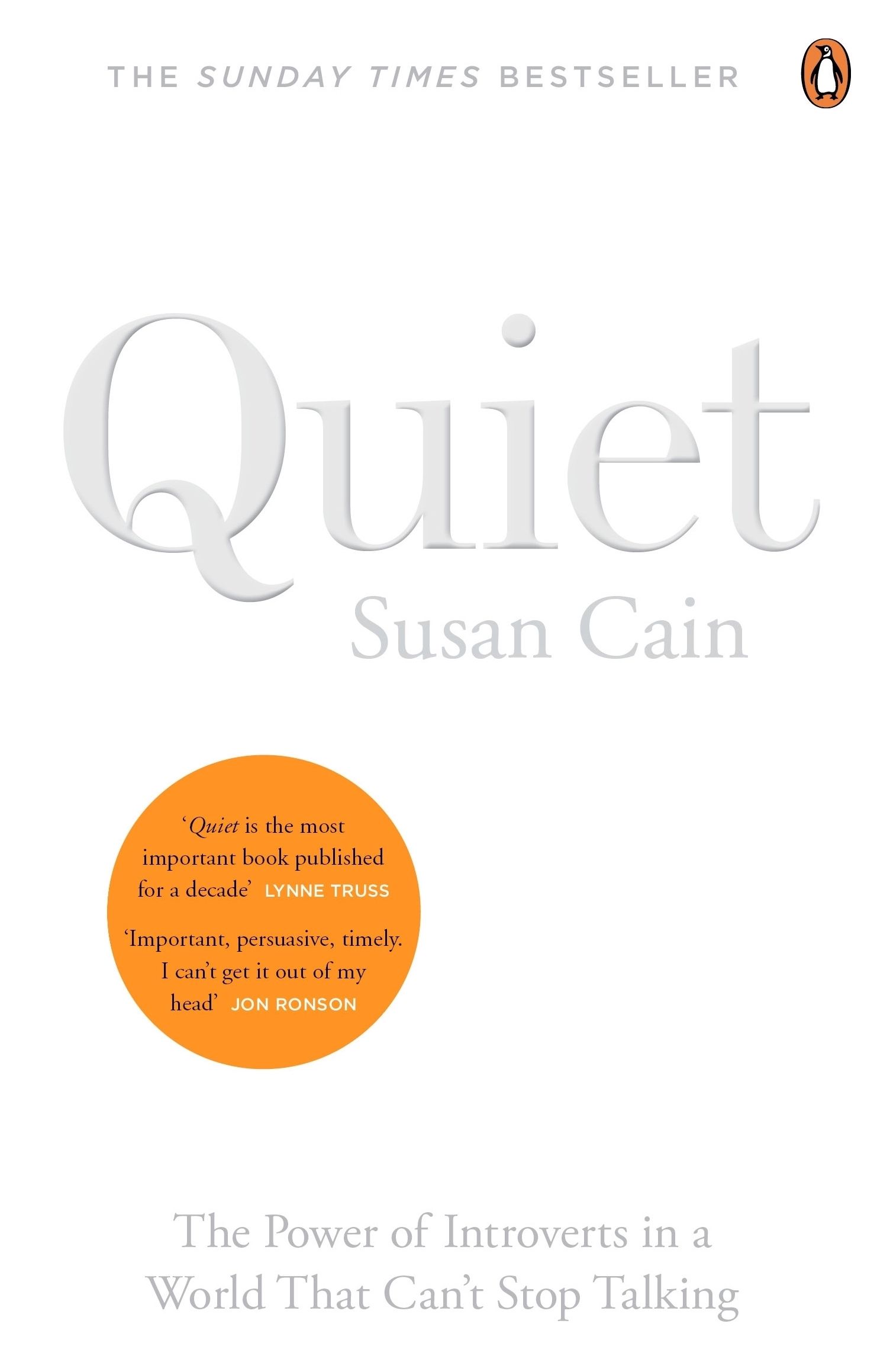
Psychology
Communication
Personal Development
Human Behavior
What Every Body is Saying Book Summary
Joe Navarro
"What Every Body is Saying" unlocks the secrets of nonverbal communication, teaching you to decode the hidden messages in every gesture, expression, and movement, so you can interact with confidence, detect deceit, and build stronger relationships in all areas of life.
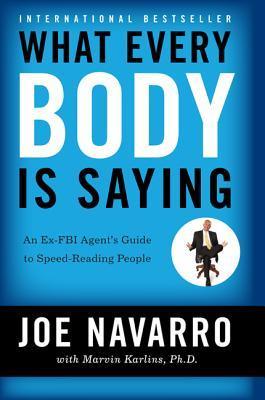
Personal Development
Learning
Psychology
The Defining Decade Book Summary
Meg Jay
The Defining Decade is a insightful guide to making the most of your twenties, the most crucial years for building the personal and professional foundations that will shape the rest of your adult life.
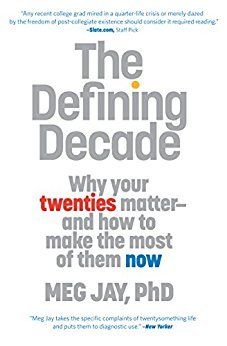
Psychology
Mental Health
The Anxious Generation Book Summary
Jonathan Haidt
In The Anxious Generation, Jonathan Haidt traces the sudden rise of teen anxiety, depression, and self-harm to the simultaneous decline of free play and rise of smartphones. Haidt shows how restoring the pillars of a play-based childhood may be the key to reversing the mental health crisis engulfing Gen Z.
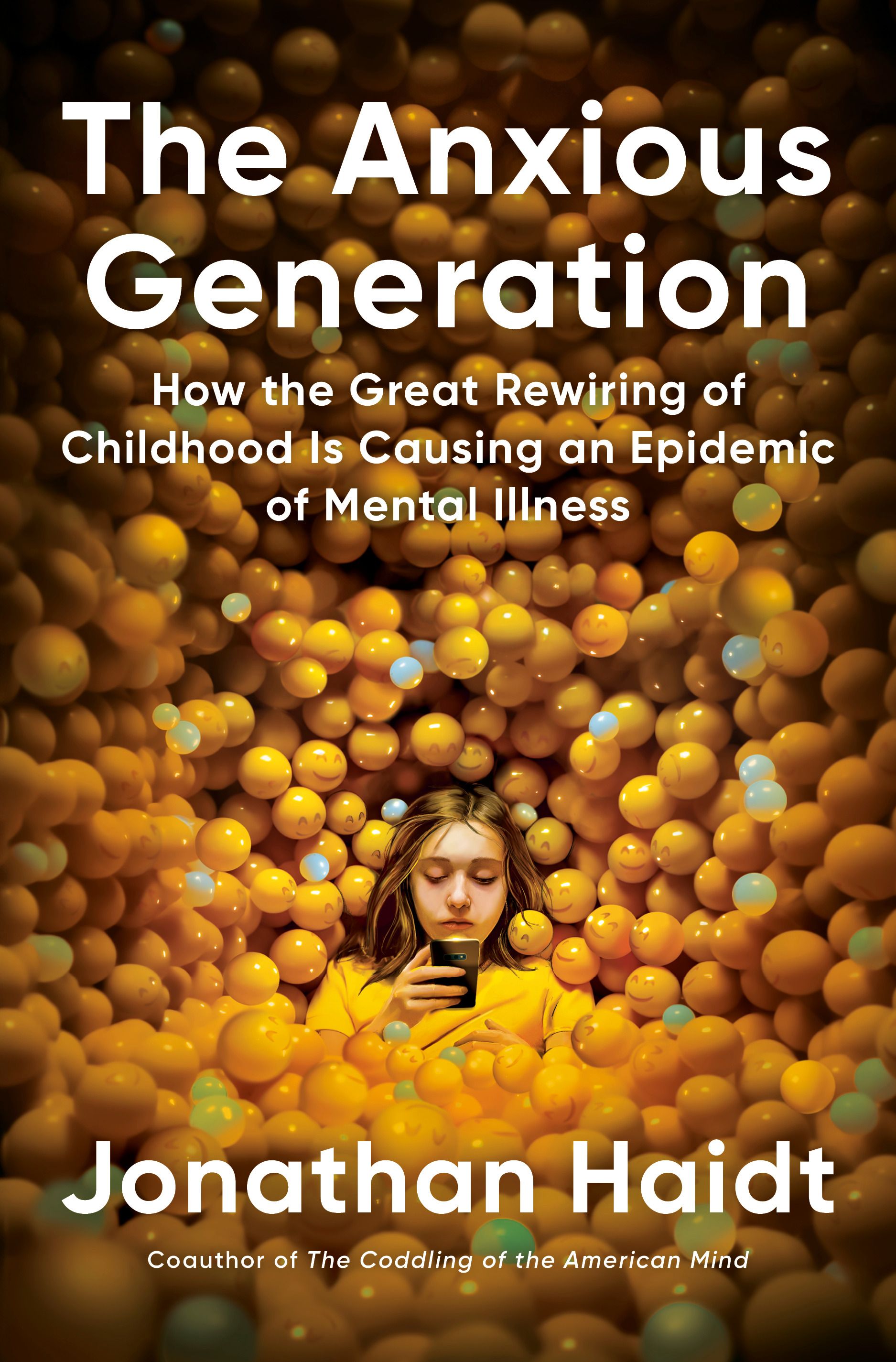
Personal Development
Self-Help
Leadership
Grit Book Summary
Angela Duckworth
In "Grit: The Power of Passion and Perseverance," Angela Duckworth argues that the secret to outstanding achievement is not talent, but a special blend of passion and persistence she calls "grit."
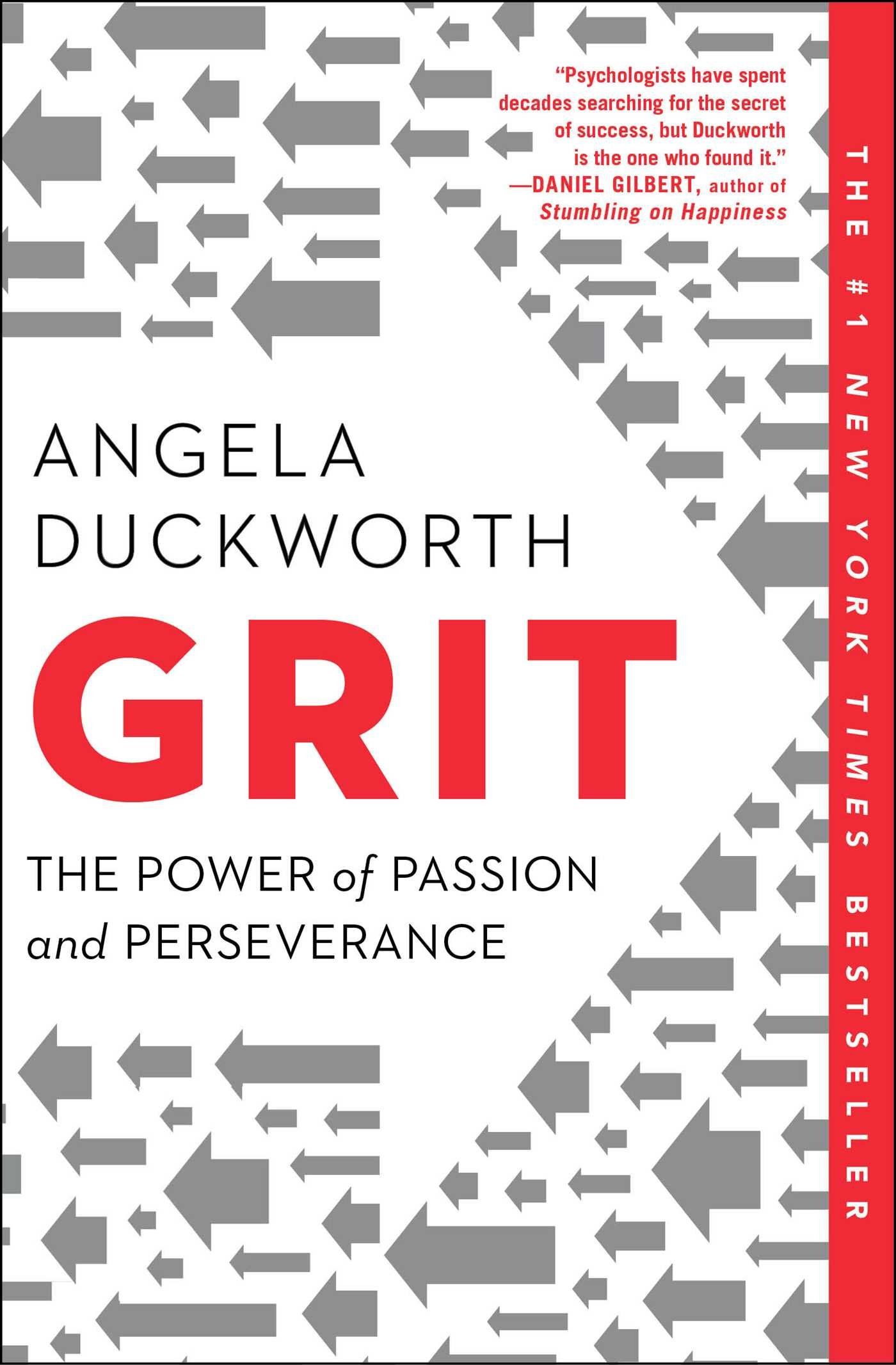
Psychology
Performance
Personal Development
Outliers Book Summary
Malcolm Gladwell
Outliers looks into the lives of exceptional individuals, uncovering the often-overlooked factors that contribute to their success. It challenges the notion of the "self-made" individual, highlighting the crucial role of opportunity, cultural legacies, and hidden advantages in shaping the path to achievement.
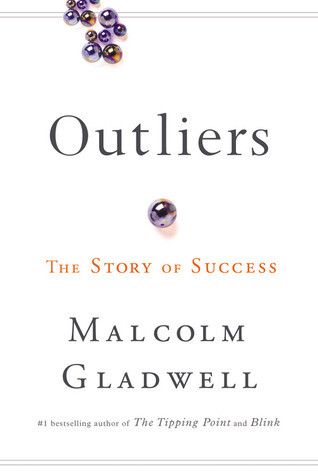
Same as Ever Book Summary
Morgan Housel
"Same as Ever" reveals the surprising truth: while technology and society evolve at breakneck speed, our core behaviors and motivations remain remarkably unchanged. Discover the timeless lessons of human nature that hold the key to navigating an unpredictable future.
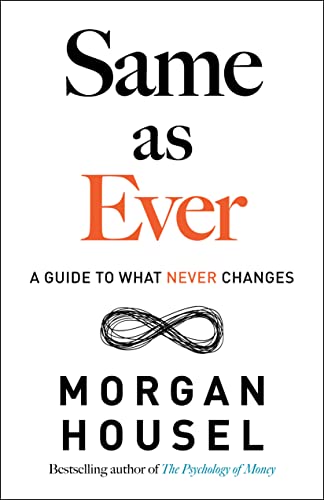
Psychology
Entrepreneurship
Technology
Hooked Book Summary
Nir Eyal
Hooked provides a practical framework for designing habit-forming products that solve users' problems and improve their lives, while cautioning against the ethical risks of misapplying persuasive technology.
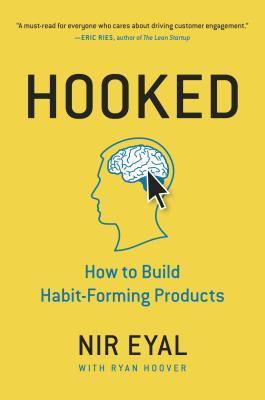
Psychology
Business
Sociology
David and Goliath Book Summary
Malcolm Gladwell
In David and Goliath, Malcolm Gladwell challenges our assumptions about power, advantage, and success, showing how underdogs can triumph by turning their weaknesses into strengths and exploiting the hidden vulnerabilities of the powerful.
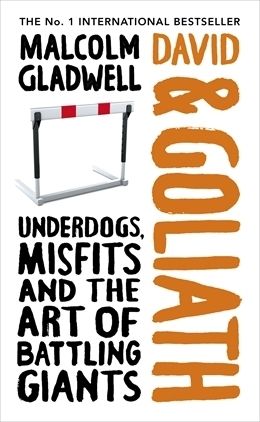
Personal Development
Tiny Experiments Book Summary
Anne-Laure Le Cunff
Tiny Experiments offers not just practical tools to make sure your most vital work gets done, but a guide to reawakening your curiosity and drive in a noisy, busy, disaffected world, so that you can discover and pursue your most authentic ambitions while making a meaningful contribution.

Business
Personal Development
Psychology
Hidden Potential Book Summary
Adam Grant
Unlock the secrets of hidden potential and embark on a journey of personal and collective growth. "Hidden Potential" reveals the science of achieving greater things, offering practical strategies and inspiring stories to help you and those around you reach new heights.
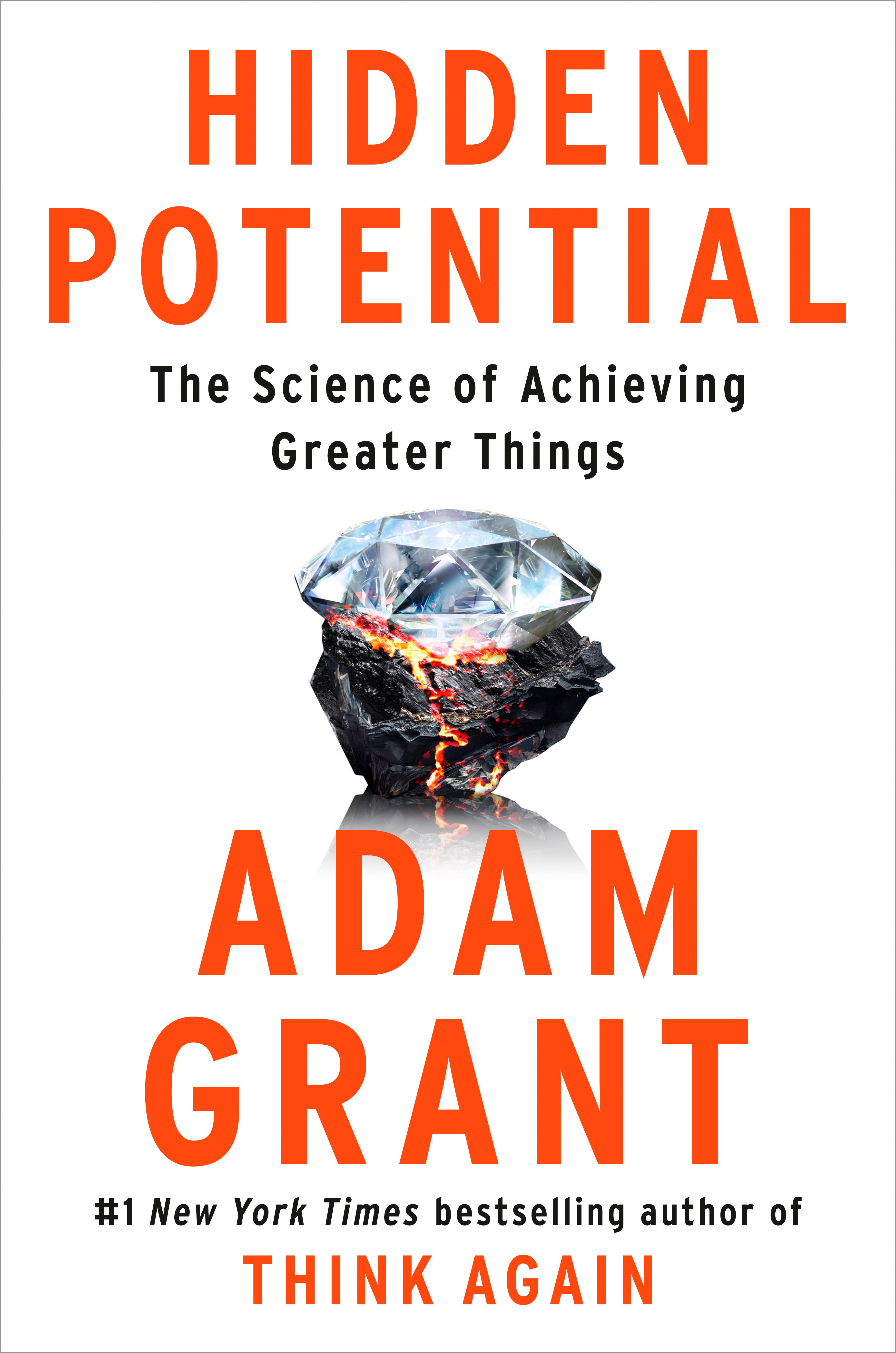
Psychology
Mindfulness
Spirituality
Religion
Happiness
Waking Up Book Summary
Sam Harris
In "Waking Up," Sam Harris explores the nature of consciousness and the self through the lens of neuroscience, philosophy, and contemplative practice, arguing that true spirituality lies not in religion or dogma but in a direct, experiential understanding of the mind that is available to anyone willing to look closely.
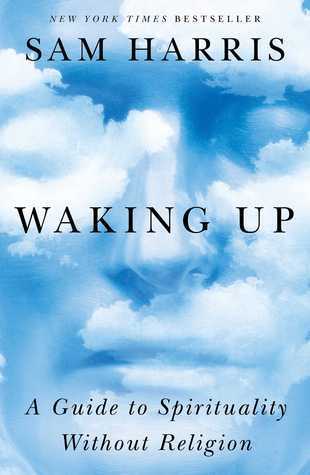
Psychology
Neuroscience
Business
Subliminal Book Summary
Leonard Mlodinow
Subliminal: How Your Unconscious Mind Rules Your Behavior reveals the powerful influence of the unconscious mind on our thoughts, feelings, and actions - from how we perceive the world, to how we interact with others, make decisions, and understand ourselves.
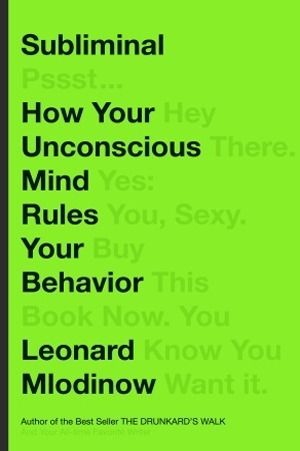
Psychology
Communication
Sociology
Talking to Strangers Book Summary
Malcolm Gladwell
In "Talking to Strangers," Malcolm Gladwell argues that our natural instincts are ill-suited for a world of frequent stranger interactions. Through case studies and research, he reveals how misguided assumptions lead to disastrous misunderstandings and offers insights on more thoughtful engagement.
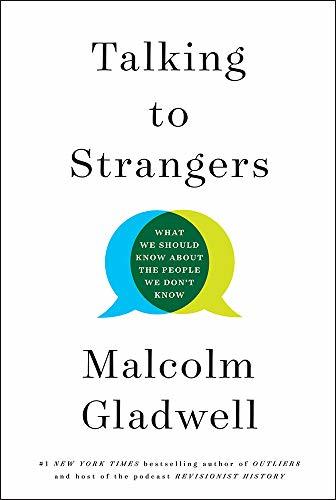
Therapy
Parenting
Psychology
Society
Bad Therapy Book Summary
Abigail Shrier
In "Bad Therapy," journalist Abigail Shrier argues that today's pervasive "therapeutic" culture and overzealous mental health interventions are harming young people by promoting learned helplessness, pathologizing normal emotions, and inhibiting the development of resilience.

Misbehaving Book Summary
Richard Thaler
Richard Thaler chronicles the emergence of behavioral economics, challenging traditional economic assumptions about economics, and revolutionizing our understanding of decision-making. Thaler demonstrates the power of behavioral insights to improve people's lives while shedding light on the profoundly human factors that shape our choices.
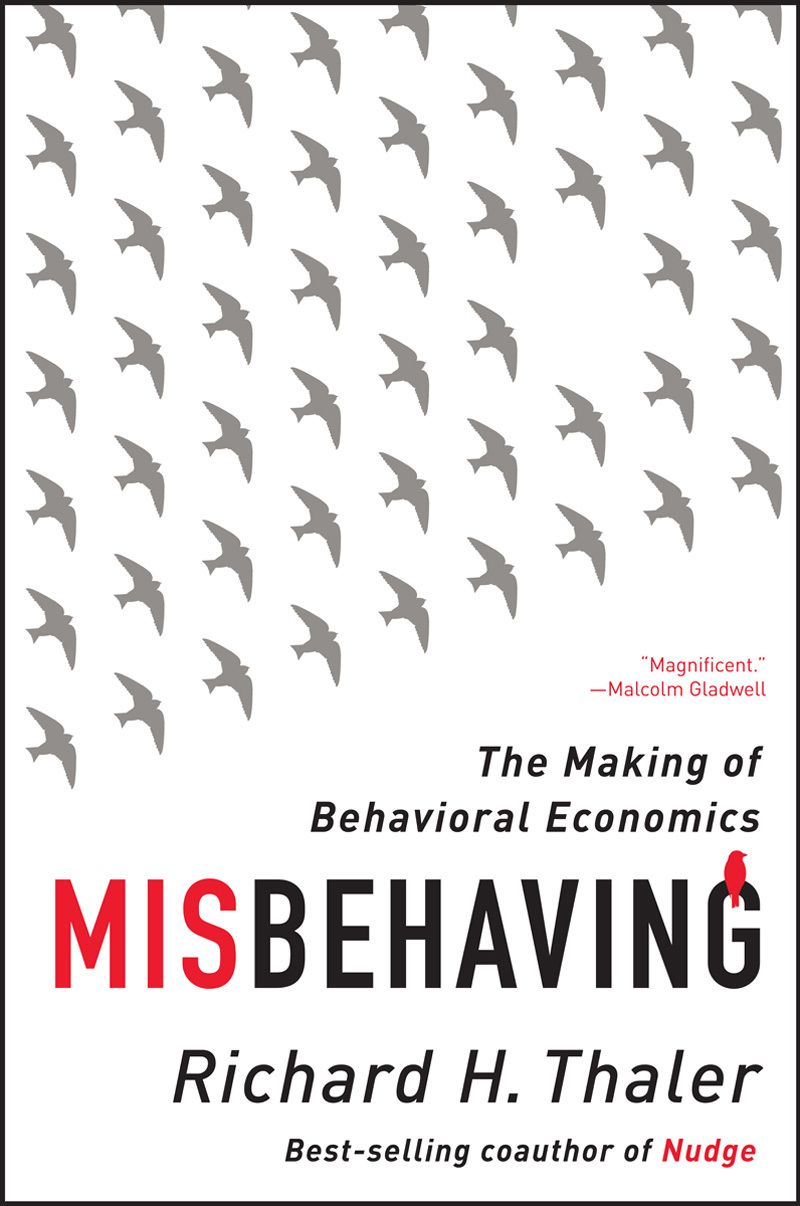
Psychology
Personal Development
Business
Thinking Fast and Slow Book Summary
Daniel Kahneman
Kahneman explores the two systems that drive the way we think: the intuitive, automatic System 1 and the deliberate, analytical System 2. It explores how these systems shape our judgments, decisions, and biases, revealing the surprising power of intuition and the pitfalls of overconfidence.
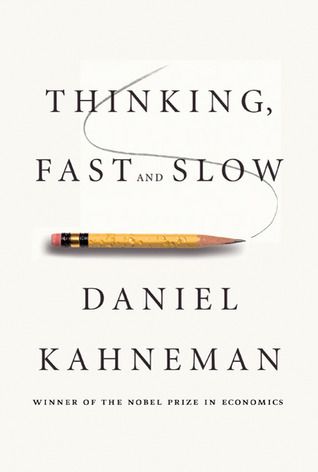
Psychology
Money
Self-Help
The Psychology of Money Book Summary
Morgan Housel
The Psychology of Money is a fascinating look at the strange ways people think about money and teaches you how to make better sense of one of life's most important topics. Doing well with money isn't necessarily about what you know; it's about how you behave, and behavior is hard to teach, even to really smart people.
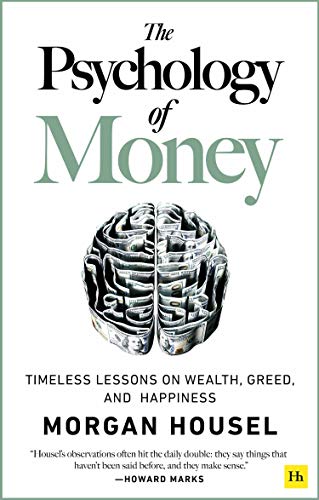
Psychology
Sociology
Economics
Incentives
Super Freakonomics Book Summary
Steven D. Levitt , Stephen J. Dubner
In Superfreakonomics, Levitt and Dubner challenge conventional wisdom on topics ranging from prostitution to terrorism to global warming, using data and economic principles to uncover surprising insights and challenge readers to think like a Freak.
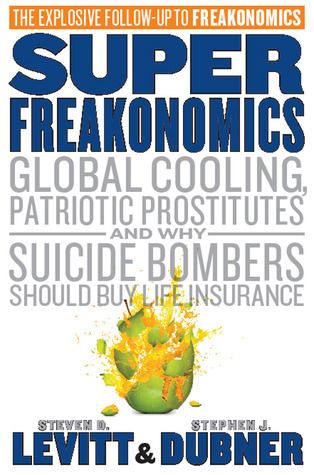
Psychology
Economics
Statistics
Heuristics
The Drunkard's Walk Book Summary
Leonard Mlodinow
"The Drunkard's Walk" reveals how randomness and chance play a far greater role in our lives than we typically realize, challenging our perceptions of success, decision-making, and the patterns we think we see in the world around us.
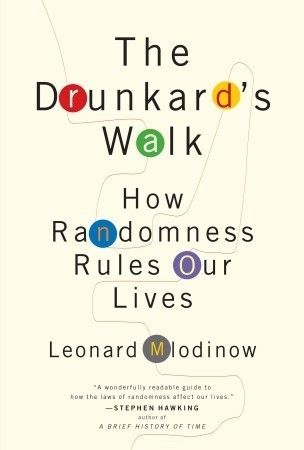
Learning
Education
Personal Development
Productivity
A Mind For Numbers Book Summary
Barbara Oakley
"A Mind for Numbers" by Barbara Oakley reveals the science-backed techniques and insights that can transform anyone's ability to excel in math, science and complex subjects by harnessing the brain's innate learning abilities.
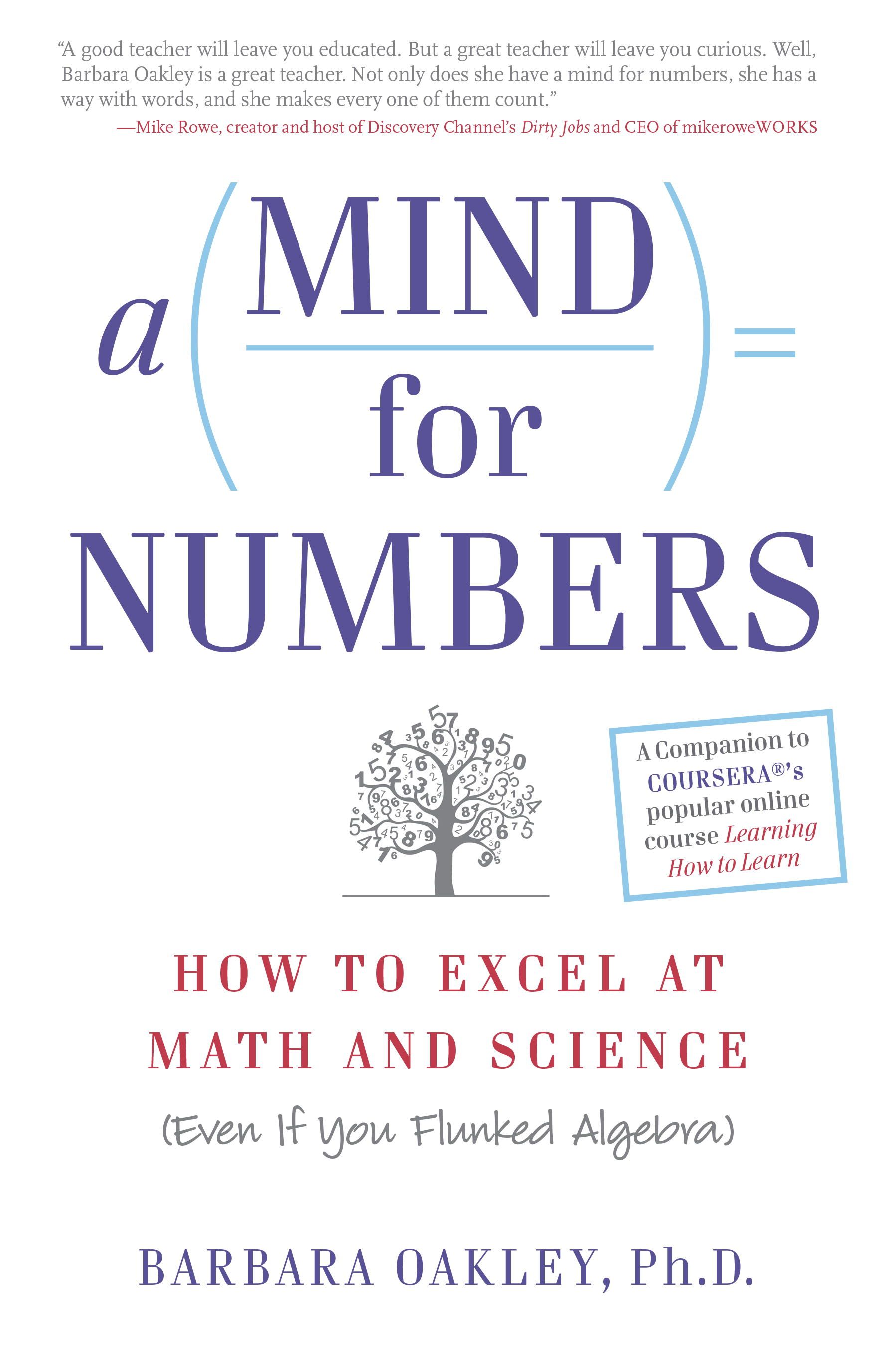
Sociology
Psychology
Personal Development
Human Behavior
Wanting Book Summary
Luke Burgis
In "Wanting," Luke Burgis draws on the powerful insights of French polymath René Girard to explore how mimetic desire - our tendency to unconsciously imitate the desires of others - shapes our lives, and provides practical strategies to escape toxic rivalries, find fulfilling desires, and become authentic leaders in an age of runaway mimesis.
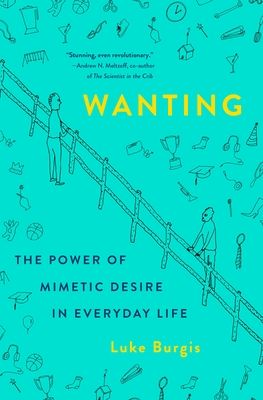
Sociology
Culture
Psychology
Technology
Society
Superbloom Book Summary
Nicholas Carr
With rich psychological insights and vivid examples drawn from history and science, Superbloom provides both a panoramic view of how media shapes society and an intimate examination of the fate of the self in a time of radical dislocation. It may be too late to change the system, Carr counsels, but it’s not too late to change ourselves.

Personal Development
Learning
Psychology
Range Book Summary
David Epstein
"Range" challenges the conventional wisdom that early specialization is the key to success. Instead, Epstein argues that in our increasingly complex and unpredictable world, it is those with broad experience and diverse skills who are best equipped to thrive.
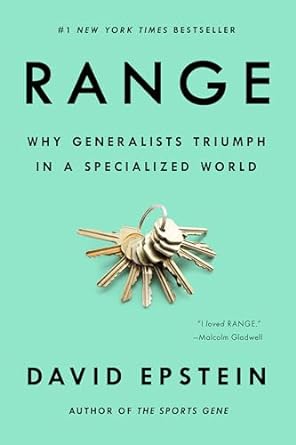
Happiness
Psychology
Stumbling on Happiness Book Summary
Daniel Gilbert
Harvard psychologist Daniel Gilbert takes readers on a whirlwind tour of the human brain, exploring how our unique ability to imagine the future often leads us astray in predicting what will make us happy. Gilbert argues that the futures we envision are often distorted by our current emotions, our flawed memories, and our psychological blind spots - but recognizing these limitations, we can learn to more accurately forecast our feelings and maximize our well-being.
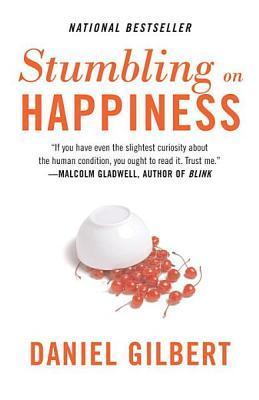
Sports
Management
Psychology
Decision Making
The Success Equation Book Summary
Michael Mauboussin
The Success Equation is a comprehensive guide to understanding the relative roles of skill and luck in shaping outcomes, offering practical insights and tools for improving decision-making, performance, and predictions in a wide range of domains, from sports and business to education and investing.
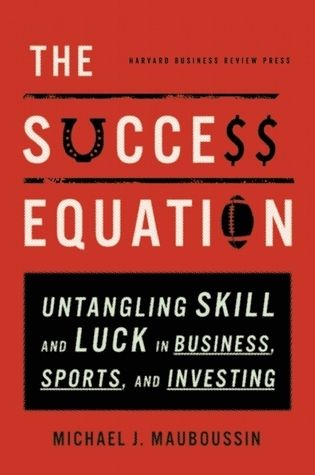
Mindfulness
Religion
Psychology
Science
Philosophy
Happiness
Why Buddhism Is True Book Summary
Robert Wright
Robert Wright explores how Buddhist teachings and meditation practices, particularly from the Vipassana tradition, align with findings from modern psychology and evolutionary theory to diagnose the human condition and provide a path to greater clarity, happiness, and moral progress.
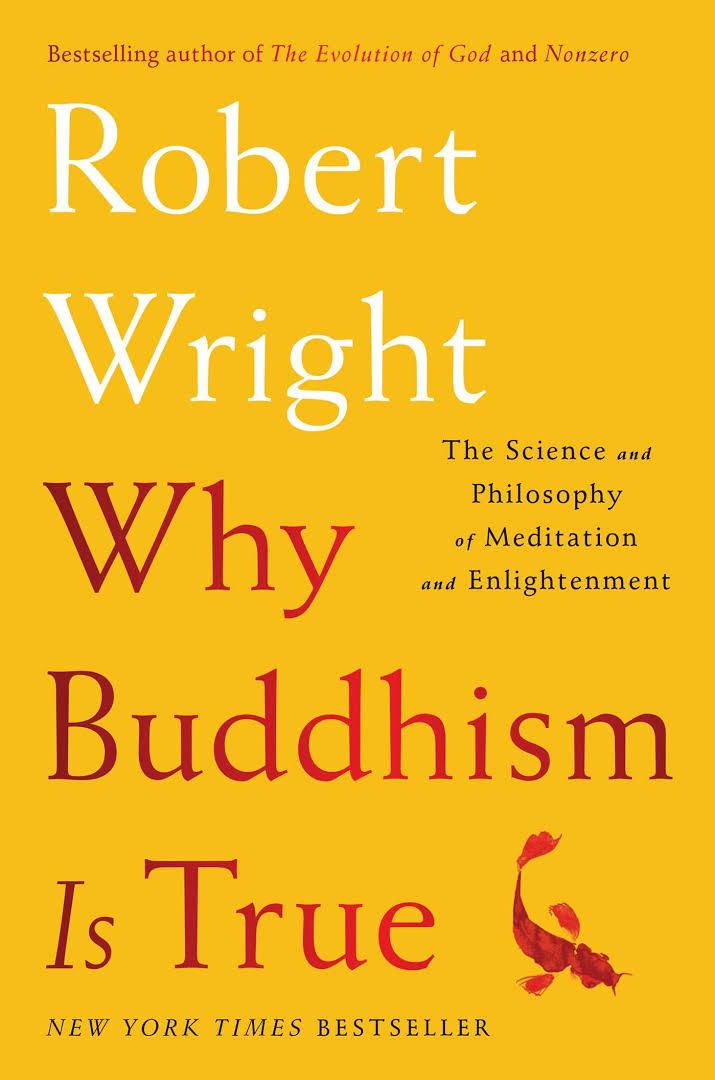
Psychology
Therapy
Self-Help
Personal Development
Why Has Nobody Told Me This Before Book Summary
Julie Smith
In "Why Has Nobody Told Me This Before?", Dr. Julie Smith shares practical insights and tools from therapy to help you navigate life's challenges, build resilience, and create a meaningful life aligned with your values.
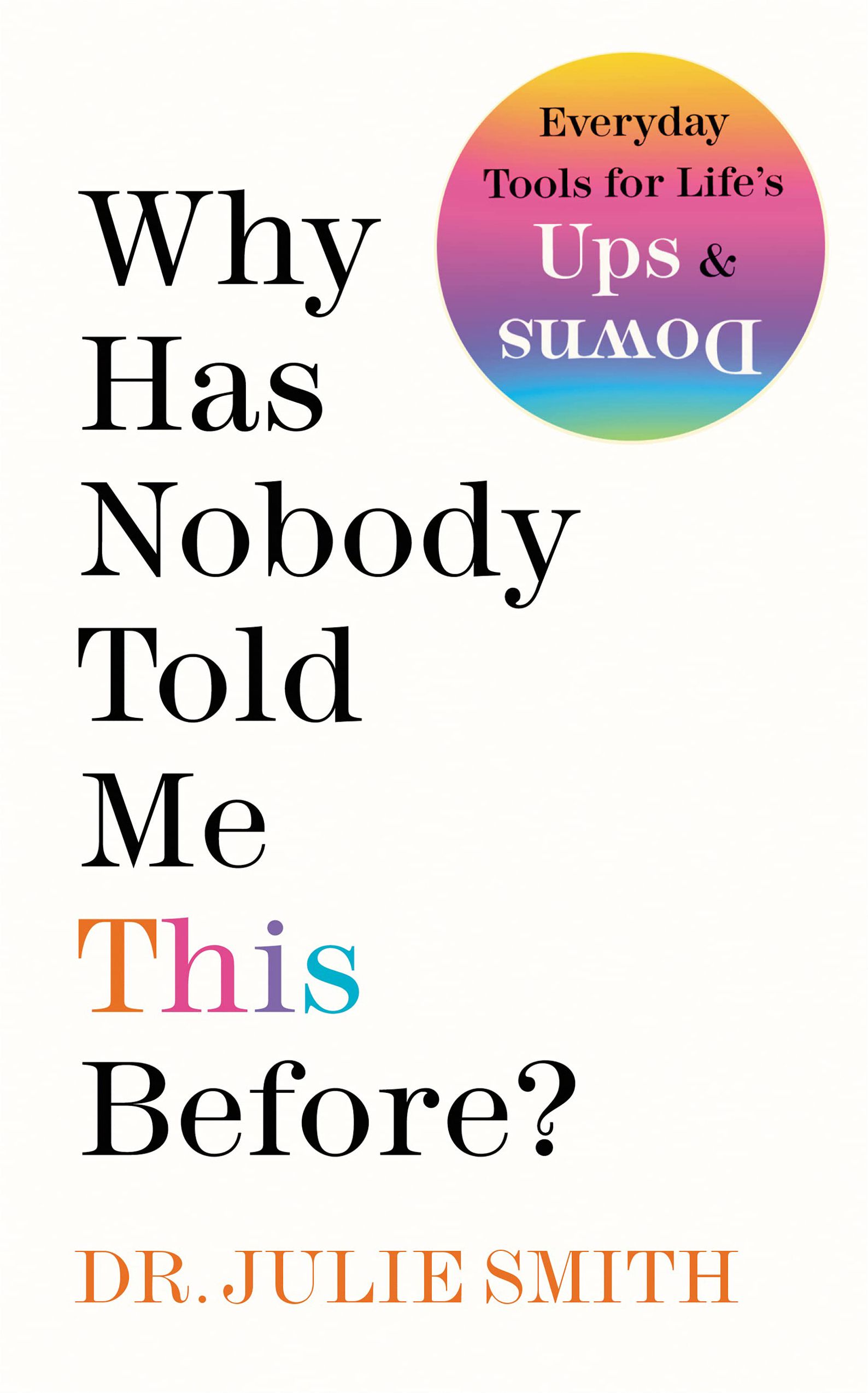
Personal Development
Decision Making
Psychology
Thinking in Bets Book Summary
Annie Duke
In "Thinking in Bets," Annie Duke draws on her experience as a professional poker player to share strategies for making sound decisions under uncertainty, such as thinking probabilistically, learning from outcomes, surrounding yourself with truthseeking groups, and using mental time travel to pressure-test beliefs and plans.
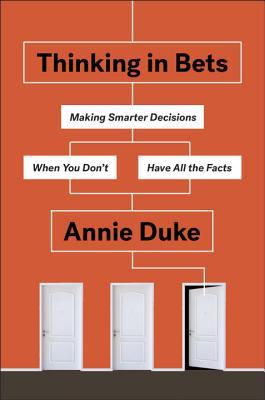
Sociology
Psychology
Science
Revenge of the Tipping Point Book Summary
Malcolm Gladwell
In "Revenge of the Tipping Point," Malcolm Gladwell argues that social epidemics are not random or mysterious, but follow predictable rules and can be shaped by the power of influential individuals, the contagious narratives that frame our world, and the delicate balance of group dynamics.
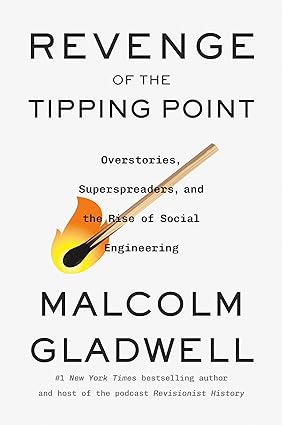
Happiness
Psychology
Philosophy
Personal Development
Meaning
The Happiness Hypothesis Book Summary
Jonathan Haidt
The Happiness Hypothesis is a thought-provoking exploration of ancient wisdom and modern science that reveals the true sources of human flourishing - love, work, virtue, and the harmony between our divided selves and our social world.
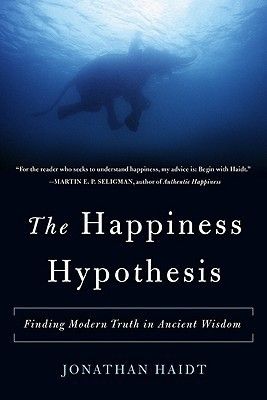
Relationships
Personal Development
Psychology
Mental Health
Attached Book Summary
Amir Levine, Rachel Heller
"Attached" uses science and psychology to show you how to find and keep love by understanding the fundamental attachment needs that drive all romantic relationships.
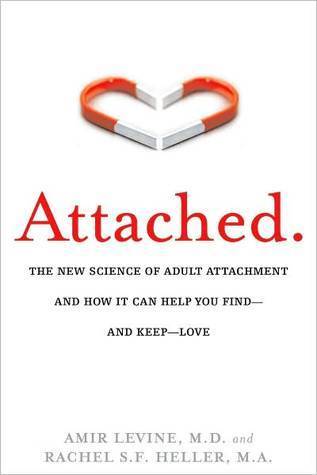
Psychology
Sociology
Thinking
Randomness
Fluke Book Summary
Brian Klaas
In "Fluke," Brian Klaas argues that chance, chaos, and the interconnectedness of all things play a far greater role in shaping our lives and the world than we often acknowledge, and that embracing this insight can lead to a more meaningful and empowered existence.
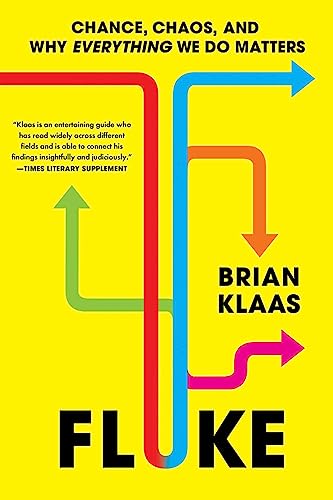
Relationships
Psychology
How to Not Die Alone Book Summary
Logan Ury
How to Not Die Alone is a practical guide that uses behavioral science and real-life examples to help you find and maintain a fulfilling long-term relationship by identifying self-sabotaging dating patterns, practicing intentional love, and making deliberate choices.
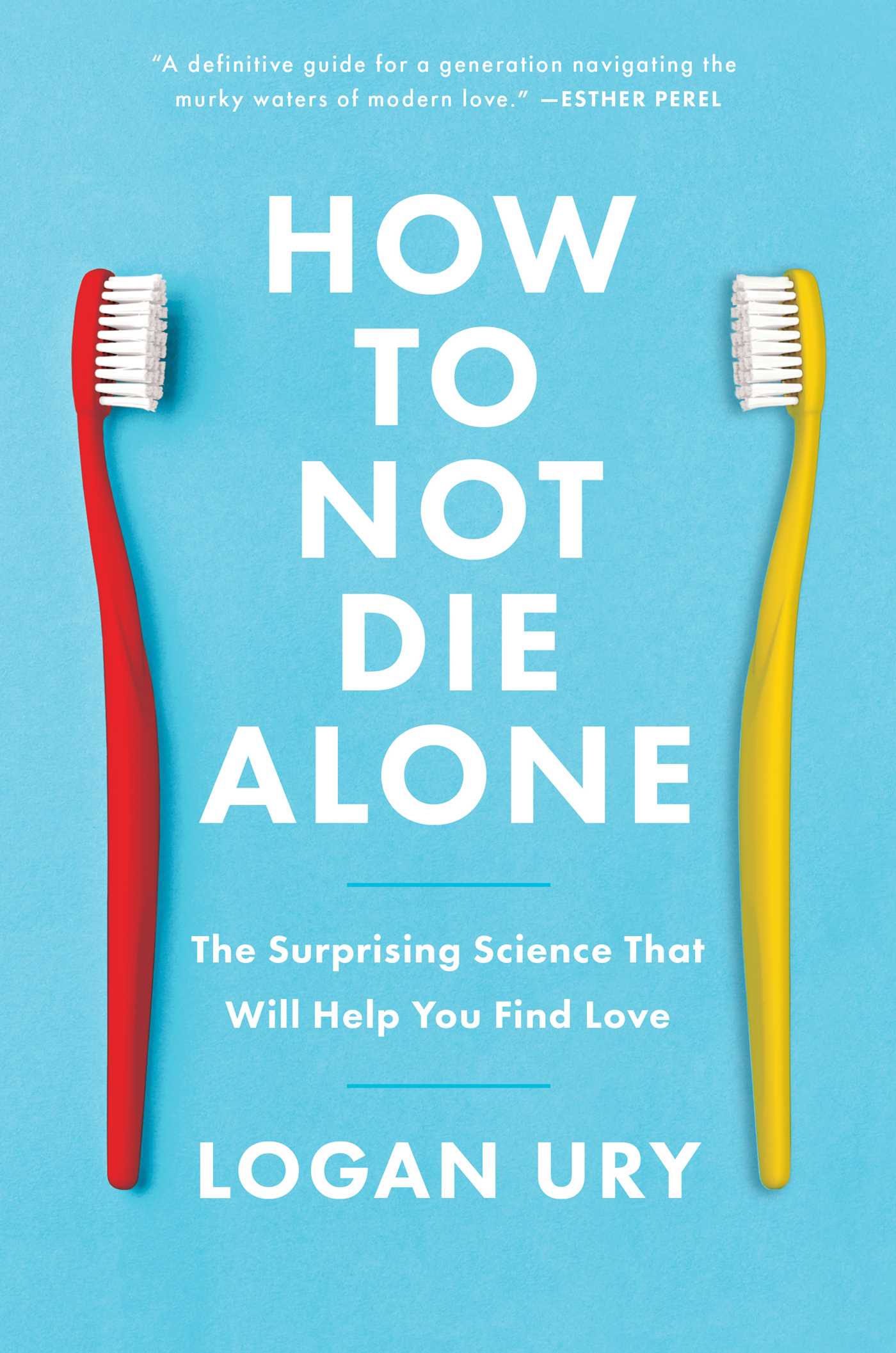
Psychology
Heuristics
Sociology
Human Behavior
Blink Book Summary
Malcolm Gladwell
"Blink" unveils the hidden power of our rapid, unconscious judgments, revealing how these split-second decisions can be remarkably insightful or dangerously flawed, and offers strategies to harness this 'thinking without thinking' for better decision-making in our personal and professional lives.
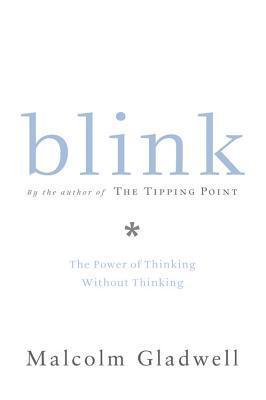
Psychology
Happiness
Productivity
Personal Development
Flow Book Summary
Mihály Csíkszentmihályi
Flow reveals the secrets of optimal experience and shows how to transform even the most mundane moments into a source of enjoyment, creativity and meaning by learning to control consciousness itself.
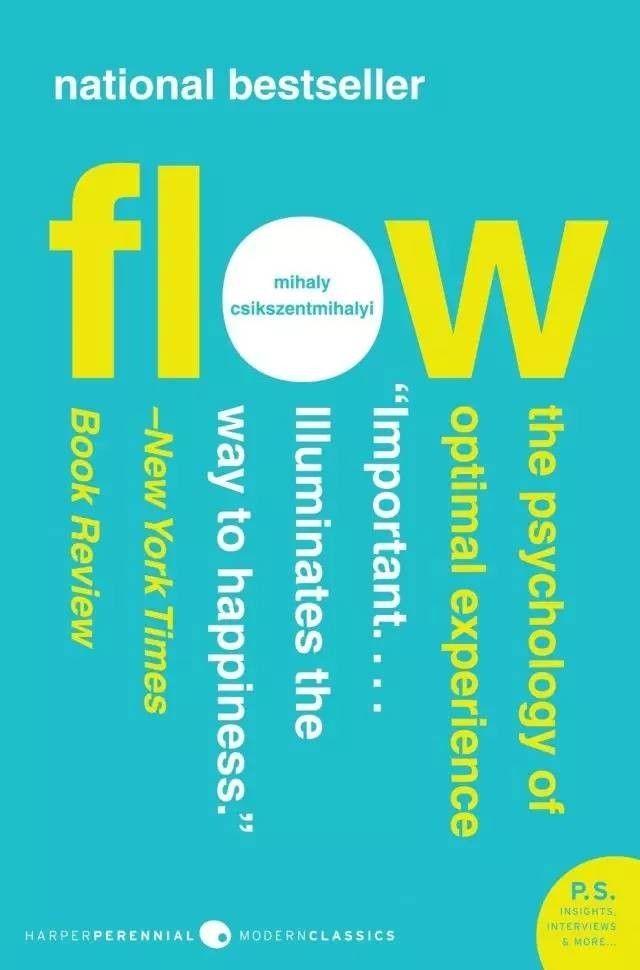
Management
Personal Development
Productivity
Psychology
The Checklist Manifesto Book Summary
Atul Gawande
In The Checklist Manifesto, Atul Gawande compellingly argues that checklists are a powerful yet underutilized tool for improving performance in complex, failure-prone systems, from aviation to construction to healthcare, by ensuring that teams consistently execute on the most critical steps.
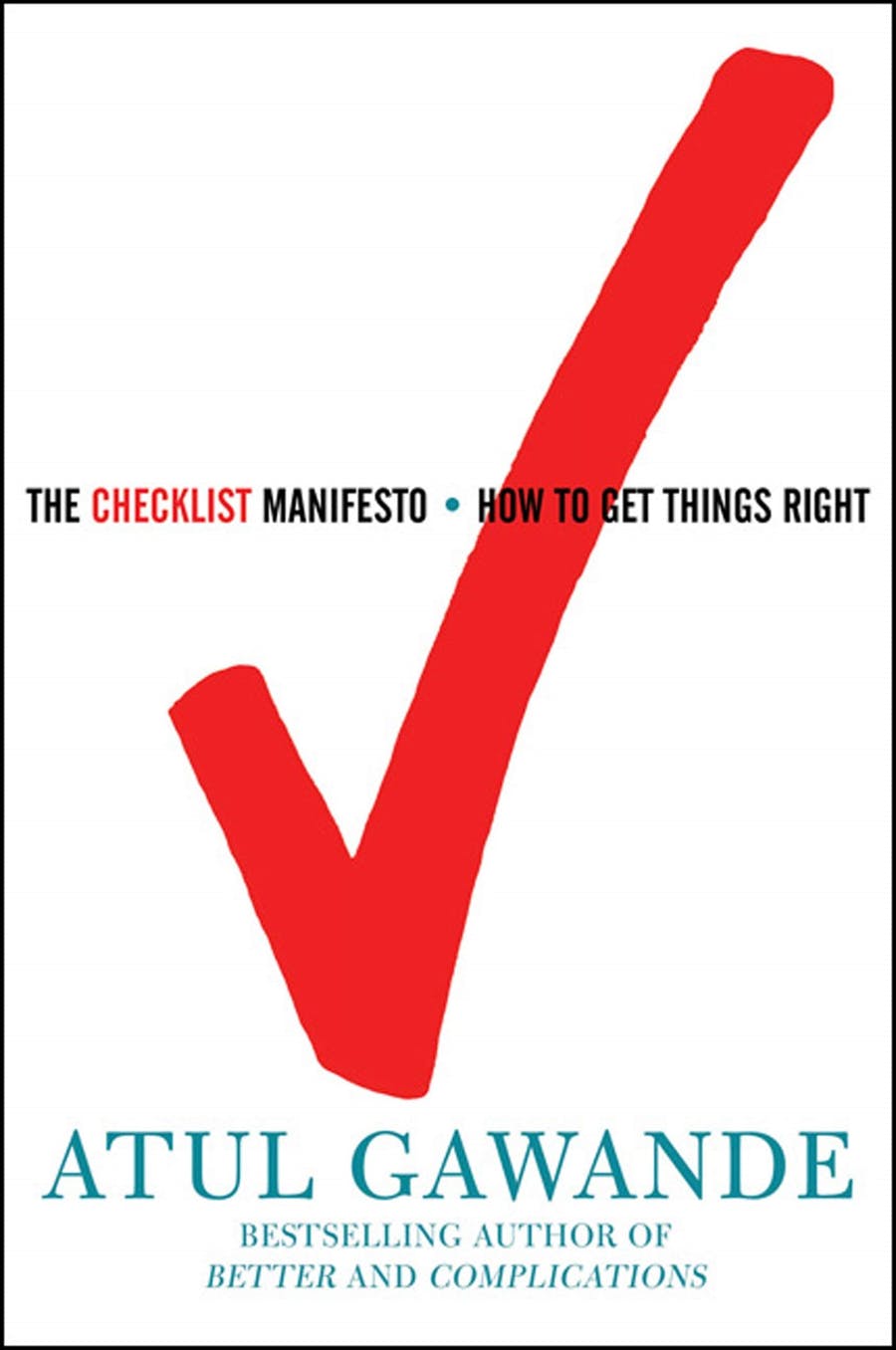
Memory
Psychology
Learning
Personal Development
Moonwalking with Einstein Book Summary
Joshua Foer
Joshua Foer chronicles his journey from covering the U.S. Memory Championship as a journalist to becoming a competitor and ultimately winning the event himself, all while exploring the history, science, and techniques of memory training and the untapped potential of the human mind.
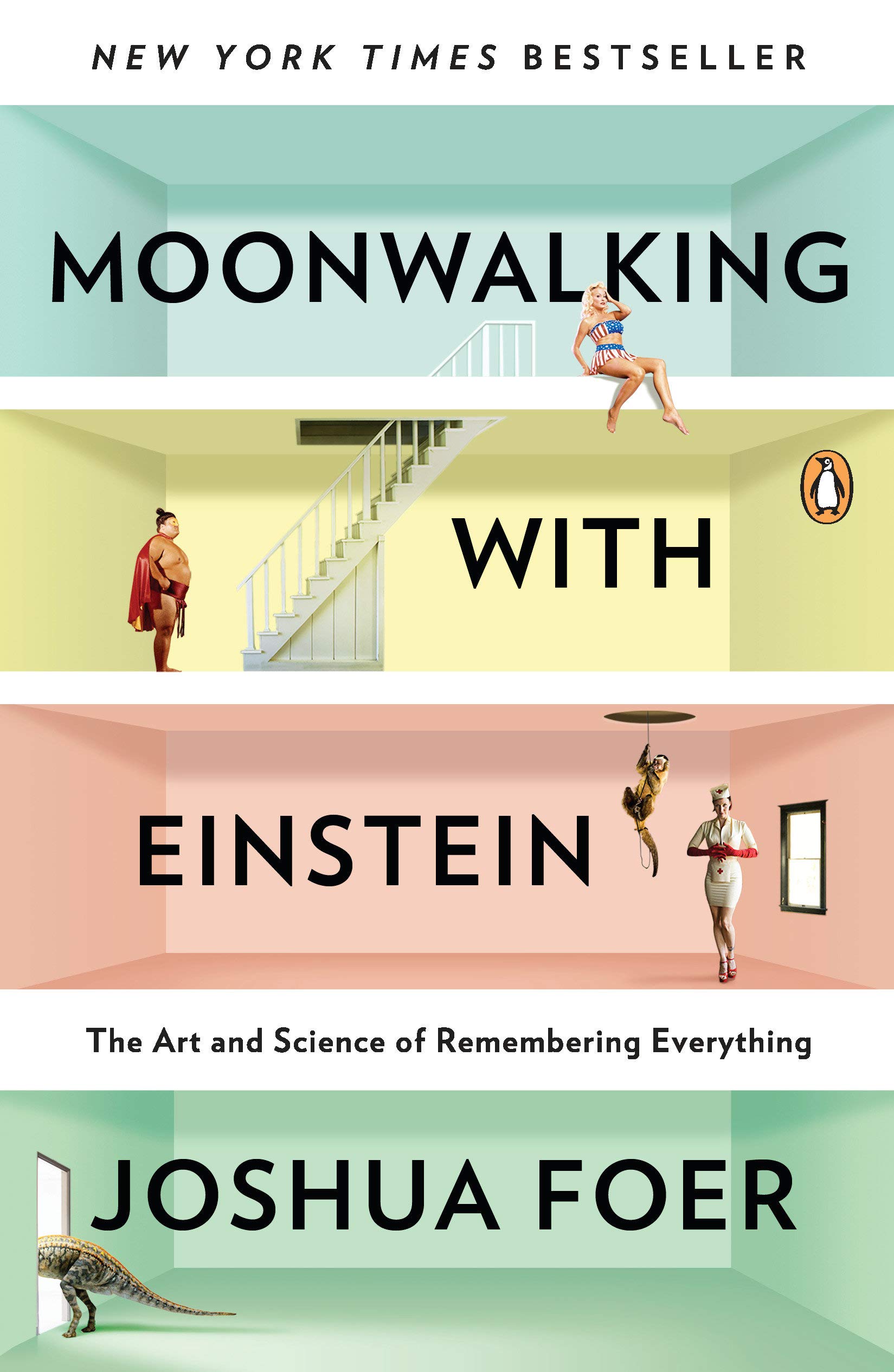
Psychology
Personal Development
Sociology
Economics
The Tipping Point Book Summary
Malcolm Gladwell
The Tipping Point reveals the hidden forces that cause social epidemics - from fashion trends to crime waves - to spread like viruses, and shows how to start and control positive epidemics of our own.
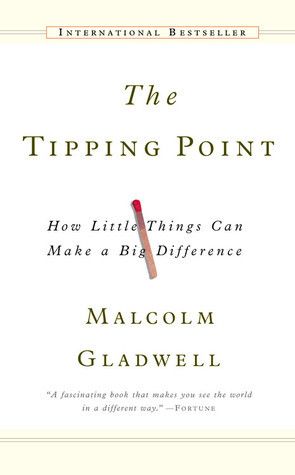
Psychology
Sociology
Economics
Freakonomics Book Summary
Steven D. Levitt, Stephen J. Dubner
Freakonomics is a rogue economist's exploration of the hidden side of everything, from cheating teachers and bizarre baby names to self-dealing realtors and crack-selling mama's boys, teaching you to question the world with data, dig deeper than conventional wisdom, and discern how people get what they want.
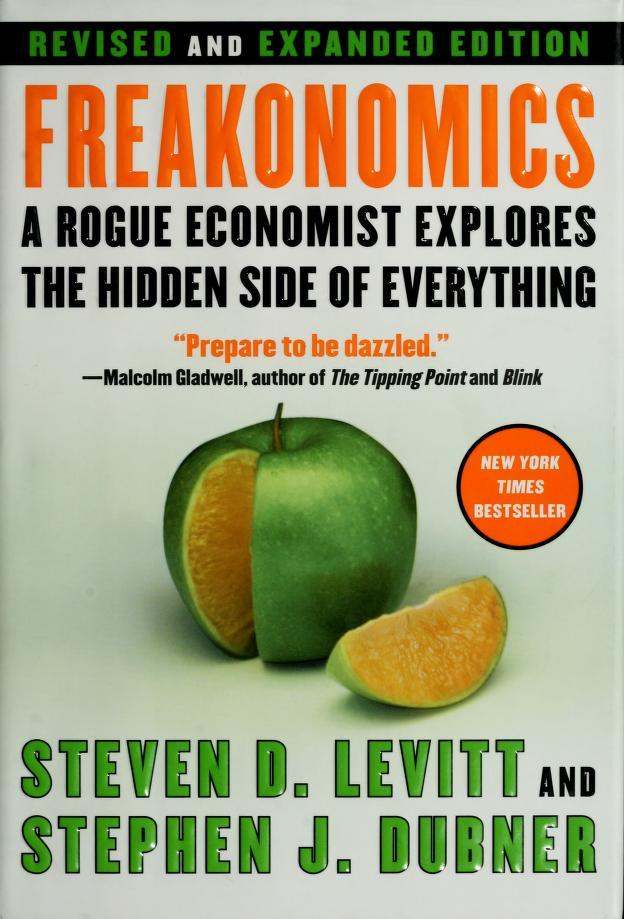
Psychology
Innovation
Business
Leadership
Rebel Ideas Book Summary
Matthew Syed
Matthew Syed reveals the vital ingredient missing from our understanding of success: cognitive diversity. Rebel Ideas shows how bringing together different insights, perspectives and thinking styles turbocharges creativity, problem-solving and decision-making, to improve performance in today's complex world.
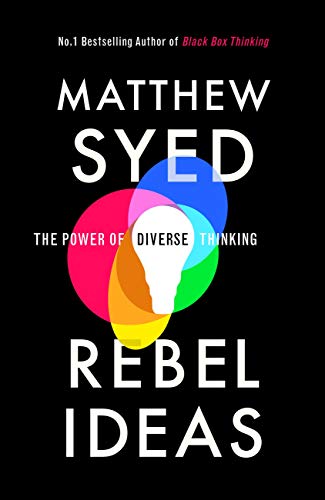
Personal Development
Society
Psychology
The Comfort Crisis Book Summary
Michael Easter
In "The Comfort Crisis," Michael Easter investigates how our modern culture of constant comfort may be making us less resilient, more prone to illness, and robbing us of the very experiences that make us feel most alive.
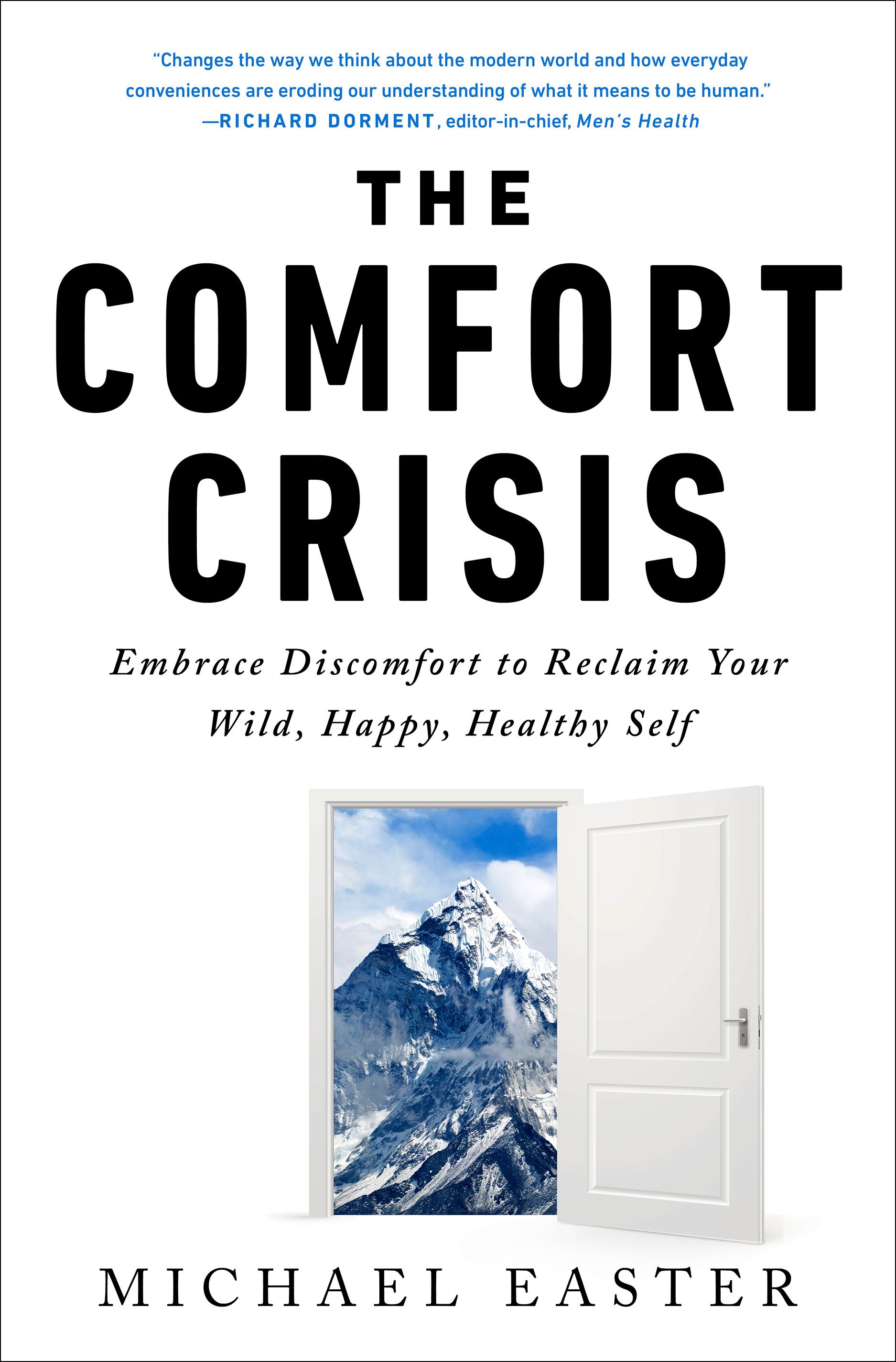
Memory
Psychology
Neuroscience
Personal Development
Remember Book Summary
Lisa Genova
In "Remember", neuroscientist Lisa Genova explores the intricacies of how we create, retain, and retrieve memories, offering fascinating insights and practical strategies to harness the power of your memory while accepting its inevitable imperfections.
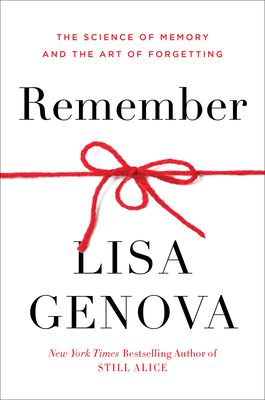
Learning
Education
Psychology
Personal Development
Mindset Book Summary
Carol Dweck
Mindset reveals the power of our beliefs to shape our lives, and shows how adopting a growth mindset - the belief that abilities can be developed through dedication and hard work - can help us achieve more than we ever thought possible in every area of life.
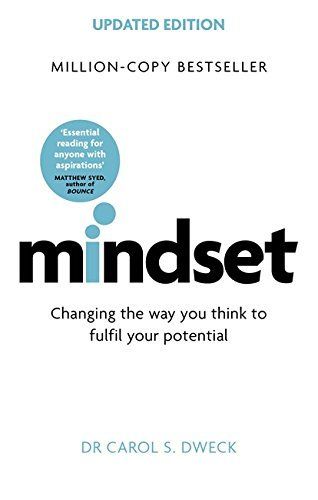
Productivity
Personal Development
Psychology
Atomic Habits Book Summary
James Clear
Atomic Habits reveals the surprising power of small habits, demonstrating how tiny changes can compound into remarkable results over time. By focusing on systems over goals and building identity-based habits, you can create lasting change and unlock your full potential.
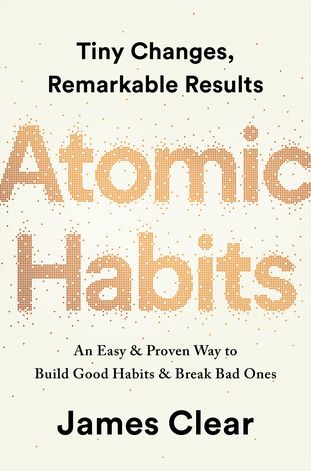
Psychology
Business
Personal Development
Think Again Book Summary
Adam Grant
Think Again is a compelling exploration of the power of knowing what you don't know, and how embracing the joy of being wrong and actively questioning your opinions can help you make better decisions
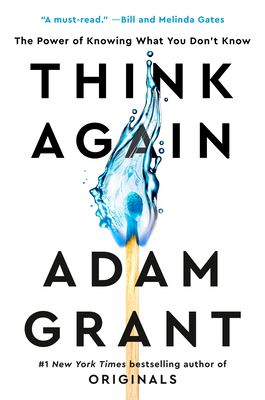
Personal Development
Psychology
Habits
Human Behavior
Scarcity Brain Book Summary
Michael Easter
In a world of abundance, our ancient scarcity-wired brains keep us trapped in self-defeating loops of "more" - but by recognizing these patterns and deliberately choosing "enough," we can find deeper fulfillment.
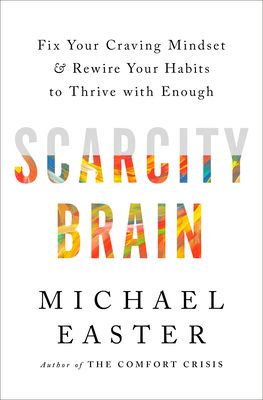
Psychology
Personal Development
Self-Help
Philosophy
The Subtle Art of Not Giving a F*ck Book Summary
Mark Manson
In "The Subtle Art of Not Giving a F*ck," Mark Manson argues that the key to a good life is not the pursuit of happiness, but rather the embrace of uncertainty, failure, and our own limitations - learning to care deeply about a few important things, and letting go of the rest.
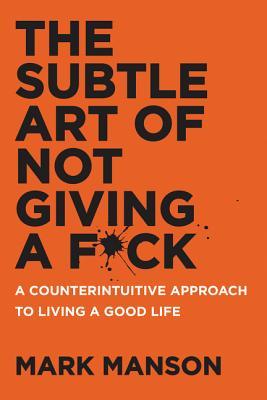
The Black Swan Book Summary
Nassim Nicholas Taleb
The Black Swan is about the extreme impact of rare and unpredictable outlier events, and how we tend to find simplistic explanations for them after the fact, making us blind to randomness and vulnerable to future Black Swans.
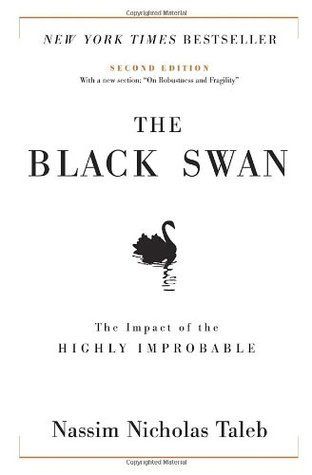
Mental Health
Psychology
The Body Keeps the Score Book Summary
Bessel van der Kolk
The Body Keeps the Score revolutionizes our understanding of trauma's impact and offers a science-backed roadmap to healing the mind, brain and body.
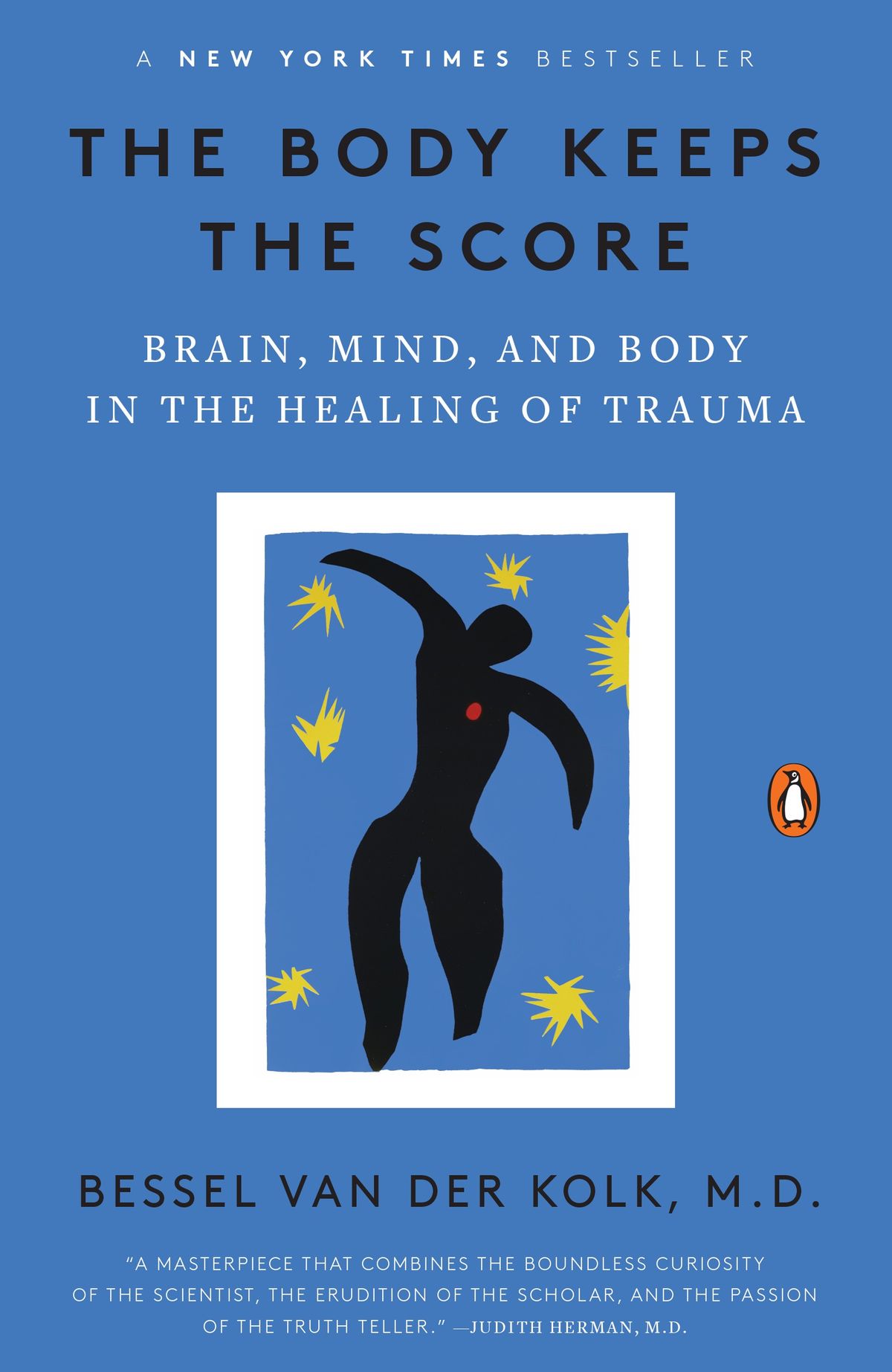
Personal Development
Money
Psychology
The 5 Types of Wealth Book Summary
Sahil Bloom
After three years of research, personal experimentation, and thousands of interviews across the globe, Sahil Bloom has created a groundbreaking blueprint to build your life around five types of wealth: Time Wealth, Social Wealth, Mental Wealth, Physical Wealth, and Financial Wealth.

Prediction
Decision Making
Economics
The Signal and the Noise Book Summary
Nate Silver
In The Signal and the Noise, Nate Silver explores the art and science of prediction, explaining what separates good forecasters from bad ones and how we can all improve our understanding of an uncertain world.
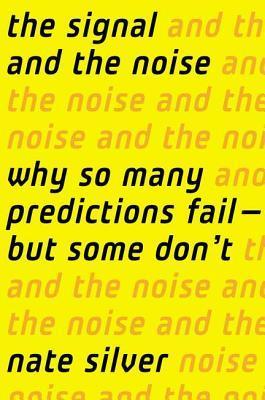
Computer Science
Decision Making
Algorithms To Live By Book Summary
Brian Christian
Algorithms to Live By reveals how computer algorithms can solve many of life's most vexing human problems, from finding a spouse to folding laundry, by providing a blueprint for optimizing everyday decisions through the lens of computer science.
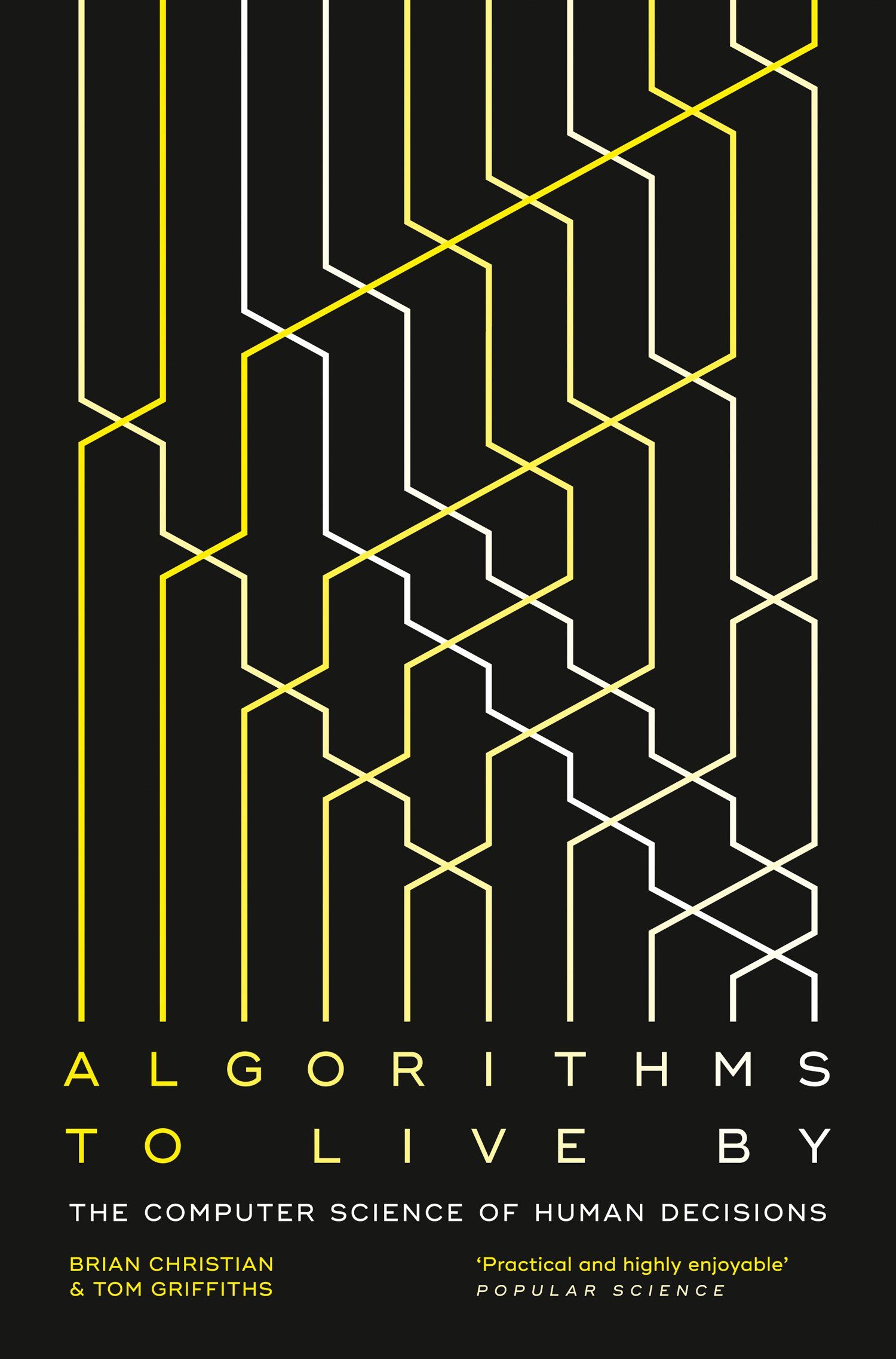
Personal Development
Productivity
Goal Setting
Habits
Happiness
Feel Good Productivity Book Summary
Ali Abdaal
"Feel-Good Productivity" by Ali Abdaal is a transformative guide that teaches us how to harness the power of positive emotions, overcome mental roadblocks, and achieve sustainable success by aligning our actions with our values.
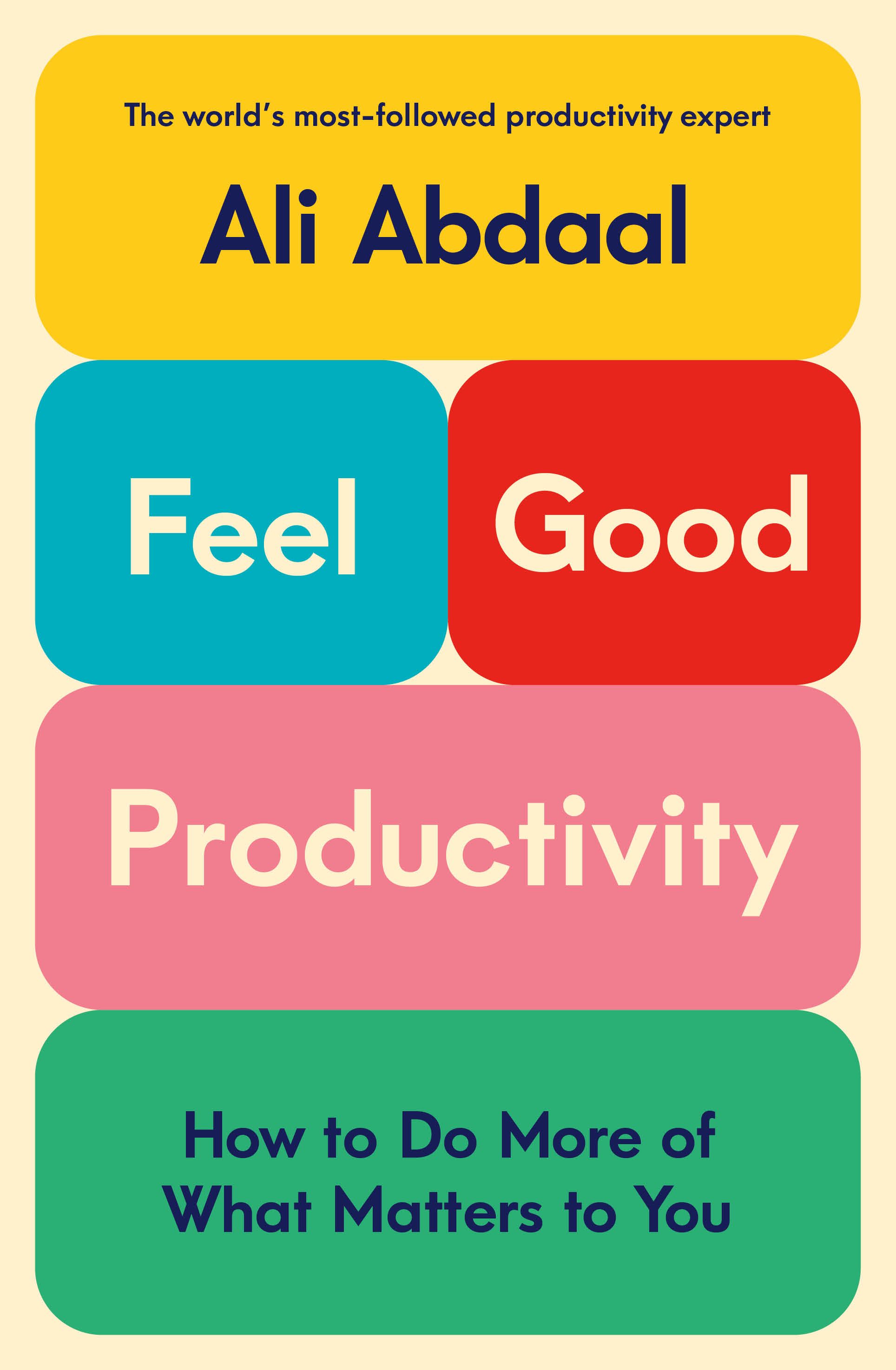
Personal Development
Self-Help
Psychology
The Mountain Is You Book Summary
Brianna Wiest
For centuries, the mountain has been used as a metaphor for the big challenges we face, especially ones that seem impossible to overcome. To scale our mountains, we actually have to do the deep internal work of excavating trauma, building resilience, and adjusting how we show up for the climb. In the end, it is not the mountain we master, but ourselves.

Economics
Decision Making
Prediction
Game Theory
On The Edge Book Summary
Nate Silver
"On the Edge" takes readers on a captivating journey through the high-stakes world of poker, sports betting, and risk-taking, revealing the counterintuitive strategies and mental habits that allow gamblers and daredevils to thrive in the face of daunting odds.
